September 6-9, 2023 Marriott Marquis Washington DC USCHA.life • #2023USCHA
Program
USCHA CONFERENCE PLANNING TEAM
The 2023 USCHA Conference planning team looks forward to making your participation in USCHA a comfortable and rewarding experience. If you have any questions, do not hesitate to contact the planning team in the Conference Operations Office, located in Marquis Salon 15, on M2 Meeting Level.
Tara is your contact for all conference-related information and has overall responsibility for the conference.
Alison is your contact for all conference related information, particularly questions about sessions, faculty and special events. Alison is your contact for institutes, workshop, poster and affinity sessions.
Senior Registrar and Meeting Planner
Shanta is your contact for conference registration and scholarship concerns. Shanta will be stationed at the “On-Site Solutions” booth at conference registration.
Diane is your contact for workshop and poster session logistics.
Joi is your contact for the conference exhibit hall. She can be reached through the Exhibitor Registration Booth at Registration on the M4 Level of the Marriott Marquis.






GENERAL INFO 04 Welcome Letters 06 Agenda 08 Hotel Maps 13 Sponsors 14 General Info PROGRAM FORMAT 16 Conference Format CONFERENCE INFO 20 Exhibitor Floor Plan 20 Exhibitor List TUESDAY 23 Sessions-At-A-Glance WEDNESDAY 25 Sessions-At-A-Glance 26 Sessions THURSDAY 45 Sessions-At-A-Glance 49 Sessions FRIDAY 66 Sessions-At-A-Glance 70 Sessions SATURDAY 91 Sessions-At-A-Glance 92 Sessions SESSIONS EN ESPAÑOL 102 Sessions POSTER SESSIONS 98 Poster Presentations #2023USCHA
TARA BARNES Director of Conferences
ALISON J. MCKEITHEN Assistant Director of Conferences
SHANTA’ GRAY
DIANE FERGUSON Conferences Coordinator
JOI HOWARD Exhibits Manager
3
2023 4
WELCOME
TO THE 27 TH ANNUAL UNITED STATES CONFERENCE ON HIV/AIDS

Welcome to the 2023 US Conference on HIV/AIDS! We are so happy to welcome you back to DC for the first time in four years.
This year’s theme is “A Love Letter to Black Women.” We chose that theme to emphasize just how important Black women are to our movement and to our society and our nation as a whole. We wanted to celebrate all Black women, cis and trans, their commitment to our fight, and the strength and dignity they bring to everything they do.
We are meeting at a time of great anxiety and concern for our communities. We are seeing an incredible and coordinated assault upon our rights and our very existence. Between the House of Representatives, state legislatures, school boards, and the Supreme Court, we have experienced an incredible erosion of protections and support for our communities. And we see no sign that is going to slow down. In fact, with the impending Presidential election, we will probably see even more of this in the next 14 months.
That’s why this meeting is so important. We need this time to re-connect and recommit to this fight. We need the energy and enthusiasm of all of you to work in your communities to respond directly and loudly to these attacks at all levels.
We are so happy and honored that you have chosen to join us this week. We want to make this a great experience for you, so please don’t hesitate to let us know what you need. We are here for you this week.
NMAC Deputy Director of Operations
 Director of Conferences
Kim Ferrell
Tara Barnes
NMAC
Director of Conferences
Kim Ferrell
Tara Barnes
NMAC
5
This year’s theme is “A Love Letter to Black Women.” We chose that theme to emphasize just how important Black women are to our movement and to our society and our nation as a whole.
Registration Hours
All attendees must register for the conference. The registration desk is located on the 2nd Level/Mezzanine Level of the Marriott Marquis and is open during the following hours:
..........
Conference Operations Office
The Conference Operations Office is located in Marquis Salon 15 on Meeting Level 2 of the Marriott Marquis. Feel free to stop by the office with conference-related questions and concerns during the following times:
Tue ........... 4:00 PM - 7:00 PM
Wed ........ 8:00 AM - 6:00 PM
Thu .......... 8:00 AM - 6:00 PM
Fri ........... 8:00 AM - 6:00 PM
2023 UNITED STATES CONFERENCE ON HIV/AIDS
SEPTEMBER 5-9, 2023 SEPT 05 SEPT 06 Pre-USCHA Black Women’s Summit 10:00 AM - 4:00 PM Institutes 1 8:00 AM - 11:00 AM Welcome Reception 6:30 PM -8:30 PM Session 1 Workshops 1:45 PM - 3:45 PM Session 2 Workshops 4:00 PM - 6:00 PM Opening Plenary Lunch 11:30 AM - 1:30 PM REGISTRATION / 7:30 AM5:00 PM EXHIBIT HALL / 10:00 AM5:00 PM AM Praise 7:00 AM - 7:30 AM TUESDAY WEDNESDAY 7:00 AM 8:00 AM 9:00 AM 10:00 AM 11:00 AM 12:00 PM 1:00 PM 2:00 PM 3:00 PM 4:00 PM 5:00 PM 6:00 PM 7:00 PM 8:00 PM AGENDA
USCHA AGENDA
5:00
Tue
2:00 PM – 6:00 PM Wed ........7:30 AM –
PM
f2090f - red 79fe - pink 6f53ce - purple b9 00 - green 5a5a5d - gray EXHIBIT HALL & REGISTRATION OPENS 2:00 PM6:00 PM 6
Thu 8:00 AM – 5:00 PM Fri .......... 9:00 AM – 3:00 PM
#2023USCHA
SEPTEMBER 5-9, 2023 SEPT 07 SEPT 08 SEPT 09 REGISTRATION / 8:00 AM5:00 PM REGISTRATION / 9:00 AM3:00 PM EXHIBIT HALL / 10:00 AM5:00 PM Affinity Session 6:30 PM - 7:30PM Affinity Session 6:30 PM - 7:30PM AM Praise 7:00 AM - 7:30 AM AM Praise 7:00 AM - 7:30 AM AM Praise 7:00 AM - 7:30 AM Poster Presentations Poster Presentations Institutes 2 8:00 AM - 11:00 AM Session 5 Workshops 9:00 AM - 11:00 AM Session 8 Workshops 9:00 AM - 11:00 AM Session 3 Workshops 2:00 PM - 4:00 PM Session 6 Workshops 2:00 PM - 4:00 PM Session 4 Workshops 4:15 PM - 6:15 PM Session 7 Workshops 4:15 PM - 6:15 PM Plenary Lunch 11:30 AM - 1:30 PM Plenary Lunch 11:30 AM - 1:30 PM Closing Plenary Lunch 11:30 AM - 1:00 PM 7:00 AM 8:00 AM 9:00 AM 10:00 AM 11:00 AM 12:00 PM 1:00 PM 2:00 PM 3:00 PM 4:00 PM 5:00 PM 6:00 PM 7:00 PM 8:00 PM THURSDAY FRIDAY SATURDAY 7
USCHA AGENDA
HOTEL MAPS
LOBBY LEVEL & 2ND FLOOR
2023 UNITED STATES CONFERENCE ON HIV/AIDS 8
HOTEL MAPS

MEETING LEVEL 1 (M1) & 2 (M2)
#2023USCHA 9
HOTEL MAPS
MEETING LEVEL 3 (M3) & 4 (M4)
2023 UNITED STATES CONFERENCE ON HIV/AIDS 10
This year’s USCHA theme, “A Love Letter to Black Women,” brings joy to so many. This conference is a public celebration of inclusivity and acknowledgment of Black women across the HIV field. Your voices, experiences, and contributions are invaluable assets in shaping the conversation surrounding HIV prevention, treatment, and support.
To the diverse Black women featured in the “I am a Work of ART” campaign and its Spanish-language version, “Celebro mi salud,” I celebrate your vulnerability and courage in sharing your journeys about getting into and staying in care and using antiretroviral therapy to achieve viral suppression. You all are worthy, seen, and, most importantly, you are thriving, and your stories deserve to be heard!

ad
Black women in the federal space continue making significant contributions toward the goal of ending the HIV epidemic. It is my honor and privilege to work alongside so many powerfully committed Black women who lead and support federal and community efforts toward meeting this attainable goal. I laud your vast contributions to ensuring our communities and the world are a better place!!
Yours in solidarity and partnership,
Kaye Hayes, MPA
DEPUTY ASSISTANT SECRETARY FOR INFECTIOUS DISEASE
DIRECTOR OF THE OFFICE OF INFECTIOUS DISEASE AND HIV/AIDS POLICY (OIDP), OFFICE OF THE ASSISTANT SECRETARY FOR HEALTH, U.S. DEPARTMENT OF HEALTH AND HUMAN SERVICES
EXECUTIVE DIRECTOR, PRESIDENTIAL ADVISORY COUNCIL ON HIV/AIDS
Join Kaye Hayes at the Closing Plenary to honor and celebrate Black women and their contributions in the federal HIV space!

I AM A WO RK OF

Visit OIDP at Booth # 501
ART
NMAC Thanks the 2023 USCHA COMMITTEES
Black Women’s Advisory Committee
Carmarion D. Anderson-

Harvey
Clover Barnes
Gina Brown
Danielle Campbell
Ashley Coleman
Tori Cooper
Cecilia Dennis
Alicia Diggs
Travis Barnhart
Lakisha Blocker
Alexandra Bonnett
Japer Bowles
Martha Cameron
M Carney
Sharron Coker
Mackenzie Copley
Wallace Corbett
D’Angelo Davis
Dazon Dixon Diallo
Ingrid Floyd
Monica Johnson
Vanessa Johnson
Valencia Landry
Octavia Lewis
Tiommi Luckett
Johanne Morne
Kneeshe Parkinson
Kayla Quimbley
Host Committee
Tyler Edge
Jas Florentino
Terrence Ford
Ebony Fortune
Anthony Fox
Mario Gray
Kenya Hutton
George Kerr
Jenne Massie
Henry Murdaugh
Kenny Palmer
Venita Ray
Melanie Reese
Valerie Rochester
Beverly Ross
Linda Scruggs
Masonia Traylor
Dawn Trotter
Joyce Turner Keller
Dana Williams
Murray Penner
Antoine Pollard
Stephanie Rhodes
Reginald Shaw Richardson
Valerie Rochester
Re’ginald Shaw-Richardson
Martha Sichone-Cameron
Jane Wallis
SaVanna Wanzer
Carmi Washington Flood
2023 UNITED STATES
ON HIV/AIDS
CONFERENCE
12
SPONSORS
A Special Thank You to our Sponsors
who have made significant contributions to the United States Conference on HIV/AIDS.

PRESENTING SPONSOR
PLATINUM SPONSOR
PREMIERE SPONSORS
PATRON SPONSOR
COLLABORATING SPONSOR
COLLEAGUE SPONSORS

ADDITIONAL SPONSORS
Broadway Cares/Equity Fights AIDS
Thera Technologies
MEDIA SPONSOR



Health Merch/Say It With A Condom
EMD Serono
Funding for this conference was made possible [in part] by (1R13AI179319-01) from the National Institute of Allergy and Infectious Diseases. The views expressed in written conference materials or publications and by speakers and moderators do not necessarily reflect the official policies of the Department of Health and Human Services; nor does mention of trade names, commercial practices, or organizations imply endorsement by the U.S. Government.

#2023USCHA
13
GENERAL INFORMATION
Affinity Sessions
Affinity Sessions
Affinity sessions are impromptu meetings of conference attendees who want to discuss a particular subject. To schedule an affinity session and receive a room assignment, visit the Conference Operations Office, located in Marquis Salon 15 on Meeting Level 2 of the Marriott Marquis. The affinity session schedule is as follows:
Wednesday: ................... 6:15 p.m. – 7:15 p.m.
Thursday:........................ 6:30 p.m. – 7:30 p.m.
Friday: 6:30 p.m. – 7:30 p.m.
Continuing Education Units
Continuing Education Units
USCHA is proudly offering Continuing Education Units (CEUs) for attendees seeking hours toward maintaining or attaining certifications.
• National Association for Social Workers (NASW) has approved USCHA to offer up to 22 CEUs
• The National Commission for Health Education Credentialing, approved 22 entrylevel continuing education contact hours (CECH) Community Health Education Specialist (CHES) credits.
• George Mason University is offering up to 22 General CEUs.
Medical Service Information
For any medical emergency, please call extension 59667 (within the Marriott). Inform the hotel operator of the nature of the emergency and location. A specific response team of hotel managers will immediately respond. In nonemergency situations, the following is a list of nearby medical facilities:
Howard University Hospital 2041 Georgia Ave NW Washington, DC 20060 (202) 865-6100
George Washington University Hospital 900 23rd St NW Washington, DC 20037 (202) 715-4000
Badges
Badges
Conference attendees must wear their official conference badge to all educational sessions, plenary sessions, special events, and the exhibit hall. For your safety, do not wear your badge outside of the convention hotel. Security will not allow conference attendees to enter plenary sessions or the exhibit hall without a badge. A $10.00 fee will be assessed for replacement badges.
Conference Operations Office
The Conference Operations Office is located in Marquis Salon 15 on Meeting Level 2 of the Marriott Marquis. Feel free to stop by the office with conference-related questions and concerns during the following times:
Tuesday: ......................... 4:00 p.m. – 7:00 p.m.
Wednesday: 8:00 a.m. – 6:00 p.m.
Thursday:........................ 8:00 a.m. – 6:00 p.m.
Friday: ............................ 8:00 a.m. – 6:00 p.m.
• National Board of Public Health Examiners has approved up to 22 CEUs
To receive CEUs, you must complete a Survey for every workshop you attend. The session specific survey to receive CEUs is in the USCHA conference App.
Exhibits
The exhibit hall is located in the Independence and Liberty Ballrooms on Meeting Level 4. USCHA conference partners, government agencies, community-based organizations, pharmaceutical companies, and many others will showcase their exhibits, providing valuable information and giveaways. Complimentary desserts will be offered in the exhibit hall on select days. The exhibit hall will be open during the following hours:
Tuesday ............................. 2:00 p.m. – 6:00 p.m.
Wednesday ..................... 10:30 a.m. – 5:00 p.m.
Thursday .......................... 10:00 a.m. – 5:00 p.m.
(closed during plenary sessions)
Evaluations
Evaluations
Your feedback provides important information to help us improve USCHA in the future. Please take a few minutes to share your thoughts and input by completing the conference evaluation forms found in the conference app. Or you can scan the QR code below to access the Overall and Session Specific Evaluations.

Session Specific Link: https://www.surveymonkey. com/r/7P7MBN9
Respite Lounge
PLWH Respite Lounge
The PLWH Respite Lounge will be staffed by volunteers from the Host Committee and on-call health providers. The lounge will be open during the following days and times (location will be announced on-site):
Tuesday: ......................... 4:00 p.m. – 7:00 p.m.
Wednesday – Friday:..... 8:00 a.m. – 5:00 p.m.
Saturday: ......................... 8:00 a.m. – 12 noon
PLWH Lounge 1117 10 St NW, Washington, DC 20001 (202) 326-1401
1101 New York Avenue, NW, Washington, DC 20005
General Assistance
General Assistancenter
For general medical assistance during conference hours, visit the PLWH lounge (location will be announced on-site).
Sign Language Interpreters
For the health and comfort of conference participants, smoking is not permitted in any of the conference areas. Thank you for your consideration and cooperation.
Registration Hours
CVS Locations Registration Hours
All attendees must register for the conference. The registration desk is located on the Mezzanine Level, of the Marriott Marquis and is open during the following hours:
Tuesday: ........................ 2:00 p.m. – 6:00 p.m.
Wednesday: ................... 7:30 a.m. – 5:00 p.m.
Thursday:........................ 8:00 a.m. – 5:00 p.m.
Friday: ........................... 9:00 a.m. – 3:00 p.m.
Sign Language Interpreters
Sign language interpreters are available upon request. This service may be requested through the Conference Operations Office located in Marquis Salon 15 on Meeting Level 2 of the Marriott Marquis.
2023 UNITED STATES CONFERENCE ON HIV/AIDS
No-Smoking Policy
Exhibits Medical Service Information Sign Language Interpreters
Conference Operations Office
14
ANTI-HARASSMENT POLICY
USCHA is dedicated to a safe, productive, and welcoming environment free from discrimination and harassment. As the convener of USCHA, NMAC expects all conference participants (including attendees, event staff, NMAC/USCHA staff, presenters, vendors, guests, contractors, and exhibitors) to treat other participants with respect. NMAC does not tolerate harassment of conference participants in any form. “Harassment” includes, but is not limited to:
• Verbal and/or written comments, jokes, or imagery that reinforce negative stereotypes related to gender, gender identity and expression, sexual orientation, disability, physical appearance, body size, race, age, national origin, citizenship, marital status, religion, or sex and any other stats protected under applicable federal, state or local law;
• Inappropriate and unwelcome physical contact;
• Unwelcome sexual attention, including persistent romantic invitations even after such invitations have been declined; and

• Advocating for or encouraging any of the above behavior.
If you are being harassed or have witnessed harassment and would like to make a report, please contact NMAC’s Director of Conferences Tara Barnes-Darby at 202-870-0460 or send an email to tbarnes@nmac.org.
If you wish to report a case of harassment confidentially, send an email to conferences@nmac.org. You can also go directly to the Conference Operations Office located in Salon 15. Counselors are available on-site and on-call. If you have been a victim of assault or believe yourself to be
in danger, seek help immediately by calling 911 or contacting hotel or conference security.
NMAC will investigate allegations of harassment immediately during the conference. Based on the findings of the investigation, the harasser will be issued a warning and/or removed from the conference.
USCHA receives federal financial assistance from HHS. As a result, the HHS has its own mechanism for reporting harassment. If you believe that you have been discriminated against because of your race, color, national origin, disability, age, sex, or religion in programs or activities that HHS directly operates or to which HHS provides federal financial assistance, you may file a complaint with the Office for Civil Rights (OCR). You may file a complaint for yourself or for someone else via this link – HHS Office for Civil Rights (OCR). Filing a complaint with NMAC/USCHA is not required before filing a complaint of discrimination with HHS OCR. Attendees are allowed to report instances of harassment to both HHS OCR as well as NMAC.
Attendees may also report instances of harassment to NIH directly via email (GranteeHarassment@od.nih.gov), phone (301-480-6701) or on-line portal
A report of harassment may result in a warning, removal from or denial of access to NMAC-sponsored meetings and events, and exclusion from future NMAC sponsored meetings or events on a temporary or permanent basis. If a participant is asked to leave the meeting because of a report received under this policy, the participant will not receive a refund.
#2023USCHA
15
CONFERENCE FOR MAT
Session Types
Plenary Sessions
2 hours
Plenary sessions are formal, motivational presentations on a specific topic held in the host ballroom and usually feature a guest speaker(s) and breakfast or lunch.
Institutes
3 hours
Institutes are 3-hour sessions offering in-depth exploration and discussion of current HIV-related issues and special populations scheduled on Wednesday, September 6, 8:00 am – 11:00 am and Thursday, September 7, 8:00 am – 11:00 am
Workshops
2 hours
Workshops are in-depth, two hour presentations on topics directly relevant to one or more of the conference tracks.
Poster Presentations
30 min
Poster presentations are placardtype exhibits, which are often accompanied by handouts and/or other material relevant to one of the tracks. Posters are a great vehicle for abstracts that are data-driven and those that are displaying the results of a study. Posters will be displayed on the M3 Meeting Level.
Pathways
Aging and Long -Term Survivors - curated by NMAC
Ending the Epidemic (ETE) – curated by Treatment Action Group
Faith – curated by Balm in Gilead

Structural Interventions – curated by the Structural Interventions Working Group
Hepatitis – curated by The AIDS Institute and NASTAD
Gay Men – curated by NMAC
Youth – curated by NMAC
Centers for Disease Control and Prevention (CDC)
Health Resources and Services Administration (HRSA)
Housing and Urban Development (HUD)
Substance Abuse and Mental Health Services Administration (SAMHSA)
2023 UNITED STATES CONFERENCE ON HIV/AIDS 16
CONFERENCE FOR MAT
BLACK WOMEN AND HIV
This track is exclusively focused on Black women and will highlight the issues and tell the stories of Black cis and trans women affected by HIV. We encourage submissions addressing the full spectrum of topics such as – effectively managing building leaders and encouraging careers in HIV research, managing co-morbidities, increasing PrEP uptake, self-care and stress management, family planning, caring for the caregiver and maintaining active and enjoyable sex lives. This is just a sample list of topics. We will consider all relevant submissions.
RACISM AND RACE
The HIV movement is not immune to the impact of racism. This track will discuss the impact of racism on (but not limited to) access to care and treatment, advocacy, leadership, and effective community engagement. We are also seeking abstracts that address race-specific and cultural strategies, barriers and best practices in service delivery. Abstracts should highlight how to address the intersection of race/racism and other forms of prejudice and stigma. This track will focus on the value of diversity and inclusion in the HIV framework and addressing systemic structures that prevent an equitable workforce. Special attention will be paid to an evaluation of implicit racial bias and solutions to reduce its impact.
BEST PRACTICES IN TELEHEALTH
Telehealth has always been an innovative access point for PrEP and HIV care. In the COVID Pandemic this method has been used, almost exclusively, for care and provider access when non -emergent care is needed. This track seeks proposals that highlight successful implementation of Tele-health PrEP programs, new strategies for HIV care retention, patient to provider effectiveness, and technological improvements.
BIOMEDICAL HIV PREVENTION
Biomedical HIV prevention has expanded options to stop the spread of the virus. This track will focus on PrEP (Pre-Exposure Prophylaxis), PEP (Post Exposure Prophylaxis), Treatment as Prevention (TasP) and START (Strategic Timing of Anti-Retroviral Treatment). It will discuss the latest innovations, programs and targets in order to scale up biomedical HIV prevention programs at your agency, city or state.
ENDING THE EPIDEMIC – NEXT STEPS
This track will focus on federal agencies, state health departments and local CBOs plans to end the US HIV epidemic. We are seeking abstracts that address topics such as: targeted PrEP programs in key jurisdictions that are driving new diagnoses, best practices to achieve the tenets of the EHE initiative and getting PLWH to undetectable viral loads.
STIGMA AND PRIORITIZING PEOPLE LIVING WITH HIV
This track will primarily focus on consumers and what it means to live with HIV in America. People living with HIV (PLWH) are not a monolithic community and should not be treated like they are all the same. This track will also cover U=U, stigma, aging, empowerment, self-determination, the criminal justice system, advocacy, and building a PLWH movement. Additionally, this track seeks proposals that encourage a dialogue between providers with PLWH.
PUBLIC POLICY
This track’s focus includes city, county, state and federal policies. It will examine policies that impact HIV prevention, healthcare, treatment, housing, research, syringe exchange and transgender policy. It will look at federal programs like the Minority AIDS Initiative, Affordable Care Act, Medicaid expansion, HOPWA and the Ryan White Care Act. What are the advocacy strategies to stop the criminalization of HIV transmission, increase state and federal appropriations, fund HIV research, prevention, healthcare, and to end the epidemic?
TRACK EN ESPAÑOL
Reconociendo la importancia de la accesibilidad al lenguaje, hemos creado este track completamente en español. A través de las presentaciones se estarán abordando las intersecciones entre COVID-19 y VIH para discutir las barreras y facilitadores hacia realizar pruebas, continuar esfuerzos de prevención y el contínuo de cuidado necesario para acabar con ambas epidemias.
TRAUMA-INFORMED CARE/MENTAL HEALTH
Trauma Informed Care (TIC) is an organizational structure and treatment framework that involves understanding, recognizing, and responding to the effects of all types of trauma. TIC also emphasizes physical, psychological and emotional safety for both consumers and providers, and helps survivors rebuild a sense of control and empowerment. HIV, racism, sexism, homophobia, transphobia and xenophobia are all possible causes of trauma. USCHA sought abstracts that address how trauma informed care ultimately results in increased retention in HIV care.
TREATMENT AND RESEARCH INFORMATION
Today in the field of HIV, there are new and exciting forms of medication delivery being studied and evaluated for efficacy in the forms of longacting implants and injectables. It is imperative that equitable education and awareness regarding new research for HIV and associated illnesses reach highly-impacted populations. Through the federal Ending the HIV Epidemic initiative, funding has been set aside for the Centers for AIDS Research (CFARs) to help achieve equitable community preparation for new research.
#2023USCHA 17
Tracks
IMPORTANT FACTS FOR BIKTARVY®
This is only a brief summary of important information about BIKTARVY® and does not replace talking to your healthcare provider about your condition and your treatment.
MOST IMPORTANT INFORMATION ABOUT BIKTARVY
BIKTARVY may cause serious side effects, including:
� Worsening of hepatitis B (HBV) infection. Your healthcare provider will test you for HBV. If you have both HIV-1 and HBV, your HBV may suddenly get worse if you stop taking BIKTARVY. Do not stop taking BIKTARVY without first talking to your healthcare provider, as they will need to check your health regularly for several months, and may give you HBV medicine.
ABOUT BIKTARVY
BIKTARVY is a complete, 1-pill, once-a-day prescription medicine used to treat HIV-1 in adults and children who weigh at least 55 pounds. It can either be used in people who have never taken HIV-1 medicines before, or people who are replacing their current HIV-1 medicines and whose healthcare provider determines they meet certain requirements.
BIKTARVY does not cure HIV-1 or AIDS. HIV-1 is the virus that causes AIDS.
Do NOT take BIKTARVY if you also take a medicine that contains:
� dofetilide
� rifampin
� any other medicines to treat HIV-1
BEFORE TAKING BIKTARVY
Tell your healthcare provider if you:
� Have or have had any kidney or liver problems, including hepatitis infection.
� Have any other health problems.
� Are pregnant or plan to become pregnant. It is not known if BIKTARVY can harm your unborn baby. Tell your healthcare provider if you become pregnant while taking BIKTARVY.
� Are breastfeeding (nursing) or plan to breastfeed. Do not breastfeed. HIV-1 can be passed to the baby in breast milk.
POSSIBLE SIDE EFFECTS OF BIKTARVY
BIKTARVY may cause serious side effects, including:
� Those in the “Most Important Information About BIKTARVY” section.
� Changes in your immune system. Your immune system may get stronger and begin to fight infections that may have been hidden in your body. Tell your healthcare provider if you have any new symptoms after you start taking BIKTARVY.
� Kidney problems, including kidney failure. Your healthcare provider should do blood and urine tests to check your kidneys. If you develop new or worse kidney problems, they may tell you to stop taking BIKTARVY.
gilead biktarvy
� Too much lactic acid in your blood (lactic acidosis), which is a serious but rare medical emergency that can lead to death. Tell your healthcare provider right away if you get these symptoms: weakness or being more tired than usual, unusual muscle pain, being short of breath or fast breathing, stomach pain with nausea and vomiting, cold or blue hands and feet, feel dizzy or lightheaded, or a fast or abnormal heartbeat.
� Severe liver problems, which in rare cases can lead to death. Tell your healthcare provider right away if you get these symptoms: skin or the white part of your eyes turns yellow, dark “tea-colored” urine, light-colored stools, loss of appetite for several days or longer, nausea, or stomach-area pain.
� The most common side effects of BIKTARVY in clinical studies were diarrhea (6%), nausea (6%), and headache (5%).
These are not all the possible side effects of BIKTARVY. Tell your healthcare provider right away if you have any new symptoms while taking BIKTARVY. You are encouraged to report negative side effects of prescription drugs to the FDA. Visit www.FDA.gov/medwatch or call 1-800-FDA-1088. Your healthcare provider will need to do tests to monitor your health before and during treatment with BIKTARVY.
Tell your healthcare provider about all the medicines you take:
� Keep a list that includes all prescription and over-thecounter medicines, antacids, laxatives, vitamins, and herbal supplements, and show it to your healthcare provider and pharmacist.
� BIKTARVY and other medicines may affect each other. Ask your healthcare provider and pharmacist about medicines that interact with BIKTARVY, and ask if it is safe to take BIKTARVY with all your other medicines.
HOW TO TAKE BIKTARVY
Take BIKTARVY 1 time each day with or without food.
GET MORE INFORMATION
� This is only a brief summary of important information about BIKTARVY. Talk to your healthcare provider or pharmacist to learn more.
� Go to BIKTARVY.com or call 1-800-GILEAD-5.
� If you need help paying for your medicine, visit BIKTARVY.com for program information.
Gilead Sciences, Inc. All rights reserved. US-BVYC-0250 04/23
(bik-TAR-vee)
BIKTARVY, the BIKTARVY Logo, GILEAD, the GILEAD Logo, and KEEP BEING YOU are trademarks of Gilead Sciences, Inc., or its related companies. ©
2023
#1 PRESCRIBED HIV TREATMENT*
No matter where life takes you,
ELIAS SWITCHED TO BIKTARVY
Because HIV doesn’t change who you are.
BIKTARVY® is a complete, 1-pill, once-a-day prescription medicine used to treat HIV-1 in certain adults. BIKTARVY does not cure HIV-1 or AIDS.

Ask your healthcare provider if BIKTARVY is right for you.
Person featured takes BIKTARVY and is compensated by Gilead.
Please see Important Facts about BIKTARVY, including important warnings, on the previous page and at BIKTARVY.com.

*Source: IQVIA NPA Weekly, 04/19/2019 through 01/20/2023.
Listen to REAL STORIES being told by REAL VOICES.
2023 UNITED STATES CONFERENCE ON HIV/AIDS
Booth # Company Name 107 Abbott Rapid Diagnostics 219 AIDS Healthcare Foundation 521 AIDS United 317 AIDSVu T6 Amari’s Love Self Care 518 American Academy of HIV Medicine 212 American Exchange 518 Association of Nurses in AIDS Care 313/315 Avita Care Solutions 112 B Holding Group Foundation 502/504 bioLytical Laboratories 700 Black Women’s Health Imperative 614 CAI 621 Capacity Building Assistance Provider Network (CPN) 615 Capacity for Health, a program of the Asian & Pacific Islander American Health Forum 115 Centers for Medicare & Medicaid Services 719 Chrysalis Environmental Services, LLC T1-T4 Common Threads 109 Community Education Group 619 CPN 720 CPN Northeast Regional Technical Assistance 519 Curant Health 601 CVS Health 522 Destination Tomorrow 221 Diagnostics Direct 108 EMD Serono, Inc 117 Genoa Healthcare 507 Gilead 303 Global Protection Corp. 616 Hands United - Latino Commission on AIDS 713 HealthMerch 320 Heart to Hand, Inc. 501 HIV.gov T5 House of Balenciaga 715 Host Committee (DC) 202 HPTN 096 103 HRSA Ryan White HIV/AIDS Program Compass Dashboard T8 International Community of Women Living with HIV 206 Janssen 307 JSI Research & Training Institute, Inc. 220 MACS/WIHS Combined Cohort Study & STAR S2 S1 STAIR8M4-S08 STAIRM4-S09 PREFUNCTION BADGING M4-104 Liberty Ballroom Senate Senate Foyer 302 301 303 305 307 309 313 315 317 321 202 201 203 319 124 120 118 116 114 112 108 106 104 103 101 300 200 100 16'x20' 16'x20' Entrance 206 220 218 216 214 212 119 121 115 117 113 107 109 318 320 207 213 221 219 10' 10' 10' 12' 10' 10' 11' T1 T2 T3 T4 2023 USCHA (US Conference on HIV/AIDS) Sept 5 -9, 2023 Marriott Marquis Hotel / Liberty & Independence Ballroom v3-.5h 20
EXHIBIT HALL
#2023USCHA 200 Marsell Wellness Center 213 Merck & Co., Inc. 514/516 MISTR 707 Music City Creative Print Shop 520 My Brother’s Keeper, Inc. 714 NACCHO 617 NASTAD 101 National AIDS Memorial 100 National Coalition of STD Directors 214 National Network to End Domestic Violence 513 NMAC 216/218 OraSure Technologies 500 Orlando Chapter of Sistas Organizing to Survive 702 Peace Corps Response 119 Physicians Rx Pharmacies + PharmalytIQ 305 Positively Aware 319 POZ 318 R&S Northeast LLC 113 RDE Systems 201 RIBBON 309 RWHAP Best Practices Compilation 603 Samaritan Ministry 705 San Francisco Community Health Center 709 STDcheck.com 118 Team Friendly 613 THE AFIYA CENTER 717 The Cloudburst Group 718 The O’Neill Institute for National and Global Health Law 321 The Reunion Project 701 The Well Project T7 The Women’s Collective 106 Theratechnologies Inc. 506/510 Total Access Group 114 U=U plus 712 University of California San Francisco 116 Until There’s A Cure Foundation 104 Us Helping Us, People Into Living, Inc. 515/517 ViiV Healthcare 207 ViiV Healthcare 716 Warm Health Technology, Inc 618 Washington University in St. Louis 620 West Region CBA Providers ELEC M4-139 P1 P2 STAIR 11 M4-S11 AV/TELEM4-142 PREFUNCTION M4-027 BADGING M4-140 AV STORAGE M4-134 PREFUNCTION M4-027
Pentagon 514 516 518 520 522 510 506 504 502 621 619 617 615 613 603 601 620 616 618 614 720 718 716 714 712 702 701 705 707 709 713 715 717 721 612 725 521 513 515 517 501 507 519 719 500 700 42'x20' 16'x20' Entrance BOOTH_8X20............1 BOOTH_8X10..........88 BOOTH_16X20.........3 BOOTH_42X20.........1 0' 5' 10' 20' SCALE 12' 10' 10' 10' 10' 10' 11' 11' T6 T7 T8 T5 REVISION DATE: DRAWN BY: HIV/AIDS) Ballroom / Washington, DC sarrabito 8/3/23 21
Independence Ballroom
USCHA SPONSOR
Staff
Executive Office
Paul Kawata, Executive Director
Kim Ferrell, Deputy Director of Operations
Conferences
Tara Barnes-Darby, Director of Conferences
Alison J. McKeithen, Assistant Director
Shanta Gray, Sr. Registrar & Meeting Planner
Diane Ferguson, Conferences Coordinator
Joi Howard, Exhibits Manager
Development
Jennifer Bledsoe, Director of Development
Laura “Mitch” Mitchell, Development Manager
Board of Directors
Chair
John W. Hill, Jr., Washington, DC
Co-Chair
Lance Toma, Asian& Pacific Islander Wellness Center, San Francisco, CA
Board Members
Brenda Hunt
Borderbelt AIDS Resource Team (BART)
Lumberton, NC
Monica Johnson
HEROES - Helping Everyone Receive Ongoing Effective Support Columbia, LA
Kelsey Louie, MSW, MBA
The Door – A Center of Alternatives New York, NY
USCHA Program Partners
The AIDS Institute
AIDS United
American Academy of HIV Medicine Association of Nurses in AIDS Care (ANAC)
Communications Chip Lewis, Director of Communications
Taelor Clay, Communications Manager
Dernell Green, Social Media Coordinator
Treatment
Moisés Agosto-Rosario, Director of Treatment
Damián Cabrera-Candelaria, Program Manager
Jonathan Ayala, Associate Manager
Strategic Partnerships and Policy
Joe Huang-Racalto, Director of Strategic Partnerships & Policy
Secretary
Therese Rodriguez, Asian Pacific Islander Coalition on HIV/AIDS, New York, NY
NMAC Training Center
to End the Epidemic
Charles Shazor, Jr., Director
Terrell Parker, Program Manager
Gabriella Spencer, Program Manager
Lauren Miller, Health Equity Program Coordinator
Cora Trelles Cartagena, Associate Program Manager
Christopher Paisano, Program Coordinator – Indian Country
Marshun Redmond, Operations and Logistics Coordinator
Duante‘ Brown, ELEVATE Program Manager
Treasurer
Valerie Rochester, AIDS United, Washington, DC
Norm Nickens San Francisco, CA
Leonardo Ramon Ortega, MD, MPH Shalom Health Care Center, Inc. Indianapolis, IN
Mario Perez County of Los Angeles Department of Public Health Office of AIDS Programs & Policy
Los Angeles, CA
Rev. Ed Sanders
Metropolitan Interdenominational Church
Nashville, TN
Evelyn Ullah Unique Solutions Broward County, FL
Rodolfo R. Vega JSI Research & Training Institute, Inc. Boston, MA
Carlos E. Rodríguez-Díaz, PhD, MPHE, MCHES DC CFAR
Milken Institute School of Public Health, George Washington University Washington, DC
Balm in Gilead
HIV/AIDS Network Coordination
International Association of Providers in AIDS Care
NASTAD
National HIV/AIDS Housing Coalition (NHAHC)
Prevention Access Campaign
US PLHIV Caucus
2023 UNITED STATES CONFERENCE ON HIV/AIDS
22
8:30 am5:00 pm
SCHEDULE AT A GLANCE TUESDAY
Interfaith Pre-Conference
The United States HIV/AIDS Faith Coalition Presents: “FAITH FORWARD: CONTEMPLATING FAITH, CELEBRATING THE DIVINE FEMININE, AND COMBATING HIV STIGMA,” AN INTERFAITH PRE-CONFERENCE
Location: Marquis Salon 12, M2 Level, Marriott Marquis
10:00 am4:00 pm
Pre-Conference Summit
PRE-USCHA BLACK WOMEN’S SUMMIT
Location: Marquis Salons 1-4, M2 Level, Marriott Marquis
9:00 am5:00 pm
Pre-Conference Virtual
HIV AND AGING RESEARCH: CURRENT LANDSCAPE AND OPPORTUNITIES
Location: Virtual
2:00 pm6:00 pm
REGISTRATION OPEN
Location: 2nd Level, Marriott Marquis
2:00 pm -
6:00 pm
EXHIBIT HALL OPEN
Location: Independence and Liberty Ballrooms, M4 Level
23 #2023USCHA
SEP 5
All times are Eastern








SCHEDULE AT A GLANCE WEDNESDAY
7:00 am
7:30 am AM PRAISE
Location: Archives, M4 Level, Marriott Marquis
REGISTRATION OPEN
Location: 2nd Floor Level Mezzanine Foyer, Marriott Marquis
8:00 am11:00 am
Women Informing Now: Innovative Approaches
Impacting Stigma and Isolation Among Women of Color with HIV
Location: Marquis Salon 14, M2 Level, Marriott Marquis
Engaging HBCUs to Diversify the HIV Workforce:
Evidence2Practice (E2P) Program
Location: Silver Linden, 2nd Floor/Mezzanine, Marriott Marquis
HIV Treatment Update 2023: What You Need to Know!
Location: Chinatown, M3 Level, Marriott Marquis
SHE. HER. HERS: Uplifting the Voices of Black Women of Faith in HIV
Location: Mt. Vernon Square, M2 Level, Marriott Marquis
Housing! From Prevention to Treatment in Ending the Epidemic
Location: Congress, M4 Level, Marriott Marquis
Am I a Risk Factor? Addressing Stigma, Social Determinants and Interventions for the Transgender Community
Location: Marquis Salon 12, M2 Level, Marriott Marquis
10:00 am -
5:00 pm
7:30 am5:00 pm 11:30 am1:30 pm
EXHIBIT HALL OPEN (Closed during plenary session)
Demanding Better, Advancing Quality of Life in the National HIV Response: A Love Letter to Black Cis and Trans Women Living with HIV
Location: Treasury, M4 Level, Marriott Marquis
Promising Practices: Achieving Status Neutrality Through Equity. Strategies and Partnerships
Location: Marquis Salon 13, M2 Level, Marriott Marquis
ELEVATE Y ESCALATE en español: Una carta de amor a las mujereres afrolatinas
Location: Union Station, M3 Level, Marriott Marquis
Creating Space for Minority Leadership
Location: Shaw, M3 Level, Marriott Marquis
Surviving Being Assigned Female At Birth (AFAB): Centering Trans Masculine Experiences
Location: Mint, M4 Level, Marriott Marquis
Rise to Power – Trans Fems Taking up Space in the Workplace
Location: Archives, M4 Level, Marriott Marquis
Location: Independence and Liberty Ballrooms, M4 Level, Marriott Marquis
Opening Plenary Lunch
A Love Letter to Black Women
Location: Marquis Ballroom, M2 Level, Marriott Marquis
25
SEP 6 #2023USCHA
Institute Session 1 All times are Eastern
-
1:45 pm3:45 pm
SCHEDULE AT A GLANCE WEDNESDAY
Trans Power in the Flesh
Location: Marquis Salon 13, M2 Level, Marriott Marquis
Y’all Means All – Southern Approaches for Ending HIV for Everyone, Everywhere
Location: Archives, M4 Level, Marriott Marquis
Utilizing Diverse Funding Streams to Advance Access in Biomedical Prevention
Location: Howard, Level 2, Courtyard Marriott
Unbreakable Spirit: Championing PrEP and CoRegulation for Black Women
Location: Chinatown, M3 Level, Marriott Marquis
The Art of Connection: Using Ballroom as Catalysts for Empowerment
Location: Mt. Vernon Square, M3 Level, Marriott Marquis
Improving Housing Opportunities as a Core
Component of EHE
Location: Shaw Ballroom B, Level 2, Courtyard Marriott
The Syndemic Solutions Summit: Old Problem, New Approach
Location: Horne, Level 2, Courtyard Marriott
Beyond the Barbershop: A Conversation on Masculinity, Sex, and Sexuality
Location: Shaw Ballroom A, Level 2, Courtyard Marriott
Stories of Triumph: Black Women Overcoming HIV
Location: Marquis Salon 14, M2 Level, Marriott Marquis
The Fate of End HIV 901 in Memphis, Tennessee Location: Lincoln, Level 2, Courtyard Marriott
Updated Breast/Chestfeeding Guidelines: What Do they Mean for PLHIV
Location: Mint, M4 Level, Marriott Marquis
!Si, se puede! : Engaging Latines in Clinical Research
Location: Congress, M4 Level, Marriott Marquis
Videos de educación en salud como herramienta para la equidad
Location: Tulip, 2nd Floor/Mezzanine, Marriott Marquis
Frederiksted Health Care HIV Self Testing Program
Expansion
Location: LeDroit Park, M3 Level, Marriott Marquis
SAMHSA’s Syndemic Approach to Mental Healthcare, Substance Use, and HIV
Location: Treasury, M4 Level, Marriott Marquis
HIV Prevention Services for Transgender Women: Community and CDC Partnerships
Location: Capitol, M4 Level, Marriott Marquis
Intersectional Identities as Artifacts of Systemic Racism and HIV Prevention
Location: Marquis Salon 12, M4 Level, Marriott Marquis
HIV/Aging Policy Bootcamp: Building Skills for Equity and Inclusion
Location: Shaw, M3 Level, Marriott Marquis
La Vivienda es Salud/ Housing is Health (Sesión Bilingüe/Bilingual Session)
Location: Union Station, M3 Level, Marriott Marquis
Unraveling Molecular HIV Surveillance Detangling
Criminalization from Public Health Activities
Location: Silver Linden, 2nd Floor/Mezzanine, Marriott Marquis
Strengthening STI Prevention: Integrating Science, Equity, DoxyPEP and HIV PrEP
Location: University of DC, M1 Level, Marriott Marquis
Forgotten Amplifying Voice of Latinx LTS - Aging with HIV/AIDS Communities
Location: Georgetown, M1 Level, Marriott Marquis
SEP 6 2023 UNITED STATES CONFERENCE ON HIV/AIDS
26
Session 1 Workshops
4:00 pm6:00 pm
SCHEDULE AT A GLANCE WEDNESDAY
Session 2 Workshops
Community Southern Science: HIV Research & Gender
Diversity
Location: Marquis Salon 12, M2 Level, Marriott Marquis
Best Practices for Mental Health Teleservices Within an HIV Clinic
Location: Shaw Ballroom A, Level 2, Courtyard Marriott
All About Love: Storytelling for Black Birthing People Living with HIV
Location: Archives, M4 Level, Marriott Marquis
Using Photovoice to Document HIV Care Barriers for Black Women
Location: Capitol, M4 Level, Marriott Marquis
Pleasure Principle: Brown Sugar Vol PrEP
Location: Chinatown, M3 Level, Marriott Marquis
Addressing Barriers To PrEP Access Through a National PrEP Program
Location: Shaw Ballroom B, Level 2, Courtyard Marriott
PrEP Navigators: Community Leaders in the Fight to End HIV
Location: Horne, Level 2, Courtyard Marriott
Storytelling: What U=U Means to Four Women of Color
Location: Congress, M4 Level, Marriott Marquis
HIV and Women: Current and Future Directions at the NIH
Location: Marquis Salon 13, M2 Level, Marriott Marquis
Faith, Spirituality, and ART Adherence among Black Women Living with HIV
Location: Georgetown, M2 Level, Marriott Marquis
Adapting Educational Interventions for Virtual
Delivery: Guidance and Toolkit
Location: Mt. Vernon Square, M3 Level, Marriott Marquis
Empowering HIV Communities: Building Stronger Support, For Healthier Lives
Location: Mint, M4 Level, Marriott Marquis
The Alignment: Identifying Energetic Burnout
Location: Lincoln, Level 2, Courtyard Marriott
Community Engagement and Outreach Efforts Within the HRSA Ryan White HIV/AIDS Program
Location: Silver Linden, 2nd Floor/Mezzanine, Marriott Marquis
Accessing and Using Competitive Funding under the HOPWA Program
Location: LeDroit Park, M3 Level, Marriott Marquis
Many Men: A Conversation with CisHet-Men on Sex & HIV
Location: Tulip, 2nd Floor/Mezzanine, Marriott Marquis
Match Made in Heaven: Trauma informed Care and Harm Reduction
Location: Treasury, M4 Level, Marriott Marquis
Transforming Predominately White Institutions to BIPOC-Led Community Centered Orgs: Dismantling Systemic Racism in HIV Service Delivery
Location: University of DC, M1 Level, Marriott Marquis
The MIPHA Legacy Project: Respecting the Past, Expanding the Future
Location: Howard, Level 2, Marriott Marquis
New Perinatal HIV Guidelines and Research: what it means for Black Post-Partum Women Living with HIV
Turning Discrimination into Motivation
Location: Union Station, M3 Level, Marriott Marquis
Location: Marquis Salon 14, M2 Level, Marriott Marquis 6:30 pm8:30 pm WELCOME RECEPTION
Location: Marquis Salon Ballrooms, M2 Level, Marriott Marquis
27
SEP 6 #2023USCHA
All times Eastern Standard Time (EST). See app for full Institute and Workshop descriptions
7:00 am - 7:30 am
AM Praise
AM Praise
Location: archives, M4 LeveL, Marriott Marquis
7:30 am - 5:00 pm
Registration
Registration Open
Location: 2nd FLoor LeveL Mezzanine Foyer, Marriott Marquis
8:00 AM – 11:00 AM
Session 1 Institutes
Women Informing Now: Innovative Approaches Impacting Stigma and Isolation Among Women of Color with HIV
Location: Marquis saLon 14, M2 LeveL, Marriott Marquis track: stigMa Prioritizing PLWh
LeveL: interMediate
Presenters:
dr ivy turnbuLL, dePuty executive director: aids aLLiance For WoMen, inFants, chiLdren, youth & FaMiLies, Washington, dc MicheLLe scavnicky, Ms, associate executive director: the aids institute, taMPa, FL Women living with HIV particularly women of color residing in communities with the highest burden of HIV often experience isolation, stigma and barriers to medical care and supportive services. Women Informing Now (WIN), a micro-grant initiative designed to reduce stigma and isolation among cis and trans gender women of color living with HIV, supported 72 community-based organizations, from 2020-2023 across the country with the highest burden of HIV as highlighted in the Ending the HIV Epidemic: Plan.
Many of the funded projects are led by women on color, in particular Black women (both cis and trans), and the projects are focused on innovative strategies to serve women of color living with and/or at risk of HIV which addresses the theme of this year’s USCHA. Additionally, there are projects that have received funding since the beginning of the initiative which offer an introspective perspective.
WIN micro grantees developed and implemented innovative approaches to expand and strengthen networks that support cis and trans gender women’s health, increase the engagement of women of color across
the HIV prevention and care continuum, design innovative strategies of engagement of women of color with HIV and reduce internalized stigma and feelings of isolation. During this same period, several WIN micrograntees leveraged existing resources to engage cis and trans gender women not connected to healthcare and supportive care systems and developed leadership among women to ensure engagement and retention in quality care and supportive services.
Engaging HBCUs to Diversify the HIV Workforce: Evidence2Practice (E2P) Program
Location: siLver Linden, 2nd FLoor/Mezzanine, Marriott Marquis track: treatMent and research inForMation
LeveL: interMediate
Presenters:
nWora Lance okeke, Md, MPh, duke university; durhaM, nc kenric b. Ware, PharMd, aahivP, schooL oF PharMacy associate ProFessor oF PharMacy Practice, south university, savannah, ga
Jirbre broWn, Morris coLLege, suMter, sc
katisa donaLdson, FLorida a&M university, dePartMent oF sociaL Work, taLLahassee, FL Moderator: russeLL caMPbeLL, Ma oFFice oF hiv/aids netWork coordination, seattLe, Wa
The communities most impacted by HIV in the US are underrepresented in the HIV workforce. Engaging and recruiting individuals to become HIV workforce members from populations most impacted by the HIV epidemic is critical towards addressing the HIV epidemic. This workshop
WEDNESDAY SEP 6 28
28 2023 UNITED STATES CONFERENCE ON HIV/AIDS SESSION 1 INSTITUTES
will feature information about Evidence2Practice (E2P), a program created to promote careers in HIV research to HBCU undergraduates and graduate students by highlighting health services research and implementation science as a path to the HIV workforce. The program is funded by the CFAR Diversity, Equity and Inclusion Pathway Initiative (CDEIPI). Attendees will hear from E2P facilitators on how they engaged students from eight HBCUs, to date, to consider careers in HIV research by interfacing with them on their campuses or affiliated sites and enlisting their expertise on how to promote contemporary HIV prevention strategies within their campus community. HBCU students and faculty champions will share their firsthand, experiences on the impact of E2P.
HIV Treatment Update 2023: What You Need to Know!
Location: chinatoWn, M3 LeveL, Marriott Marquis
track: treatMent and research inForMation
LeveL: interMediate
Presenters:
JeFF kWong, dnP. MPh, FaanP, Faan, association oF nurses in aids care, uniontoWn, oh
aLana bergMan, Msn, rn, aahivs, association oF nurses in aids care, uniontoWn, oh
Moderator: caroLe treston, rn MPh, acrn, Faan, association oF nurses in aids care, uniontoWn, oh
This session will provide a summary of the latest information on advances in HIV treatment for frontline healthcare workers, educators, advocates, and consumers. Information regarding treatment options as well as management of other chronic co-occurring conditions will be discussed. This interactive session is presented by ANAC Nurse Practitioners and is an open forum, so bring your treatment questions and concerns to this judgement -free space.
This Faith Pathway Institute will celebrate Black women of faith in HIV; through a moderated discussion on the role of Black women of faith in HIV prevention and education and look at the current landscape of the epidemic. Attendees will also have the opportunity to view the screening of the documentary film Black Church, Black Preacher, Black Woman. This film follows a Black, heterosexual, HIV-negative, female pastor working to eradicate the stigmas associated with community health disparities in the South.
Housing! From Prevention to Treatment in Ending the Epidemic
Location: congress, M4 LeveL, Marriott Marquis
track: housing PathWay
LeveL: beginner
Presenters:
Lauren banks, Mdiv, MFa, nationaL hiv/aids housing coaLition, Washington, dc trasWeLL Livingston iii, Mba, ceo, aids services oF daLLas, daLLas, tx dee baLLiet, as & bs, housing First & young aduLt hoMeLessness ta Provider, hyattsviLLe, Md
In this Housing Institute, we will cover the latest data on why housing is an instrumental component of HIV prevention and treatment. Then, we will discuss what programs, models, and funds are available to create housing programs for preventing HIV, especially among youth through the youth homelessness demonstration project. We will highlight best housing practices for people living with HIV/AIDS using HOPWA, Ryan White, EHE funds, and more. If you have questions about how to get housing going in your area, or how to expand your housing options, this session is for you!
Am I a Risk Factor? Addressing Stigma, Social Determinants and Interventions for the Transgender Community
SHE. HER. HERS: Uplifting the Voices of Black Women of Faith in HIV
Location: Mt vernon square, M3 LeveL, Marriott Marquis
track: Faith PathWay
LeveL: beginner
Presenters:
rev dr sande baiLey-gWinn, Foundations For Living, JeFFerson, ga
Historically, Black women have been the most influential demographic in civic, health, education, and faith-based settings. The role they played in HIV/AIDS advocacy, awareness and stigma reduction have been trailblazing, essential, and empowering. Especially within male-dominated religious hierarchy, women have been able to reimagine and reframe for their communities why and how working to address HIV/AIDS in their respective community is the embodiment of Christian ideologies.
Location: Marquis saLon 12, M2 LeveL, Marriott Marquis
track: stigMa Prioritizing PLWh
LeveL: beginner
Presenters:
MicheLLe coLLins-ogLe, Md, FaaFP, FPids, aahiv, MonteFiore adoLescent and youth sexuaL heaLth cLinic, bronx, ny
This interactive institute will discuss the history of medicalization and stigma in transgender communities and provide target social determinants of health and interventions to prioritize prevention therapies to improve sexual health and HIV outcomes.
WEDNESDAY SEP 6
29 #2023USCHA SESSION 1 INSTITUTES
Demanding Better, Advancing Quality of Life in the National HIV Response: A Love Letter to Black Cis and Trans Women Living with HIV
Location: treasury, M4 LeveL, Marriott Marquis
track: PubLic PoLicy
LeveL: interMediate
Presenters:
ronaLd Johnson u s. PLhiv caucus
venita ray, Positive WoMen’s netWork, oakLand, ca
Martha caMeron, the internationaL coMMunity oF WoMen Living With hiv – north aMerica, Washington, dc
kaMaria LaFFrey, the sero ProJect, MiLFord, Pa
naina khanna, Positive WoMen’s netWork, oakLand, ca
tori cooPer, huMan rights caMPaign, atLanta, ga
In 2021, the US PLHIV Caucus, a national coalition of networks led by diverse people living with HIV, released Demanding Better: An HIV Federal Policy Agenda by People Living with HIV, the first ever set of federal policy priorities written collaboratively by all national PLHIV networks. Demanding Better recognizes that people living with HIV need more than biomedical responses. We deserve full justice, dignity, human rights, and a quality of life that keeps us safe, well and healed. Since that time, we have won significant advances, including a multidimensional quality of life indicator in the National HIV/AIDS Strategy that focuses on mental health, nutrition, employment needs, and more. But not all communities are benefiting equitably. Data shows that Black cis and trans women living with HIV still bear the brunt of poor health outcomes and insufficient focus in the domestic HIV response. When Black women living with HIV win, we all win! Join the US PLHIV Caucus for a focused discussion on advancing full human rights and dignity within the HIV response, including actions you can take at your local level.
Promising Practices: Achieving Status Neutrality through Equity Strategies and Partnerships
Location: Marquis saLon 13, M2 LeveL, Marriott Marquis track: ending the ePideMic
LeveL: interMediate
Presenters:
Jacobi hunter-Wright, aids united, Washington, dc
JosePh stango, aids united, Washington, dc dreW gibson, aids united, Washington, dc
The Ending the HIV Epidemic in the United States (EHE) initiative, instituted in 2019, aims to reduce new U.S. HIV infections by 90% by 2030 by scaling up key HIV prevention and treatment strategies. In efforts to achieve health equity with all communities while dually addressing the epidemic, jurisdictions were encouraged through the EHE initiative to implement a whole person approach to HIV prevention and care outlined
as status neutrality. This person-centered approach aims to address gaps in healthcare and overlooked essential support service needs of all people with or at risk for HIV.
The institute will provide attendees with information and successful models for meeting federal (i.e., CDC, HRSA) and jurisdictional goals for status neutral care. AIDS United will facilitate interactive sessions that will strengthen participants response towards funding and policy implications gleaned from the strategy, implementation capacities, and centering principles of individual and community health equity in their jurisdictional approaches with this national strategy (status neutrality).
Creating Space for Minority Leadership
Location: shaW, M3 LeveL, Marriott Marquis track: racisM & race
LeveL: interMediate
Presenters:
donovan cousan, MPh, ches, nastad, Washington, dc isaiah Webster , nastad, Washington, dc
This interactive institute will create space for minority leaders to hone their leadership skills to continue their efforts to effectively contribute to the end of HIV and intersecting syndemics. Through three facilitated activities, participants will explore how their lived experience informs their leadership; define what Zone of Leadership is and how it can be applied to public health work; and consider how to maximize their own Personal Ecology to better manage time and workloads. While open to all USCHA participants, this institute will be developed to specifically discuss minority leadership, and will address the micro-aggressions and systematic barriers that prevent the further development of minority leadership skills.
ELEVATE Y ESCALATE en español: Una carta de amor a las mujereres afrolatinas
Location: union station, M3 LeveL, Marriott Marquis track: track en esPanoL
LeveL: interMediate
Presenters:
cora treLLes cartagena, MPh, nMac, Washington dc araceLis quiñones, Lcoa, neW york, ny
ELEVATE y ESCALATE en español, potenciando el liderazgo y reduciendo el estigma del VIH. Únete para impulsar la participación de mujeres afrolatinas en estos programas. El tema de USCHA 2023: “Una carta de amor para las mujeres negras” resalta la importancia de esta intersección. Explora cómo las mujeres afrolatinas se identifican con su etnicidad latina y su raza negra, moldeadas por la diáspora africana en las comunidades latinx. Nuestra presentación se enfoca en las mujeres afrolatinas, destacando la intersección de la raza y la latinidad, y su papel fundamental en la prevención y tratamiento del VIH. ¡No te pierdas este evento revelador.
WEDNESDAY SEP 6
SESSION 1 INSTITUTES 30 2023 UNITED STATES CONFERENCE ON HIV/AIDS
Surviving Being Assigned Female At Birth (AFAB) : Centering Trans Masculine Experiences

Location: Mint, M4 LeveL, Marriott Marquis
track: stigMa and Prioritizing PeoPLe Living With hiv
LeveL: beginner
Presenters: nMac tgnc caP
An interactive, Story Telling experience centering the challenges and barriers of Trans and Gender Non-Binary folk assigned female at birth (AFAB). The Trans Masculine CAP invites you on a journey through their timeline from childhood through transhood; Identifying how stigma impacts intersectionality of gender and sexual identity and discussing how varies challenges, barriers, advantages, and disadvantages may a lot of the times intersect with black cis women’s experiences. This workshop is for every person who wants to learn in a safe and affirming space.
10:00 am - 5:00 pm
Exhibitions
Exhibit Hall Open
Location: Liberty and Independence Ballrooms, M4 Level, Marriott Marquis
11:30 am - 1:30 pm
Opening Plenary Lunch
Rise to Power – Trans Fems Taking up Space in the Workplace

Location: archives, M4 LeveL,Marriott Marquis
track: ending the hiv ePideMic – next stePs
LeveL: beginner
Presenters:
a’ ahMea Pacheco-branch, aids activities coordinating oFFice, PhiLadeLPhia, Pa ocean rivera, nMac tgnc caP
This institute aims to raise awareness of the importance of including transfemes in work environments and how to retain them. Also exploring the social determinants impacting black trans women specifically, we will be sharing lived experiences of how it is navigating the world as trans people of color and in the workplace. By attending this presentation, participants will learn about the different strategies and tools to recruit and retain transfemes with lived experience and how to implement policies and practices that foster a more equitable and just workplace.
Opening Plenary Lunch: A Love Letter to Black Women
Location: Marquis Salons 1-10, M2 Level, Marriott Marquis
USCHA will celebrate and send love to all the Black Women in our movement by sharing stories, honoring those that we’ve lost and showcasing current leaders on the frontlines. We will also give voice to the next generation that is ready to step up to end the HIV epidemic.The women of Sweet Honey in the Rock will give a soulful performance.
Prayer: rev dr shonda Jones, executive director oF






acadeMic PrograMs at the schooL oF ProFessionaL studies, Wake Forest university
oPening bLessing: tbd
eMcees: gabrieLLa sPencer and toni neWMan, nMac
sPeciaL guest: congressWoMan Maxine Waters, Los angeLes, ca

sPeakers:
danieLLe caMPbeLL, san diego, ca kiM canady, neW york, ny ingrid FLoyd, neW york, ny Marnina MiLLer, houston, tx dr tatyana Moaton, chicago, iL MeLanie reese, baLtiMore, Md

beverLy ross, chicago, iL
Linda h scruggs, ribbon, Largo, Md

Martha sichone-caMeron, Washington, dc
L’orangeLis thoMas negron, san Juan, Pr bishoP Joyce turner keLLer, baton rouge, L a rePresentatives oF the dandeLions MoveMent
entertainMent: sWeet honey in the rock
WEDNESDAY SEP 6
Scruggs Miller
Moaton Waters Negron
Ross Reese
Keller Cameron
Campbell Floyd Canady
OPENING PLENARY 31 #2023USCHA
Trans Power in The Flesh
Location: Marquis saLon 13, M2 LeveL, Marriott Marquis
track: trauMa-inForMed care
LeveL: interMediate
Presenter:
baMby saLcedo, M.a., the transLatin@ coaLition, Los angeLes ca
Trans, Gender Nonconforming and Intersex (TGI) people continue to be disproportionally impacted by HIV infection and contraction. This session will provide an overview on how institutional violence translates into interpersonal violence that ends in the killing of TGI people, particularly trans women of color. The Trans Power In The Flesh workshop will provide an overview of ways to address social determinants of health while supporting TGI people moving from survive to thrive through program design and policy changes that moves TGI people to develop a better quality of life.
This workshop shows effective policy changes and program development that empower TGI people’s leadership development and community involvement that encourages the contribution to the changes that need to happen in order for TGI people to have better qualities of life. This workshop provides participants with a model to follow that is led by TGI people and by a TGI led organization.
Unbreakable Spirit: Championing PrEP and Co-Regulation for Black Women
Location: chinatoWn, M3 LeveL, Marriott Marquis
track: bLack WoMen & hiv
LeveL: interMediate
Presenters:
keshia Lynch, one coMMunity heaLth, sacraMento, ca daneLLe drayton, one coMMunity heaLth, sacraMento, ca
Unbreakable Spirit: Championing PrEP and Co-Regulation for Black Women delves into the intersection of mental health, trauma, and PrEP uptake amongst Black women. This interactive workshop explores the polyvagal system and the role of co-regulation and community in fostering resilience, self-care, and community to address trauma and preventing HIV. By engaging in small group exercises, participants will experience the power of collective healing and learn how to apply these insights to promote PrEP and mental well-being in their communities.
The Art of Connection: Using Ballroom as Catalysts for Empowerment
Location: Mt vernon square, M3 LeveL, Marquis Marriott track: ending the ePideMic
LeveL: beginner
Presenters:
Utilizing Diverse Funding Streams to Advance
Access in Biomedical Prevention
Location: hoWard, LeveL 2, courtyard Marriott
track: bioMedicaL hiv Prevention
LeveL: interMediate
Presenters:
bLayke d’aMbrosio, crescentcare, neW orLeans, L a caitLin boyLe, crescentcare, neW orLeans, L a
As agencies we are often the recipients of diverse funding streams that we are tasked with using to best meet the needs of the populations we serve. The ability to use these diverse funding sources to advance programs and services around biomedical prevention allows for those who are most at risk for acquiring HIV, HCV, or other STIs. This workshop will look at the way other agencies can work to make the funding they receive overlap into a continuum of care for individuals of priority populations who are interested in starting and continuing biomedical forms of HIV prevention including PrEP, PEP, and U=U.
JaLenzski broWn, united bLack eLLuMent, resource center, daLLas, tx tres broWn, united bLack eLLuMent resource center, daLLas, tx a J WaLker, united bLack eLLuMentresource center, daLLas, tx
Jrock ebony, tens or choPs daLLas, tx devin JaMes, veLvet arts ProJect daLLas, tx
This panel discussion by United Black Ellument (UBE), a community-based program in Dallas, Tx, will explore the transformative power of ballroom and voguing as cultural and artistic expressions that empower individuals to connect with their communities and reach their greatest potential for personal and collective growth and wellness. Participants will learn how these forms of dance and performing can serve as powerful conduits for connecting individuals to vital resources within their communities, including HIV testing and care, PrEP, and sexual health education. The UBE team will discuss the work of its Vogue Academy, work within the Gulf Coast Kiki Scene, and generally, how ballroom and voguing can serve as catalysts for personal and community empowerment.
WEDNESDAY SEP 6
Session 1 Workshops 1:45 pm - 3:45 pm 32 2023 UNITED STATES CONFERENCE ON HIV/AIDS
WORKSHOPS
SESSION 1
SESSION 1 WORKSHOPS
Improving Housing Opportunities as a Core Component of EHE
Location: shaW baLLrooM b, LeveL 2, courtyard Marriott track: ending the ePideMic
LeveL: beginner
Presenters:
Margaret haFFey, cicateLLi associates inc., neW york, ny aLice dougLas, cicateLLi associates inc., neW york, ny eLise berrier, cicateLLi associates inc., neW york, ny ginny shubert, housing Works, neW york, ny desiree arscott, detroit heaLth dePartMent, detroit, Mi Lonnetta WiLson, tarrant county hiv adMinistrative agency, Fort Worth, tx
Funded by the Health Resources and Services Administration HIV AIDS Bureau (HRSA HAB), CAI’s (Cicatelli Associates Inc) Technical Assistance Provider-innovation network (TAP-in) provides TA to the 47 EHE-funded jurisdictions. With housing stability as a key social determinant of effective HIV care, prevention, and treatment, TAP-in implemented a 12-month learning community (LC) with seven jurisdictions to explore, refine, and develop a robust housing strategy in their local context as part of their first-line response to improving HIV health outcomes and stopping HIV transmission. Participants will hear from jurisdictions about their experiences developing a strategic approach to improving housing and will have the opportunity to learn about and interact with a tool used in the LC (assessment that identifies core components, gaps, and needs to support development of a housing strategy) that can be brought back to their own communities.
systems with a syndemic orientation is recognized by multiple federal agencies (6,7), who prioritize the need to consider various factors that shape health outcomes, including sexism, classism, racism, ableism, homophobia, and other socially stigmatizing conditions. While previous work around syndemics has focused on describing health impacts, this workshop outlines our Syndemic Solutions Summit and highlights public health approaches that synergistically impact multiple health conditions to improve the well-being of underserved populations at local, state, and national levels.
Beyond the Barbershop: A Conversation on Masculinity, Sex, and Sexuality
Location: shaW baLLrooM a, LeveL 2, courtyard Marriott track: racisM & race
LeveL: beginner
Presenters: aaron Ferguson, university oF aLabaMa at birMinghaM, birMinghaM, aL JaMes LiLLy, seattLe hiv vaccine triaLs unit, seattLe, Wa Jorge benitez, coLuMbia research unit, neW york, ny uLysses burLey, ubthecure LLc, chicago, iL
Moderator: Louis shackeLFord, hiv vaccine triaLs netWork (hvtn), seattLe, Wa
The Syndemic Solutions Summit: Old Problem, New Approach
Location: horne, LeveL 2, courtyard Marriott track: ending the ePideMic
LeveL: interMediate
Presenters:
adaM viera, coLLaborative to advance heaLth services, kansas city, Mo Jacki Witt, coLLaborative to advance heaLth services, kansas city, Mo deena MurPhy, coLLaborative to advance heaLth services, kansas city, Mo susan garrett, coLLaborative to advance heaLth services, kansas city, Mo Laurie kroM, coLLaborative to advance heaLth services, kansas city, Mo hoLLy hagLe, coLLaborative to advance heaLth services, kansas city, Mo keLLy reinhardt, coLLaborative to advance heaLth services, kansas city, Mo Lisa carter, coLLaborative to advance heaLth services, kansas city, Mo kristin MetcaLF-WiLson, coLLaborative to advance heaLth services, kansas city, Mo
Syndemic theory offers a framework to better address complex health disparities by exploring the disproportionate impact of intersecting diseases on populations already experiencing historical and current oppression (1,2). Early syndemic research (3,4,5) explored the intersection of substance use disorder, HIV, and violence and outlined core determinants (poverty, inadequate housing, family instability, healthcare inequities, and drug-related violence) that increased the risk of AIDS for Connecticut residents. The need to approach complex disease
Beyond the Barbershop is a moderated panel discussion on sex, sexuality, and masculinity. Our panel is comprised of Black men identified as transmasculine, queer/same-gender-loving (SGL), cisgender heterosexual (CisHet), and moderated by an individual of masculine, non-binary identity. This workshop will discuss sexuality, sex, and societal expectations from these unique perspectives. The panel will also detail the myriad of ways stigma impacts men of different lived experiences in the Black community. The goal is to utilize the space to examine how dismantling heteronormative privilege while developing a sexually liberated mindset is necessary to confront and eradicate sex-/genderbased stigmas and sexual health disparities.
Stories of Triumph: Black Women Overcoming HIV
Location: Marquis saLon 14, M2 LeveL, Marriott Marquis track: bLack WoMen & hiv
LeveL: beginner
Presenters:
ebony gordon, san Francisco aids Foundation, san Francisco, ca candace MeadoWs, the giLead coMPass initiative®candis cox - candis cox consuLting/eMory coMPass center advisory board, charLotte, nc evany turk - heartWorks consuLting/eMory coMPass, atLanta, ga
Through candid conversation with the panelists and engagement with the audience; this session will explore the stories of Black women living with/impacted by HIV via personal storytelling, exploration of art as a medium for storytelling and healing, and the influence and importance of intergenerational peer support. Black Women affiliated with the HUES program at the San Francisco AIDS Foundation and the Emory COMPASS
WEDNESDAY SEP 6
33 #2023USCHA
Coordinator Center of the Gilead COMPASS Initiative® will engage with the audience and discuss the significance of various spaces occupied by Black women in the HIV Movement. Key conversation topics will focus on resilience, hope, and triumph among Black women living with and impacted by HIV; the importance of intergenerational peer relationships; self-care and wellness including healthy sex lives; HIV leadership and advocacy; healthy aging; stigma; and culturally relevant approaches to engaging Black women, particularly programming and research to enhance prevention and care services for Black Women.
The Fate of End HIV 901 in Memphis, Tennessee
Location: LincoLn, LeveL 2, courtyard Marriott track: ending the ePideMic
LeveL: interMediate
Presenters:
aditi deePak, tennessee dePartMent oF heaLth, nashviLLe, tn Lauren thoMas, tennessee dePartMent oF heaLth, MeMPhis, tn
Memphis is the only EHE jurisdiction in Tennessee, but their “End HIV 901” Plan is in jeopardy due to the state’s rejection of federal HIV Prevention funding. This unexpected development prompted serious conversations within the community about maintaining HIV prevention services. With support from the community advisory board, the Tennessee Department of Health (TDH) funded numerous partners directly and indirectly through a lead agent to expand services to decrease new HIV transmissions and increase viral suppression of people living with HIV.
This workshop aims to demonstrate how TDH and partner agencies worked towards achieving the local EHE mission. Participants will get a chance to review the impact of funded activities. Participants will also hear from a panel of local champions who will discuss best practices and challenges faced while working to maintain HIV prevention services in a Southern State.
This January, DHHS released paramount updates to the “Infant Feeding for Individuals with HIV in the United States” section of their Perinatal HIV Clinical Guidelines. The updates assert the need for shared decisionmaking between providers and parents living with HIV and increased provider support for parents’ infant-feeding choices. These changes are a result of the meaningful involvement of people living with HIV/AIDS (MIPHA) and community advocacy leadership for high-profile, federal policy change.
These updates have the potential to be deeply meaningful for women and other birthing parents living with HIV in the US and to empower them in their infant-feeding choices. However, targeted advocacy will be required to ensure that these recommendations are broadly implemented.
This workshop will educate community members about the major updates to the Perinatal HIV Clinical Guidelines, emphasize the profound impact of advocacy, and facilitate a discussion illuminating different entry points into advocacy around breast/chestfeeding.
!Si, se puede! : Engaging Latines in clinical research
Location: congress, M4 LeveL, Marriott Marquis
track: treatMent research & inForMation
LeveL: beginner
Presenters:
Jonatan gioia, Md, acrP-PM, soMosLoud, Los angeLes, ca
Updated Breast/Chestfeeding Guidelines: What Do they Mean for PLHIV
Location: Mint, M4 LeveL, Marriott Marquis
track: stigMa Prioritizing PLWh
LeveL: interMediate
Presenters:
ciarra covin, the WeLL ProJect, PhiLadeLPhia, Pa oLivia Ford, the WeLL ProJect, brookLyn, ny antoinette Jones, Positive WoMen’s netWork, atLanta, ga heather o ’connor, ribbon, naturaL bridge, va
Over the past years, clinical trials have focused on increasing engagement within underrepresented communities. Even though the Latinx/Hispanic community makes up around 20% of the United States population, representation in clinical research hardly reaches that percentage. The Latinx community faces unique obstacles to accessing healthcare, enrollment, and retention in clinical trials. Over the last decade, new HIV acquisitions have steadily increased within the Latinx community, mainly driven by the young population. Research has the potential to be an empowering tool for this population, raise HIV awareness and apply a status-neutral approach to healthcare. This interactive worship will reflect on the need for culturally competent research, the complexity of the Latinx identity, and the importance of representation in clinical trials. We need to bridge the gap between science and the community. Are we ready to make “nothing about us, without us” a reality in clinical research?
WEDNESDAY SEP 6
34 2023 UNITED STATES CONFERENCE ON HIV/AIDS SESSION 1 WORKSHOPS
Videos de educación en salud como herramienta para la equidad
Location: tuLiP, 2nd FLoor/Mezzanine, Marriott Marquis
track: track en esPanoL
LeveL: interMediate
Presenters:
MigueL chion, cicateLLi associates inc., Los angeLes, ca gueLMari oPPenheiMer, eLe LuLu, MiaMi, FL
La falta de representación e inclusión apropiada de comunidades afectadas y marginalizadas es uno de los más grandes retos hacia la eliminación del VIH en los EEUU. El uso de videos como herramienta en salud pública ha demostrado ser efectivo a diferentes niveles del sistema de salud. La pregunta importante es como desarrollar videos de educación en salud para, y con representación de poblaciones prioritarias. Este taller presentará información de los elementos claves para el desarrollo de videos efectivos; desde lo básico a lo sofisticado. Estos incluirán como negociar con compañías productoras (si fuera factible), desarrollo o adaptación de libretos, selección y preparación de los actores, entre otros. Los participantes tendrán la oportunidad de ver ejemplos de videos desarrollados, reacciones de audiencia, y ejemplos de como desarrollar un plan de trabajo incluyendo presupuesto. Adicionalmente, los presentadores compartirán datos y evidencias de evaluación.
Frederiksted Health Care HIV Self Testing Program Expansion
Location: Ledroit Park, M3 LeveL, Marriott Marquis
track: ending the ePideMic
LeveL: interMediate
Presenters:
aisha-JaMiLa Mussington, Frederiksted heaLthcare inc., Frederiksted, usvi edWin nieves, Frederiksted heaLthcare inc., Frederiksted, usvi
Grass root community-based organizations led by Frederiksted Health Care Inc. (FHC) facilitated the distribution of home HIV self-testing kits in the rural communities of the United States Virgin Islands (USVI). This workshop will explore in detail how FHC is implementing a pilot project from fruition to execution and evaluation, using collaboration with USVI Community Based Organizations (CBOs) to expand the reach of HIV prevention services throughout the territory. Agreeing with the vision of CDC to expand prevention services, FHC, a federally qualified health center on the island of St. Croix, decided to apply a proven community health approach to new HIV testing technology. Participants can expect an informative, didactic session on how FHC leveraged the power of community networking and collaboration in a distinctively Caribbean territory to introduce the new HIV testing initiative and create a model for dissemination for other rural communities.
SAMHSA’s Syndemic Approach to Mental Healthcare, Substance Use, and HIV
Location: treasury, M4 LeveL, Marriott Marquis track: treatMent and research
LeveL: interMediate
Presenters:
kristin roha, Ms, MPh, saMhsa center For substance abuse treatMent, rockviLLe,Md cara aLexander, Phd, LcsW, bcd,saMhsa division oF targeted Prevention center For substance abuse Prevention, rockviLLe, Md
The Substance Abuse and Mental Health Services Administration’s mission is to lead public health and service delivery efforts that promote mental health, prevent substance misuse, and provide treatments and supports to foster recovery while ensuring equitable access and better outcomes. SAMHSA’s grant recipients work to address the syndemic of substance misuse, mental healthcare, and HIV. Join Program Officials from SAMHSA as they provide an overview of SAMHSA’s syndemic approach to HIV programming that addresses whole-person care through a syndemic lens. This presentation will also provide an update on SAMHSA’s evolving HIV programming for FY23 and a look ahead to future innovations.
HIV Prevention Services for Transgender Women: Community and CDC partnerships
Location: caPitoL, M4 LeveL, Marriott Marquis
track: centers For disease controL and Prevention PathWay
LeveL: advanced
Presenters:
anna beaLe sMith, MsW, centers For disease controL and Prevention, atLanta, ga Marie Johnston, PharMd, MPh, centers For disease controL and Prevention, atLanta, ga rhondette nickson, MPh, centers For disease controL and Prevention, atLanta, ga tatyana Moaton, Phd, san Francisco coMMunity heaLth center, chicago, iL kathLeen ruth, Phd, cicateLLi associates inc., neW york, ny
Black transgender women (TW) are disproportionately affected by HIV1 and more culturally tailored interventions are needed. CDC’s Division of HIV Prevention prioritizes improving HIV prevention services for TW by funding interventions, public health strategies, and community led programs. Participants will enjoy this engaging workshop that will cover the importance of engaging TW to improve HIV prevention services for TW. Themes include professional investment in TW, community assessment, community engagement, and centering TW in the development of training and service delivery. Participants will learn about CDC-supported trainings and products developed by and for TW and describe lessons learned on these projects, including the “Toolkit for Providing HIV Prevention Services to Transgender Women of Color,” the TWIST intervention, and “Implementing HIV Prevention Programs for Transgender Women: A Manager’s Course.” Participants will preview TWIST activities and engage in peer-to-peer learning opportunities and discussion.
WEDNESDAY SEP 6
35 #2023USCHA SESSION 1 WORKSHOPS
Intersectional Identities as Artifacts of Systemic Racism and HIV Prevention
Location: Marquis saLon 12, M2 LeveL, Marriott Marquis
track: racisM and race
LeveL: interMediate
Presenters:
danieLLe caMPbeLL, university oF caLiFornia, san diego, schooL oF Medicine, Los angeLes, ca
MichaeL chanceLy, PreP4aLL, atLanta, ga
abrahaM Johnson, treatMent action grouP, atLanta, ga
raniyah coPeLand, equity & iMPact soLutions, Los angeLes, ca
riko boone, treatMent action grouP, atLanta, ga
John Meade, Jr., avac, neW york, ny
stacy sMaLLWood, georgia southern university, statesboro, ga
Justin c sMith, Positive iMPact heaLth centers, atLanta ga
kenyon FarroW, PreP4aLL, atLanta, ga
JaMiLa k stockMan, university oF caLiFornia, san diego, Los angeLes, ca
Leisha MckinLey-beach, bLack PubLic heaLth acadeMy
The health of Black people remains inextricably linked to race-based systems of power and oppression in the US. As a result, Black people have been historically overburdened by adverse sexual health outcomes including HIV. Recent data from the Centers for Disease Control and Prevention demonstrate that Black people comprise approximately 13% of the population and more than 40% of incident HIV diagnoses. Ten years post regulatory approval by the Food and Drug Administration, biomedical HIV prevention tools remain drastically underutilized in Black communities, and more than 90% of those who can benefit from PrEP have not yet been prescribed PrEP. Conveners of the PrEP in Black America Summit (PIBA), an historical event convened by a cadre of Black HIV activists, advocates, leaders, and public health professionals, aimed to describe and address these social and structural factors that affect HIV and other sexual health related inequities that affect Black communities.
HIV/Aging Policy Bootcamp: Building Skills For Equity and Inclusion
Location: shaW, M3 LeveL, Marriott Marquis track: aging PathWay
LeveL: advanced
Presenters:
terri WiLder, sageusa, MinneaPoLis, Mn aaron tax, sageusa, Washington, dc
eMMa bessire, sageusa, neW york, ny
ronaLd Johnson, us PeoPLe Living With hiv caucus, siLver sPring, Md andrea caLLoW, adMinistration For coMMunity Living (u s dePartMent oF heaLth and huMan services), Washington, dc
This policy advocacy workshop will focus on addressing the unique challenges faced by older adults living with or vulnerable to HIV. In the US, 50% of all people living with HIV are 50 and older, and this number is projected to rise to 70% by 2030. Older adults with HIV face increased risk for comorbidities, social isolation, financial instability, and stigma/ discrimination. Participants will learn about policy actions to promote equitable and inclusive care, such as removing age limits on HIV testing guidelines and implementing the Older Americans Act to be more HIVinclusive. Advocacy for the LGBTQ+ and HIV Long Term Care Bill of Rights will also be discussed, ensuring access to safe, respectful long-term care services, free from discrimination and stigma. In small groups, participants will discuss policy advocacy strategies and community organizing efforts aimed at improving the quality of life for older adults with or vulnerable to HIV.
La Vivienda es Salud/ Housing is Health (Sesión Bilingüe/Bilingual Session)
Location: union station, M3 LeveL, Marriott Marquis track: ending the ePideMic
LeveL: interMediate
Presenters: cora cartegena, nMac, Washington, dc nMac ’s Latinx constituents advisory PaneL
The presentation aims to explore the specific barriers faced by the Latinx people living with HIV in accessing stable and secure housing. Housing plays a crucial role in the health and quality of life of people living with HIV, and the Latinx community encounters unique challenges due to cultural, linguistic, and structural factors.
In this session, we will highlight particular barriers hindering housing access for Latinx people living with HIV and also provide tools such as general guidelines on how to submit an abstract for a conference presentation utilizing the topic: Housing for Latinx people living with HIV. We hope to inspire attendees to engage in both scholarly and community discussions and contribute to raising awareness about the particular and critical links between housing and healthcare for this population.
La presentación tiene como objetivo explorar las barreras específicas que enfrentan las personas Latinx que vive con VIH en el acceso a una vivienda estable y segura. La vivienda juega un papel crucial en la salud y la calidad de vida de las personas afectadas por el VIH, y la comunidad Latinx puede enfrentar desafíos únicos debido a factores culturales, lingüísticos y estructurales.
En esta sesión, no solo destacaremos las barreras particulares que dificultan el acceso a la vivienda para personas Latinx con VIH, sino que también proporcionaremos herramientas y pautas generales sobre cómo presentar un resumen para una presentación en conferencias utilizando el tema de vivienda como un determinante clave de atención médica para personas Latinx que viven con VIH. Esperamos inspirar a les asistentes a participar en discusiones académicas y comunitarias y contribuir a crear conciencia sobre el vínculo crítico entre la vivienda y la atención médica para esta población.
WEDNESDAY SEP 6
36 2023 UNITED STATES CONFERENCE ON HIV/AIDS
WORKSHOPS
SESSION 1
Y’all Means All – Southern Approaches for Ending HIV for Everyone, Everywhere
Location: archives, M4 LeveL, Marriott Marquis
track: ending the ePideMic
LeveL: interMediate
Presenters:
danieLLe houston, Franchise MedicaL aFFairs, giLead sciences, Foster city, ca daMon Johnson, Franchise Marketing, giLead sciences, Foster city, ca
The time to end HIV is NOW! By leveraging rapid HIV treatment and PrEP initiation, rapid re-engagement, and partnerships that prioritize time-toaction, we can transform the HIV epidemic. This session highlights stories from status quo disruptors from throughout the South. We will delve into best practices and collaborative approaches that prioritize speed and efficiency as key elements of acceleration strategies. Rapid is being defined as the urgency, willingness, and ability to engage individuals in clinical care that time to viral suppression and protection, retention, HIV-associated stigma and U=U. Rapid protocols aim to institutionalize practices that overcome real or perceived barriers to prioritize clinical care, initiation of HIV therapeutics, patient-centered education, and access to support services. The South is leading in innovation, it’s time to follow.
Unraveling Molecular HIV Surveillance: Detangling Criminalization from Public Health Activities
Location: siLver Linden, 2nd FLoor/Mezzanine, Marriott Marquis
track: stigMa Prioritizing PLWh
LeveL: beginner
Presenters:
naina khanna, PWn, oakLand, ca keLLy FLannery, PWn, PhiLadeLPhia, Pa
benJaMin brooks, WhitMan-WaLker, Washington, dc
As stigmas and disparities continue to rise against people living with HIV the nation struggles with prioritizing people living with HIV. A major concern with the HIV community is Molecular HIV Surveillance (MHS), a CDC-funded program that attempts to use genomic HIV sequences to track and identify networks of people living with HIV. The program’s problems include the lack of consent and autonomy from participants, and the lack of community consultation. This workshop will place these issues within the broader context of increased stigma on targeted communities, the erosion of privacy and data protections, and intensified criminalization. Most of these disproportionately affect marginalized communities such as Black, indigenous and people of color (BIPOC), LGBTQ+ individuals, people who use drugs and sex workers. Currently, there are various HIV advocate groups raising the concerns from people living with HIV and the deterrent effects it has on participation in public health programs.
Strengthening STI Prevention: Integrating Science, Equity, DoxyPEP and HIV PrEP
Location: university oF dc, M1 LeveL, Marriott Marquis track: gay Men PathWay
Presenters:
rauL Marca, nMac ’s gay Men oF coLor FeLLoWshiP, Washington, dc
Joe anderson, nMac ’s gay Men oF coLor FeLLoWshiP, Washington, dc Join us for an insightful workshop focused on increasing the visibility and understanding of DoxyPEP as an addition to the STI prevention toolkit. This workshop seeks to bridge the gap between HIV and bacterial STI prevention, delving into the scientific aspects and the importance of equity-based implementation. As infection rates continue to rise, it is crucial to shed light on this approach that, combined with HIV PrEP, can support healthier sexual lives for gay men of color. Panelists, including NMAC’s Gay Men of Color Fellows, will explore the science behind DoxyPEP, the need for more data, and a community perspective on equitybased implementation.
Forgotten: Amplifying Voices of Latinx LTS - Aging with HIV/AIDS Communities
Location: georgetoWn, M1 LeveL, Marriott Marquis
track: stigMa Prioritizing PLWh
LeveL: interMediate
Presenter:
Luis nava MoLero, Latino coMMission on aids, neW york, ny
This will be an interactive workshop, where the facilitator will describe the specific characteristic and needs of the Latinx Long Term Survivors and aging with HIV/AIDS communities, presenting data that shows up how this population has been forgotten by most of the different services, interventions and programs related to improve the health outcomes of the people living and aging with HIV/AIDS. This situation exacerbated by other social determinants of health contribute with the social inequities and lack of access to health care. Attendees will be engaged in a roundtable to discuss and contribute their perspectives on this situation, as well as provide solutions that allow to reduce the gap that Latinx communities living and aging with HIV face in terms of access to health care and health education that help them to improve their quality of life.
WEDNESDAY SEP 6
37 #2023USCHA SESSION 1 WORKSHOPS
4:00 PM – 6:00 PM
Community Southern Science: HIV Research & Gender Diversity
Location: Marquis saLon 12, M2 LeveL, Marriott Marquis
track: bioMedicaL hiv Prevention
LeveL: beginner
Presenters:
Marnina MiLLer, southern aids coaLition, houston, tx brady Maiden, southern aids coaLition, Washington, dc
From erasure to recognition the exclusion of Cis Black Women, Trans Men, and Nonbinary communities has hindered the ability to provide effective interventions and treatment across HIV research, particularly in the South. The South has been a longstanding epicenter of the HIV epidemic in the United States. We will highlight the devasting impacts that intentionally excluding specific populations from research regresses the ability to end the HIV epidemic. In this discussion-based workshop, we will openly explore the unique challenges that these communities face and how their exclusion contributes to the perpetuation of HIV stigma and impacts the outcomes across the HIV care continuum. Also, this workshop will create space for participants to share their personal experiences regarding vaccine recruitment efforts and interactions with healthcare providers.
Best Practices for Mental Health Teleservices within an HIV Clinic
Location: shaW baLLrooM a, LeveL 2, courtyard Marriott track: best Practices in teLeheaLth
LeveL: beginner
Presenters:
stacy JouFFray, Ma/LPc, university heaLth systeM FFacts cLinic, san antonio, tx roxann ortiz-vigiL, LMsW, university heaLth systeM FFacts cLinic, san antonio, tx
This workshop will help define best practices for telehealth are, describe the benefits of telehealth, explore regulations and office setup, review billing procedures, and examine how to deal with crisis.
‘All About Love’: Storytelling for Black Birthing People Living with HIV
Location: archives, M4 LeveL, Marriott Marquis
track: bLack WoMen & hiv
LeveL: beginner
Presenters:
heLen ziMba, the aFiya center, daLLas, tx d’andra WiLLis, the aFiya center, daLLas, tx
In this workshop, participants will learn about the impact of storytelling for Birthing people with HIV, share their own stories, and produce a creative project expressing under-examined issues as it relates to the ways racism/ intersectional oppression impacts the care that Black birthing people with HIV receive. In this work, we affirm that Reproductive Justice is what love looks like in public.
Using Photovoice to document HIV Care barriers for Black Women
Location: caPitoL, M4 LeveL, Marriott Marquis track: bLack WoMen & hiv
LeveL: interMediate
Presenters:
Jenné Massie, drPh, Ms, george Washington university, Washington, dc doMinique hoWeLL, d(seeing) ProJect, Washington, dc
The ultimate objective of the D(Seeing) Project is to develop an implementation strategy to help DC Health reduce Black heterosexual women and Black men who are attracted to men’s HIV incidence and time to viral suppression. Our workshop will detail how we used Photovoice and Institutional Ethnography to gain in-depth, community-centered photographic and ethnographic understandings of social-structural barriers and facilitators to HIV treatment for Black heterosexual women living with HIV in the Washington, DC Metropolitan Area.
WEDNESDAY SEP 6
Session 2 Workshops
38 2023 UNITED STATES CONFERENCE ON HIV/AIDS SESSION 2 WORKSHOPS
Pleasure Principle: Brown Sugar Vol PrEP
Location: chinatoWn, M3 LeveL, Marriott Marquis
track: bLack WoMen & hiv
LeveL: beginner
Presenters:
d’Metris WeLters, abounding ProsPerity, inc., daLLas, tx caMiLLa stanLey, dc dePartMent oF heaLth, Washington, dc
Sexual health is discussed in an academic framework that addresses individual risk behaviors, disease prevention, and the negative outcomes that Black women face as a result of our personal choices. Despite being a key driver for why humans engage in sex, sexual pleasure is often left out of evidence-based and behavioral interventions, programmatic development, and media strategies. This interactive workshop goes beyond condom eroticization and emphasizes storytelling to assist the audience with both connecting and feeling empowered to contribute to the conversation around pleasurable desires for Black women. Small group activities will allow participants to explore intimate connection, sexual desire, and sexual pleasure, before discussing with the larger group. Supplemental activities include the presentation of props, strategies, and mediums to support or enhance pleasurable activities.
PrEP Navigators: Community Leaders in the Fight to End HIV
Location: horne, LeveL 2, courtyard Marriott track: ending the ePideMic
LeveL: interMediate
Presenters:
david Mosqueda, aLtaMed heaLth services, Los angeLes, ca dino seLders, aLtaMed heaLth services, Los angeLes, ca aLicia Morehead-gee, aLtaMed heaLth services, Los angeLes, ca
As we fight to end the HIV epidemic, it is important that we innovate to engage community members and break down barriers to access. Using Collaborative Practice Agreements (CPAs) between medical providers and pharmacies in programs facilitated by peer navigators can give individuals timely access to both PrEP and PEP. In this workshop, we’ll discuss 1) how a CPA can benefit your community, 2) the power that peer navigators bring in confronting barriers before a patient even sees a medical provider, and 3) how to create a collaborative framework between peer navigators, pharmacists, and providers to supply Prep and PEP to those in need.
Storytelling: What U=U Means to Four Women of Color
Addressing Barriers to PrEP Access Through a National PrEP Program
Location: shaW baLLrooM b, LeveL 2, courtyard Marriott
track: ending the ePideMic
LeveL: interMediate
Presenters:
JereMiah Johnson, MPh, PreP4aLL, brookLyn, ny MichaeL chancLey, MsW, PreP4aLL, decatur, ga
raniyah coPeLand, MPh, equity and iMPact soLutions, Los angeLes, ca daFina Ward, Jd, southern aids coaLition, bLuFton, sc
WiLL raMirez, MPa, southern aids coaLition, birMinghaM, aL
Through stakeholder interviews and surveys, with review of literature and policies, PrEP4All and Southern AIDS Coalition have identified state and jurisdiction policy barriers and practices impacting PrEP access in the Southern United States, with a focus on jurisdictions participating in federal Ending the HIV Epidemic [EHE] efforts. Recommendations for the implementation of a National PrEP Program for un- and under-insured individuals, as identified by the National PrEP Program Working Group, could address a broad array of challenges, including demand creation, provider education, and coverage for labs and medication. This workshop will focus on collective next steps to develop an effective National PrEP Program and will explore the necessity of addressing state-based laws, policies and administrative requirements that impact PrEP access in the US. Additionally, the workshop will highlight key steps to advancing racial equity through a National PrEP Program, as identified by PrEP4All and Equity and Impact Solutions.
Location: congress, M4 LeveL, Marriott Marquis track: stigMa Prioritizing PLWh
LeveL: interMediate
Presenters:
vanessa carson-sasso, neW engLand aids education and training center, Worcester, Ma ivette chavez-gonzaLez, the giving back Foundation, buFFaLo, neW york Judy LiPshutz, PriMary care deveLoPMent corPoration, neW york, ny MicheLLe LoPez, center For aids research, bronx, ny kiMberLy MirabeLLa, PriMary care deveLoPMent corPoration, neW york, ny nancy Morrisseau, PriMary care deveLoPMent corPoration, neW york, ny Liza Pereira, storyteLLer
Primary Care Development Corporation (PCDC), and the New England AIDS Education and Training Center (NEAETC), collaborated on a storytelling project which features short videos portraying the interwoven stories of four women of color, from diverse backgrounds, all long-term survivors with HIV. PCDC and NEAETC developed the videos to inform healthcare professionals about the importance of what U=U (Undetectable = Untransmittable) means to people with HIV. Each video demonstrates strength, power, resilience, and the importance of honest communication between providers and clients.
This highly interactive workshop will feature the storytellers of the videos sharing their experiences participating in the project and the impact it has had on them. Participants will view the videos, discuss their reactions together, and engage with the storytellers in discussion about U=U, how providers can become more comfortable discussing it, and highlight strategies to sustain these efforts.
WEDNESDAY SEP 6
39 #2023USCHA SESSION 2 WORKSHOPS
HIV and Women: Current and Future Directions at the NIH
Location: Marquis saLon 13, M2 LeveL, Marriott Marquis track: treatMent research & inForMation
LeveL: interMediate
Presenters:
eLizabeth barr, Phd, nationaL institutes oF heaLth, oFFice oF research on WoMen’s heaLth, bethesda, Md
corette d byrd, rn, Ms, nationaL institutes oF heaLth, oFFice oF aids research, rockviLLe, Md
MeLissa Mera, MPh, nationaL institutes oF heaLth, oFFice oF aids research, rockviLLe, Md
LesLie J. MarshaLL, Phd, nationaL institutes oF heaLth, oFFice oF aids research, rockviLLe, Md
Prioritizing the inclusion of diverse populations of women in prevention, therapeutic, and cure-related research efforts is an essential component of ending the HIV epidemic. An intersectional, equity-informed, data-driven approach is essential to advancing HIV research for all women. In 2022, the National Institutes of Health (NIH) Office of AIDS Research (OAR) and Office of Research on Women’s Health (ORWH) launched a new, joint signature program that aims to achieve the NIH vision for women’s health, in which all women, including cisgender and transgender women, and individuals assigned female at birth receive evidence-based HIV prevention, treatment, and care tailored to their own needs, circumstances, and goals. This workshop will (1) review NIH efforts related to women and HIV; (2) describe current NIH priorities in women and HIV; and (3) invite workshop attendees to provide input on current NIH priorities and future NIH efforts.
Turning Discrimination into Motivation
Location: union station, M3 LeveL, Marriott Marquis
track: track en esPanoL
LeveL: beginner
Presenters:
eLia chino FL as, inc houston, tx
For years, the LGBTQ+ community has been misunderstood. For years, the LGBTQ+ community has faced discrimination and stigma, which is a problem that needs much attention from everyone around the world. Discrimination and stigma take a mental and emotional toll on the LGBTQ+ community.
Adapting Educational Interventions for Virtual Delivery: Guidance and Toolkit
Location: Mt vernon square, M3 LeveL, Marriott Marquis
track: best Practices in teLeheaLth
LeveL: beginner
Presenters:
kristen Mackay (she/her), MPh, university oF rochester center For coMMunity Practice, rochester, ny
Peter Mcgrath (he/hiM), MPh, university oF rochester center For coMMunity Practice, rochester, ny
This workshop will unveil the Adapting Educational Interventions for Virtual Delivery: Guidance and Toolkit newly developed by the University of Rochester Center for Community Practice, a Capacity-Building Assistance (CBA) provider through the CBA Provider Network (CPN). Adaptation of existing in-person interventions can be intensive and time-consuming work. This Toolkit will help CBOs and jurisdictions to plan and assess their capacity and available resources for continuing the work. It helps answer the question “where do we even start?” and provides a series of next steps. The workshop will provide a walkthrough of the Toolkit with case scenarios to practice applying the process and tools to real-world work. Workshop attendees will be encouraged to actively engage in the session by asking questions and sharing their experiences with virtual adaptation and implementation and will receive a digital copy of the Toolkit.
Empowering HIV Communities: Building Stronger Support, For Healthier Lives
Location: Mint, M4 LeveL, Marriott Marquis track: stigMa Prioritizing PLWh
LeveL: interMediate
Presenters:
Lauren MiLLer, nMac, baLtiMore, Md
dr tatyana Moaton, Phd, san Francisco coMMunity heaLth center, chicago, iL shaWnte sPriggs, M.a., iMPeL coaching & consuLting LLc, Frederick, Md
LadaWn tate, our Work, detroit, Mi
eddie WiLey, MPh, Jsi, atLanta, ga
Welcome to the ELEVATE workshop at USCHA, where we’re all about elevating lives and transforming communities! Join us for an extraordinary experience that celebrates the power and importance of capacity building programs like ELEVATE.
Imagine a dynamic gathering where PLWH and dedicated providers unite to unlock their potential and thrive. Our programs empower individuals with invaluable skills and knowledge, paving the way for personal and professional growth.
But wait, there’s more! Hear from real-life superheroes who have gone through ELEVATE training and soared to new heights. They’ve not only conquered their own challenges but are now facilitators and coaches, guiding others on their transformative journeys.
WEDNESDAY SEP 6
2 WORKSHOPS 40 2023 UNITED STATES CONFERENCE ON HIV/AIDS
SESSION
And that’s not all! Our two incredible organization partners; JSI and ICF will share groundbreaking data from ELEVATE’s impact. Discover the numbers, stories, and insights that showcase the tremendous success of this program.
Join us at the Institute, where inspiration meets innovation, and where personal progress fuels community change. Get ready to be uplifted, educated, and connected as we revolutionize what’s possible together.
The Alignment: Identifying Energetic Burnout
Location: LincoLn, LeveL 2, courtyard Marriott track: track en esPanoL
LeveL: beginner
Presenters:
danieL g garza , LiLMesican Productions inc, Laguna beach ca
Upon completion of the workshop, attendees will be able to identify blockages or barriers that can cause burnout. Attendees will have tools to use when blockages or barriers arise. Having knowledge of these tools will help attendees work through blockages or burnout with patients/clients.
Community Engagement and Outreach Efforts within the HRSA Ryan White HIV/AIDS Program
Location: siLver Linden, 2nd FLoorL/Mezzanine, Marriott Marquis track: hrsa PathWay
Presenters:
yeMisi odusanya, MPh, heaLth resources and services adMinistration hiv/aids bureau, rockviLLe, Md
aMy schachner, heaLth resources and services adMinistration hiv/aids bureau, rockviLLe, Md
The Health Resources and Services Administration (HRSA) HIV/AIDs Bureau (HAB) is committed to community engagement as part of the Ryan White HIV/AIDS Program (RWHAP) and as an essential component of the Ending the HIV Epidemic in the U.S. (EHE) initiative. HRSA supports community engagement with a whole of society focus that promotes reducing health disparities across RWHAP. This workshop will present HRSA’s RWHAP’s framework on community engagement and highlights from our 2023 community engagement program letter. HAB will also present findings from 16 community engagement listening sessions, HAB-funded leadership/training opportunities for people with HIV, and best practices presented during HAB-funded learning sessions from our community engagement initiatives. Three HAB-funded recipients will present innovative community engagement strategies and activities within their respective organizations.
Accessing and Using Competitive Funding Under the HOPWA Program
Location: Ledroit Park, M3 LeveL, Marriott Marquis track: hud housing PathWay
LeveL: interMediate
Presenters:
Lisa steinhauer, MPa, hud, Washington, dc vanessa Larkin, Mus, hud, Washington, dc
The Housing Opportunities for Persons with AIDS (HOPWA) program is the only federal program that targets resources to address the housing needs of low-income people living with HIV and their families. While formula funding makes up the majority of distributed HOPWA funds, there are also competitive funding opportunities available to States, units of local government, and nonprofit organizations. U.S. Department of Housing and Urban Development (HUD) staff will provide an overview and tips on how to successfully plan, apply for, and implement a HOPWA project with competitive funding. Examples of current innovative HOPWA projects awarded with competitive funding will be shared. There will be time for questions and answers.
Many Men: A Conversation with CisHet-Men on Sex & HIV
Location: tuLiP, 2nd FLoorL/Mezzanine, Marriott Marquis
track: hetero Men PathWay
LeveL: beginner
Presenters:
rodney Mccoy (he/hiM), research assistant; us heLPing us, Washington, dc d’JaMeL young (he/hiM/king/boss), research adMinistrative coordinator, Ponce cLinicaL research site, atLanta, ga
Louis shackeLFord (he/hiM), acting director oF externaL reLation; hiv vaccine triaLs netWork (hvtn), seattLe, Wa Moderator: terreLL Long (he/they), organizationaL heaLth consuLtant, the cuLLar broWne, Washington, dc
Many Men is a moderated panel discussion featuring cisgender heterosexual (CisHet) men of different lived experiences sharing their perspectives on sex and how HIV has impacted their lives. Our panel comprises CisHet men living with HIV, serving in faith communities, active in the Kink community, polyamorous, and partnered with transwomen. This workshop will explore the sexuality of CisHet men, including forms of sexual expression and pleasure-centering practices with partners. Our conversation will also examine the effects of toxic masculinity, heterosexual privilege, cisgender male privilege, sexism, racism, patriarchy, homophobia, transphobia, sex-/gender-based stigmas, and misogyny. Likewise, our panel will provide insights into addressing HIV stigma and overcoming cultural pressures around gender and sexuality from their unique experiences. The goal of this workshop is to explore the diversity that exists across CisHet men as a group.
WEDNESDAY SEP 6
SESSION 2 WORKSHOPS 41 #2023USCHA
Match Made in Heaven: Trauma informed Care and Harm Reduction
Location: treasury, M4 LeveL, Marriott Marquis
track: trauMa- inForMed care
LeveL: beginner
Presenter:
andres acosta, qLatinx, orLando, FL
QLatinx held a special Townhall on chemsex that focused on finding Harm Reduction techniques from people with lived experience. The Townhall led to a study presented at the Biomedical HIV Prevention Summit in Las Vegas. This is the continuation of the workshop which focuses on highlighting the public health implications found from the study. The workshop will present the study’s findings and the best ways to apply harm-reduction and trauma-informed care principles in how we create programs that serve people at the intersection of HIV-affected communities and people who use drugs.
Transforming Predominately White Institutions to BIPOC-Led Community Centered Orgs: Dismantling Systemic Racism in HIV Service Delivery
Location: university oF dc, M1 LeveL, Marriott Marquis track: ending the ePideMic - next stePs
LeveL: advanced
Presenters: ace robinson, MhL, MPh, PcaF, tacoMa, Wa
The Denver Principles were the first step in the HIV Response to bringing forth an informed healthcare response that had meaningful involvement of people living with HIV/AIDS (MIPA). While valiant in its efforts, the writers of the Denver Principles did not reflect the epidemic then and are more distant from the domestic HIV epidemic today that is more-and-more Queer-Trans-Black-Indigenous-People of Color (QTPOC/BIPOC) and Black cisgender women. It is imperative that HIV service organizations take a hard look at how they can evolve to not only better reflect the communities they serve in leadership (Board of Directors and the C-Suite)
Objectives: a) Understand the immediate and positive impact that diversifying leadership within social service agencies can have on the bottom line, i.e., fiscal and service delivery; b) Learn how to craft social service work environments that reflect the Community in order to better serve highly-impacted populations; c) Learn how to evolve Boards of Directors and C-Suites to better reflect the HIV epidemic within your region.
The MIPHA Legacy Project: Respecting the Past, Expanding the Future
Location: hoWard, LeveL 2, courtyard Marriott track: stigMa Prioritizing PLWh
LeveL: interMediate
Presenters:
Megan stanton, eastern connecticut state university, WiLLiMantic ct Masonia trayLor, Lady burgandy, atLanta, ga Maria MeJia, MML consuLting, Fort LauderdaLe, FL
Since the beginning of the HIV/AIDS epidemic, people living with HIV have been successfully organizing to demand recognition, policy action, meaningful access to decision making, and ownership over knowledge production related to their lived experience. Collectively referred to as “the Meaningful Involvement of People Living with HIV/AIDS (MIPHA)”, this rich history of activism has been a central force driving community-led responses to HIV. This legacy of activism lives on through HIV organizing in diverse social, political, institutional and organizational spaces. There are also many institutions and organizations that do not effectively nor meaningfully engage with or cede power to people most impacted by HIV, despite decades of community pressure and awareness of the importance of MIPHA. This research will present the work of the ‘MIPHA Legacy Project’, a collaborative of HIV activists and community-based researchers seeking to understand the current state of MIPHA in the field.
New Perinatal HIV Guidelines and Research: what it means for Black Post-Partum Women Living with HIV
Location: Marquis saLon 14, M2 LeveL, Marriott Marquis track: PubLic PoLicy
LeveL: interMediate
Presenter:
Martha caMeron, internationaL coMMunity oF WoMen Living With hiv north aMerica, Washington, dc
For the first time ever, the United States guidelines do not specifically recommend that women and other birthing parents refrain from breastfeeding with HIV, and they provide more clearly worded guidance on the rates of transmission if the birthing parent has an undetectable viral load and is taking ART (less than 1 percent). While the previous guidelines stated that women and birthing parents should receive patient-centered and evidence-based counseling (and ultimately be supported in their infant-feeding decisions), their statement that “breastfeeding is not recommended for individuals with HIV in the United States” frequently superseded all other recommendations among providers. The current infant-feeding guideline updates stress that “open communication that involves the parent in shared decision-making provides an opportunity for providers to understand their patients’ values and infant feeding preferences, thus allowing individuals who choose to breastfeed, and their infants, to receive appropriate care and support.”
WEDNESDAY SEP 6
SESSION 2 WORKSHOPS 42 2023 UNITED STATES CONFERENCE ON HIV/AIDS
SESSION 2 WORKSHOPS
Faith, Spirituality, and ART Adherence among Black Women Living with HIV
Location: georgetoWn, M2 LeveL, Marriott Marquis
track: Faith PathWay
LeveL: interMediate
Presenters:
khadiJah abduLLah
taMara taggart, Phd, MPh
6:30 pm - 8:30 pm
Welcome Reception
Location: Marquis Ballroom, M2 Level, Marriott Marquis
Black women living with HIV (BWLWH) have lower viral suppression rates, are less likely to be engaged in HIV care and to adhere to antiretroviral treatment (ART) long enough to achieve sustained lower or undetectable viral loads. Internalized HIV stigma is a significant barrier to ART adherence. Only a few interventions focus on improving ART adherence among BWLWH.
The session looks at a study conducted to understand how internalized HIV stigma, faith, and spirituality affects ART adherence among BWLWH and how data from this study could support the development of an online intervention for BWLWH in Washington, D.C. as they engage in HIV care, and help them consistently take their HIV medications.
WEDNESDAY SEP 6
43 #2023USCHA
Copyright © 2023 Merck & Co., Inc., Rahway, NJ, USA and its affiliates. All rights reserved. US-MFA-01026 07/23 Visit us at booth 213
SCHEDULE AT A GLANCE THURSDAY
7:00 am7:30 am AM PRAISE
Location: Archives, M4 Level, Marriott Marquis
8:00 am5:00 pm
REGISTRATION OPEN
Location: 2nd Floor Level Mezzanine Foyer, Marriott Marquis
8:00 am11:00 am
Session 2 Institutes
Dancing Together: Amplifying House and Ballroom Communities Through Partnerships
Location: Tulip, 2nd Floor/Mezzanine, Marriott Marquis
RWHAP Black Women First Initiative: Promoting Care For Women, By Women
Location: Treasury, M4 Level, Marriott Marquis
American Indian and Alaskan Native Institute
Location: Chinatown, M3 Level, Marriott Marquis
When We Rise
Location: Mt. Vernon Square, M3 Level, Marriott Marquis
Proverbs 18:21 – Stigmatizing Language in Sacred Spaces
Location: Congress, M4 Level, Marriott Marquis
Change the Pattern: Reimagining the Southern HIV Response Through Prioritizing Inclusion of Black and Brown Communities in the AIDS Memorial Quilt
Location: Archives, M4 Level, Marriott Marquis
10:00 am5:00 pm EXHIBIT HALL OPEN
Plenary Lunch 11:30 am1:30 pm
Implementación de la Justicia del Lenguaje para el Enrolamiento de Hispanos en la
Location: Union Station, M3 Level, Marriott Marquis
Honoring Our Pasifika Culture in Service Delivery
Location: Mint, M4 Level, Marriott Marquis
Hispanic/Latinx Health Leadership Institute
Location: Marquis Salon 14, M2 Level, Marriott Marquis
Empowering, Black-Led CBOs: Building Sustainable Futures in the Fight Against HIV/AIDS
Location: Shaw, M3 Level, Marriott Marquis
All Up In Your Mind: Examining The Media’s Impact of Sensationalizing Black Women
Location: Marquis Salon 13, M2 Level, Marriott Marquis
Unfolding the Binary: The Wrinkle Free Truth to the Binary
Location: Marquis Salon 12, M2 Level, Marriott Marquis
In Her We Trust: She Is Glorious – A Celebration of Black Womanhood (Sponsored by Gilead)
Location: Marquis Ballroom, M2 Level, Marriott Marquis
45 #2023USCHA
SEP 7 All times are Eastern
1:30 pm -
2:00 pm
SCHEDULE AT A GLANCE THURSDAY
Poster Sessions
POSTER SESSION
Locations: M3 Level and M4 Level Foyers, Marriott Marquis
2:00 pm -
4:00 pm
Presidential Advisory Council on HIV/AIDS (PACHA) Listening Session
Location: Union Station, M3 Level, Marriott Marquis
Strategies in Developing the NYS statewide Hispanic/Latinx Health Policy Agenda
Location: Chinatown, M3 Level, Marriott Marquis
Empowering Self-Advocacy: Understanding the Impact and Prevention of HIV Drug Resistance Along the Care Journey
Location: Archives, M4 Level, Marriott Marquis
The Impact of Intimate Partner Violence on HIV Care
Access
Location: Shaw, M3 Level, Marriott Marquis
Truth Telling: Conversations on Recruiting Black Women in HIV Research
Location: Marquis Salon 12, M2 Level, Marriott Marquis
Movement Building With Immigrant Black Women Living With HIV
Location: Congress, M4 Level, Marriott Marquis
Stable Housing to End the Epidemic: A Guide for Providers
Location: Horne, Level 2, Courtyard Marriott
Driving Advocacy With Rapid Community Research
Location: Mint, M4 Level, Marriott Marquis
UPDOs! A Salon Based PrEP Uptake Intervention for Black Women
Location: Capitol, M4 Level, Marriott Marquis
Henrietta Lacks: Addressing Past Medical Mistrust to Implement Long-Acting Injectables
Location: Marquis Salon 14, M2 Level, Marriott Marquis
Addressing Drug Use Bias & Stigma in HIV Settings
Location: Silver Linden, 2nd Floor/Mezzanine, Marriott Marquis
Blocked and Criminalized: HIV/AIDS, Anti-trans Laws and Sex Worker Rights
Location: Shaw Ballroom A, Level 2, Courtyard Marriott
My Fabulous Disease: A Community Celebration and Conversation
Location: Treasury, M4 Level, Marriott Marquis
MOVING THE NEEDLE: We Want Change and Want It Now
Location: Marquis Salon 13, M2 Level, Marriott Marquis
Black Women (Cis and Trans) and Racial Bias in Healthcare
Location: Tulip, 2nd Floor/Mezzanine, Marriott Marquis
Enhancing Provider Readiness to Offer Injectable PrEP Through Collaborative Learning
Location: LeDroit Park, M3 Level, Marriott Marquis
Ending the HIV Epidemic With the HRSA HIV/AIDS Bureau
Location: Howard, Level 2, Courtyard Marriott
Expanding HIV Supportive Services Toolkits: Local HIV Employment Services Networks
Location: Lincoln, Level 2, Courtyard Marriott
Fueling the Movement: Shaping the Future of HIV Leadership
Location: Mt. Vernon Square, M3 Level, Marriott Marquis
46 2023 UNITED STATES CONFERENCE ON HIV/AIDS
SEP 7
Session 3: Workshops
4:15 pm6:15 pm
SCHEDULE AT A GLANCE THURSDAY
Session 4: Workshops
Making Space: Trauma Informed Environmental Design
Location: Horne, Level 2, Courtyard Marriott
Turning Trauma-Informed Approaches (TIA) Into Practice
Location: Congress, M4 Level, Marriott Marquis
Ella/Her: Prevention Belongs to Us
Location: Union Station, M3 Level, Marriott Marquis
“Risky-A Talk Test Treat Conversation”: The Power of Social Influencers
Location: Howard, Level 2, Courtyard Marriott
Unexpected: Supporting the Needs of Black Mothers
Living With HIV
Location: Tulip, 2nd Floor/Mezzanine, Marriott Marquis
Using a Health Equity Lens to Address Race-Based Health Inequities
Location: Marquis Salon 12, M2 Level, Marriott Marquis
Examining Ryan White HIV/AIDS Program With Critical Race Theory
Location: Shaw Ballroom B, Level 2, Courtyard Marriott
Decolonizing HIV Care in ʻŌiwi Communities
Location: Silver Linden, 2nd Floor/Mezzanine, Marriott Marquis
6:30 pm7:30 pm 6:30 pm7:30 pm
AFFINITY SESSION
EHE LISTENING SESSION
Location: Judiciary Square, M3 Level, Marriott Marquis
Combatting Racism Via a Clinician Training Series
Location: Treasury, M4 Level, Marriott Marquis
There’s an APP For That: A Stigma Reducing Mobile Application
Location: LeDroit Park, M3 Level, Marriott Marquis
Models of the Housing First Approach: Detroit Metro
Location: Mint, M4 Level, Marriott Marquis
Operationalizing the ENGAGE Model: Strengthening and Sustaining Community Relationships
Location: Marquis Salon 14, M2 Level, Marriott Marquis
Innovation and Implementation of Trauma Informed Care Practices in Virginia
Location: Lincoln, Level 2, Courtyard Marriott
Black Women, Church & Youth: Communities Often Forgotten but Shouldn’t
Location: Marquis Salon 13, M2 Level, Marriott Marquis
Lifetime Survivor’s Strategy Session
Location: Mt. Vernon Square, M3 Level, Marriott Marquis
The Power of Language Justice: A Vital Tool of EHE
Location: Shaw Ballroom A, Level 2, Courtyard Marriott
47 #2023USCHA
SEP 7

SAVE THE DATE Thursday November 30, 2023 5pm to 7pm 2168 Rayburn House Office Building The Gold Room U.S. Capitol RSVP@NMAC.org NMAC leads with race Rece NMAC Celebrates and Honors the Women of the Congressional Black Caucus
SESSION 2 INSTITUTES
7:00 am - 7:30 am
AM Praise
AM Praise
Location: archives, M4 LeveL, Marriott Marquis
7:30 am - 5:00 pm
All times Eastern Standard Time (EST). See app for full Institute and Workshop descriptions Registration Registration Open
Location: 2nd FLoor LeveL Mezzanine Foyer, Marriott Marquis
8:00 am - 11:00 am
Institutes 2
Dancing Together: Amplifying House and Ballroom Communities Through Partnerships
Location: tuLiP, 2nd FLoor/Mezzanine, Marriott Marquis track: ending the ePideMic
LeveL: beginner
Presenters:
beverLy ross, house oF West, chicago, iL Paris WiLey, house oF West, charLotte, nc kaniya WaLker, house oF basquiat, oxon hiLL, Md kendeLL Jones, house oF coMMe des garcon, detroit, Mi Marcus thoMas, southeast region baLLrooM aLLiance, orangeburg, sc devin cokLey, house oF baLenciaga, charLotte, nc
This institute will shed light on the crucial significance and need for intentional and equitable collaboration and partnership between Community-Based Organizations (CBOs), agencies, companies, and the vibrant House and Ballroom community. It will highlight why it is paramount to our shared goals of ending the HIV epidemic, reducing health disparities, and combatting drug abuse. By working hand in hand, we can harness the strengths, empower communities, and create lasting positive change. Let us unite in this vital mission and foster a healthier, more inclusive future for all through authentic and meaningful collaboration.
RWHAP Black Women First Initiative: Promoting Care For Women, By Women
Location: treasury, M4 LeveL, Marriott Marquis track: bLack WoMen & hiv
LeveL: interMediate
Presenters:
corLiss heath, heaLth resources & services adMinistration (hrsa), Washington, dc serena ra Jabiun, university oF Massachusetts, boston, Ma Linda LoWeLL sPrague-Martinez, boston university, boston, Ma aLicia doWnes, aids united, Washington, dc guesthia Jacques, access Matters, PhiLadeLPhia, Pa rahab goodWin, aids care grouP, chester, Pa andrea dakin, aids Foundation oF chicago, chicago, iL JenniFer Perkins, abounding ProsPerity, daLLas, tx aLexandra dongaLa, city oF PhiLadeLPhia, PubLic heaLth aMbuLatory services, PhiLadeLPhia, Pa
shakeiLa LeWis-chery, grady heaLth systeM, atLanta, ga
This institute will examine goals, lessons learned and outcomes from the Minority HIV/AIDS Fund and Health Resources and Services Administration’s HIV/AIDS Bureau’s Ryan White HIV/AIDS Program (RWHAP) Part F Special Projects of National Significance initiative entitled Improving Care and Treatment Coordination for Black women with HIV, known as the Black Women First (BWF). This initiative funds 12 clinical and community-based organizations and one evaluation center to adapt, implement, and assess the uptake of evidence-based/informed (EB/EI) bundled interventions to improve health outcomes and well-being for Black women with HIV.
THURSDAY SEP 7 #2023USCHA 49
American Indian and Alaskan Native Institute
Location: chinatoWn, M3 LeveL, Marriott Marquis track: racisM and race
LeveL: beginner
Presented by: aMerican indian and aLaskan native nMac caP
Native HIV organizations and community will come together to have a lively discussion on pressing issues affecting Indian Country and Native people around HIV prevention. Discussion will focus on rural and urban challenges of HIV prevention, PrEP, and those solutions and best practices for all rural and urban communities involved around HIV prevention.
When We Rise
Location: Mt vernon square, M3 LeveL, Marriott Marquis track: racisM and race
LeveL: interMediate
Presenters:
Preston tang, nevada dePartMent oF heaLth and huMan services, Las vegas, nv roWLand Mendoza, san Francisco coMMunity heaLth center, san Francisco, ca chris hernando aono, Los angeLes county dePartMent oF PubLic heaLth, Los angeLes, ca
aManda Phi, nyc dePartMent oF heaLth, neW york, ny
When we rise, we will rise together; If we fall, we will fall together. This Institute will center on Asian and Black allyship and the importance of being VISIBLE in a country working actively against us. We will NOT be erased! Asian HIV liberation is tied to the liberation of all. Participants joining this Institute will work together to discuss and develop strategies that will empower our communities to build leaders for positive and sustainable change.
Many individuals experience multiple forms of oppression and discrimination based on gender, race, sexual identity, socioeconomic status, or other factors. This oppression and discrimination often times is reinforced through language. Over the years, repeatedly hearing language that perpetuates stigma, oppression, and discrimination ultimately affects the health and overall quality of life of individuals diagnosed with HIV. This session will generate discussion on why language matters in sacred space; and look at modalities communities of faith can implement to reshape the language used in sermons, promotional materials and in dialogue – in and out of the pulpit. In addition, attendees will look at how racialized and stigmatizing language assigns negative labels, stereotypes, and judgment to certain groups of people. Moreover, how such language can contribute to negative outcomes.
Change the Pattern: Reimagining the Southern HIV Response through Prioritizing Inclusion of Black and Brown Communities in the AIDS Memorial Quilt
Location: archives, M4 LeveL, Marriott Marquis track: race & racisM
LeveL: interMediate
Presenter:
daFina Ward, southern aids coaLition, birMinghaM, aL eLia chino, Founder/executive director, FL as, inc., houston, tx
Joe robinson, Manager, thrive suPPort services, atLanta, ga
Juanita davis, director, care4Me PrograM, Jackson MedicaL MaLL Foundation, Jackson, Ms
stePhanie Laster, aids MeMoriaL quiLt, nationaL aids MeMoriaL, atLanta, ga
Jada harris, PrograM Manager, caLL My naMe, nationaL aids MeMoriaL, atLanta, ga david WyLey Long, change the Pattern coordinator and sPeciaL initiatives associate, southern aids coaLition, PoWder sPrings, ga
Proverbs 18:21 – Stigmatizing Language in Sacred Spaces
Location: congress, M4 LeveL, Marriott Marquis
track: Faith PathWay
LeveL: interMediate
Presenters:
Moderator; cary goodMan, the baLM in giLead, inc., richMond, va dr aLLison MatheWs, giLead coMPass Faith coordinating center, Wake Forest university, Winston saLeM, nc
abigaiL hernández candeLaria, rn, centro ararat, inc., san Juan, Pr
Proverbs 18:21 in the King James Version of the Holy Bible says, “Death and life are in the power of the tongue: and they that love it shall eat the fruit thereof.”
daFina Ward, J.d., executive director, southern aids coaLition, PoWder sPrings, ga oscar Fabian, director oF deveLoPMent, nationaL aids MeMoriaL, san Francisco, ca John cunninghaM, chieF executive oFFicer, nationaL aids MeMoriaL, san Francisco, ca
For more than thirty-five years, the AIDS Memorial Quilt [the Quilt] has been a symbol of activism and celebration of lives lost to HIV/AIDS. For two decades Southern AIDS Coalition [SAC] has advocated with and for southern communities. In 2022, the National AIDS Memorial [NAM], steward of the Quilt, and SAC partnered to launch Change the Pattern, a major initiative to increase visibility of Black and Brown lives lost to the epidemic in the region. While the Quilt is touted as the world’s largest community art project—consisting of panels nearly 57 miles long, Black and Brown lives were sorely underrepresented (representing less than 3 miles). In response, a series of activations across the South featuring Quilt exhibits, panel making workshops, and community programs addressed these disparities. Meeting the initiative’s dual purpose of “changing the pattern” to make the Quilt more inclusive, while also disrupting patterns of stigma and disparity in the Southern United States.
THURSDAY SEP 7 2023 UNITED STATES CONFERENCE ON HIV/AIDS 50
SESSION 2 INSTITUTES
Implementación de la Justicia del Lenguaje para el Enrolamiento de Hispanos en la Investigación de VIH/SIDA
Location: union station, M3 LeveL, Marriott Marquis track: track en esPanoL
LeveL: interMediated
Presenters:
Pedro goicochea, oFFice oF hiv/aids netWork coordination (hanc), seattLe, Wa raFaeL gonzáLez, hiv vaccine triaLs netWork (hvtn), seattLe, Wa aLison cardinaL, university oF Washington, tacoMa, Wa
Los hispanos que viven en los EUA son el segundo grupo más afectado por la epidemia del VIH/SIDA. A pesar de ello, su representación en los estudios de investigación de VIH es reducida. El acceso a servicios de lenguaje juntamente con la justicia del lenguaje son de crítica importancia para afrontar esta situación. La justicia del lenguaje enfatiza que las barreras sistémicas del lenguaje y las diferencias culturales podrían tener un impacto negativo en el enrolamiento de miembros de esta comunidad en los estudios de investigación sobre VIH. La implementación de un plan integral de acceso a servicios de lenguaje que proporcione materiales en castellano y que asegure la disponibilidad de personal bilingüe, podrían reducir las barreras a la participación y contribuiría a fortalecer la confianza, generando alianzas con las comunidades hispanas para hacer frente a las barreras culturales existentes. En resumen, la implementación de servicios de acceso al lenguaje en el contexto de la justicia del lenguaje puede conducir a procesos de investigación más equitativos que refleje mejor las necesidades y experiencias de las diversas poblaciones recalando en la mejora de las condiciones de salud de las comunidades hispanas.
Hispanic/Latinx Health Leadership Institute
Location: Marquis saLon 14, M2 LeveL, Marriott Marquis
track: hisPanic/Latinx institute
LeveL: interMediated
Presenters: guiLLerMo chacon
The Hispanic/Latinx Leadership Health Institute at the United States Conference on HIV/AIDS (USCHA) will present an opportunity to share our solidarity, network, and develop strategies to advance the goals of the Federal and local Ending the HIV Epidemic (ETE) plans. The institute will bring together providers, community advocates, researchers, and public health officials concerned about the health challenges faced by the communities we serve. The institute will also seek to renew its commitment to work together toward addressing ongoing health inequities.
Empowering Black-Led CBOs: Building Sustainable Futures in the Fight Against HIV/AIDS
Location: shaW, M3 LeveL, Marriott Marquis
track: ending the ePideMic
LeveL: interMediated
Presenters:
Honoring Our Pasifika Culture in Service Delivery
Location: Mint, M4 LeveL, Marriott Marquis track: ending the ePideMic
LeveL: interMediate
Presenters:
keiva cadena, kuMukahi heaLth & WeLLness center, kaiLua-kona, haWai‘i kunane dreier, haWaii heaLth & harM reduction center, honoLuLu, hi christine kaPiioho, kuMukahi heaLth & WeLLness center, kaiLua-kona, haWai‘i kekoa keaLoha, haWaii heaLth & harM reduction center, honoLuLu, h tePa vaina, u t o.P.i a. Washington, kent, Washington tePatasi vaina, u t o.P.i a. Washington, kent, Washington kekoa keaLoha, haWaii heaLth & harM reduction center, honoLuLu, hi
Our Native Hawaiian & Pacific Islander Institute will focus on the unique approaches used to engage and deliver HIV programming with a foundation of Pasifika values and practices. This institute will highlight emerging and existing programing and direct medical services across the pacific and the continental United States. This institute will provide the audience with a deeper understanding of the differences between native and western ideals of service delivery.
shaWnte sPriggs, nMac consuLtant, Washington, dc dana WiLLiaMs, nMac consuLtant, st Louis, Mo dr. Joyce turner-keLLer, nMac consuLtant, baton rouge, L a Mark hughes, nMac consuLtant, indianaPoLis, in dashaWn usher, nMac consuLtant, Los angeLes, ca doMinique Featherstone, nMac consuLtant, coLuMbus, oh
In our ongoing commitment to empowering Black-led Community-Based Organizations (CBOs) and furthering our efforts to end the HIV epidemic in the United States, we are thrilled to host the 2023 African American Institute. This year’s institute will build upon the invaluable lessons learned during the 2022 United States Conference on HIV/AIDS (USCHA) and focus on equipping participants with essential tools to ensure the sustainability and success of their organizations.
THURSDAY SEP 7 #2023USCHA 51
SESSION 2 INSTITUTES
All Up In Your Mind: Examining The Media’s Impact of Sensationalizing Black Women.
Location: Marquis saLon 13, M2 LeveL, Marriott Marquis
track: bLack WoMen & hiv
LeveL: beginner
Presenters:
cynthia baiLey (Moderator)
bevy ross
Poet tayLor
Ladeia McneaL or aJa tayLor
tatyana Moaton
JasMine Ward or Masonia trayLor
This panel will discuss sexual health, social media, and the sensationalizing of Black women. Panelist will discuss the effects of stereotyping, colorism and misogyny Black women face as a result of a hyper-sexual media driven culture. Panelist would inclusive of Black Cis and Trans women. Subtopics will include:
• Patriarchy & pretty privilege
• Respectability politics & reclaiming our time
• Sexual health & self-care
10:00 am - 5:00 pm
Exhibitions
Exhibit Hall Open
Location: Liberty and Independence Ballrooms, M4 Level, Marriott Marquis
11:30 am - 1:30 pm
Plenary Lunch
Unfolding the Binary: The Wrinkle Free Truth to the Binary
Location: Marquis saLon 12, M2 LeveL, Marriott Marquis
track: stigMa and Prioritizing PeoPLe Living With hiv
LeveL: beginner
Presenters: nMac tgnc caP
This institute will focus on Best Practices when working with/for Black Indigenous People of Color Trans Non-binary and Gender Non-Conforming folks. Our aim will be to provide participants with an Edu-tainment enriched institute filled with a presentation to give everyone a level playing field of education around terminology and base-line knowledge of TN/GNC experiences. Following the presentation, we plan to have an intergenerational panel discussion with only BIPOC TN/GNC people to give the attendees the opportunity to share their experiences with transinsensitivity, triumph, and trans-joy.
In Her We Trust: She Is Glorious – A Celebration of Black Womanhood
Location: Marquis baLLrooM, M2 LeveL, Marriott Marquis
Presented by Gilead Sciences
Welcome to Gilead’s inspiring plenary, “In Her We Trust: She Is Glorious – A Celebration of Black Womanhood.” Throughout history, Black women have been at the forefront of social movements, including HIV, driving progress for society while often being overlooked. This plenary luncheon serves to celebrate and honor the exceptional leadership of Black women and their ongoing contributions to their families, communities and society. Through stories and performances, we will honor their leadership, amplify their voices, and draw inspiration from their legacy to help inspire a more inclusive future where Black women are celebrated for their leadership and prioritized in our collective work to help end the HIV epidemic for everyone, everywhere.
THURSDAY SEP 7 2023 UNITED STATES CONFERENCE ON HIV/AIDS 52
SESSION 2 INSTITUTES
1:30 pm - 2:00 pm
Poster Presentations
Poster Presentations
Location: M3 Level Foyer, Marriott Marquis
2:00 pm - 4:00 pm
Session 3: Workshops
Presidential Advisory Council on HIV/AIDS (PACHA) Listening Session
Location: union station, M3 LeveL, Marriott Marquis track: ending the ePideMic - next stePs
LeveL: interMediate
Presenters:
b kaye hayes, MPa, u s dePartMent oF heaLth and huMan services (hhs), Washington, dc
MarLene Mcneese, PresidentiaL advisory counciL on hiv/aids, houston, tx gregg aLton, Jd, gLobaL, san Francisco, ca
Jen kates, Phd, gLobaL, Washington, dc
raFaeLé narváez, stigMa and disParities, Fort LauderdaLe, FL
John saPero, MiL, ending the hiv ePideMic in the u s and the nationaL hiv/aids strategy, Phoenix, az
Justin sMith, Ms, MPh, stigMa and disParities, caMbridge, Ma
The Presidential Advisory Council on HIV/AIDS (PACHA) provides advice, information, and recommendations to the Secretary of Health and Human Services (HHS) regarding programs, policies, and research to promote effective HIV diagnosis, treatment, prevention, and quality care services. This includes advice, information, and recommendations regarding the development and implementation of the Ending the HIV Epidemic in the U.S. (EHE) initiative and the National HIV/AIDS Strategy (NHAS).
PACHA-to-the-People Community Engagement Session: Since hearing from the community is crucial for the work of PACHA, this USCHA session is dedicated to hearing from conference participants about what they are experiencing in their HIV work from around the country. PACHA-to-thePeople community engagement sessions help inform the work of PACHA, including the development of recommendations for the Administration’s consideration.
Strategies in Developing the NYS Statewide Hispanic/Latinx Health Policy Agenda
Location: chinatoWn, M3 LeveL, Marriott Marquis
track: PubLic PoLicy
LeveL: beginner
Presenter:
MichaeL Montero, Latino coMMission on aids, neW york, ny
Presenter will discuss the process of development of the NYS Hispanic/ Latinx Health Action Policy Agenda. Completed in 2022, the Hispanic/ Latinx Health Action Agenda involved a steering committee, planning committee, and population-based workgroups. The population-based workgroups included Youth and young adults, older adults, New immigrants, Women, Children and Families, LGBTQIA+, Incarcerated and recently released individuals, and People who use substances. From March to May 2022, meetings were conducted with the population- based workshop to develop recommendations surrounding Socioeconomic instability, Prevention of chronic and infectious disease, Access to care (health policy and health care delivery, Mental health, Substance use, Research and data, COVID-19, and Environmental impacts on health. Based on these recommendations, policy recommendations were creating to address major health disparities and co-morbidities affecting the Hispanic/Latinx community included HIV/AIDS. This workshop will describe this process in depth, the process of engaging Hispanic/Latinx communities statewide, and future considerations.
THURSDAY SEP 7 #2023USCHA 53
SESSION 3 WORKSHOPS
Empowering Self-Advocacy: Understanding the Impact and Prevention of HIV Drug Resistance Along the Care Journey
Location: archives, M4 LeveL, Marriott Marquis
track: treatMent and research inForMation track
LeveL: interMediate
Presenter: Minka carter, Msn, cFnP, aahivs
People have choices when it comes to HIV prevention and treatment. In a virus with drug resistance, some medications may no longer work to control the virus. Discussions on drug resistance can have a profound impact but are not always happening. It is important that people feel empowered to talk with a healthcare professional about HIV drug resistance and understand how resistance affects current and future medications.
Using case studies built on real stories of Black women, attendees will learn: 1) how to discuss HIV drug resistance with a healthcare professional, 2) where HIV drug resistance comes from and how it develops, 3) the state of HIV drug resistance in the United States, 4) the impact of HIV drug resistance on medications, and finally, 5) share best practices and lived personal experiences with HIV drug resistance.
Truth Telling: Conversations on Recruiting Black Women in HIV Research
Location: Marquis saLon 12, M2 LeveL, Marriott Marquis
track: bLack WoMen & hiv
LeveL: beginner
Presenters:
danieLLe M caMPbeLL, LcsW, university oF caLiFornia san diego, division oF inFectious diseases and gLobaL PubLic heaLth, Los angeLes, ca
kiyoMi tsuyuki, Phd, MPh, university oF caLiFornia san diego, san diego, ca
Myiesha PheLPs tbd
Wanda London, author, the abcs oF hiv/aids keith horvath, Md, association oF aMerican MedicaL coLLeges (aaMc), Washington, dc JaMiLa k stockMan, MPh, Phd, university oF caLiFornia san diego, division oF inFectious diseases and gLobaL PubLic heaLth, san diego, ca
The Impact of Intimate Partner Violence on HIV Care
Access
Location: shaW, M3 LeveL, Marriott Marquis
track: trauMa-inForMed care
LeveL: interMediate
Presenters:
Martinez seLLers, MarseLL WeLLness center, ontario, ca dr donta Morrison, MarseLL WeLLness center, ontario, ca cheryL guLLy, LcsW, MarseLL WeLLness center, ontario, ca
People living with HIV (PLWH) who are also experiencing intimidate partner violence (IPV) may face challenges with accessing and navigating HIV care services. Traumas introduced through toxic relationships can affect their willingness to seek out specialized care. It is imperative for this demographic to have access to comprehensive mental health services led by certified IPV counselors also versed in the importance of HIV care and retention and knowledgeable of the lesbian, gay, bisexual, transgender, or queer (LGBTQ) community. As individuals become mentally empowered, they will incorporate the importance of HIV care and medication adherence into their wellness strategy. The inclusion of this mental health modality aligns with the tenets of the Ending the HIV Epidemic in the U.S (EHE) initiative. This workshop will highlight the trauma informed care (TIC) strategies used by MarSell Wellness Center to deconstruct barriers that hinder this marginalized group from accessing much needed HIV care service.
Black women; while overrepresented in incident HIV diagnoses among women in the US, have been systematically underrepresented in HIV research. Social and structural factors including nonscientific sex biases, restrictive inclusion and exclusion criteria, racism and others, have prevented Black women’s sustained engagement in HIV research. A lack of sustained engagement in HIV research limits Black women’s opportunity to benefit from scientific advances derived from such research and further limits the generalizability of research findings to this disproportionately affected group. Additionally, HIV research studies focused on Black women, like LinkPositively: A Technology-Delivered Peer Navigation and Social Networking Intervention to Improve HIV Care Across the Continuum for Black Women Affected by Interpersonal Violence, have experienced significant enrollment challenges. LinkPositively will be used as a case study to elucidate the multiple levels of influence impacting enrollment into HIV research to increase the conversion rate from recruitment to enrollment while ensuring retention once enrolled.
Movement Building With Immigrant Black Women Living With HIV
Location: congress, M4 LeveL, Marriott Marquis track: bLack WoMen & hiv
LeveL: interMediate
Presenters:
heLen ziMba, the aFya center, daLLas, tx teresia otieno, center For MuLticuLturaL heaLth, seattLe, Wa venita ray, Positive WoMen’s netWork, usa, houston, tx chioMa nna Ji, MuLticuLturaL aids coaLition, boston, Ma rena PateL, university oF Washington, seattLe, Wa
To end the HIV/ AIDS epidemic, we can no longer ignore the unique and specific challenges and needs of immigrant Black women living with HIV. Cultural factors, gender biases, negative anti-immigrant rhetoric and policies and HIV-related stigma impacts the health outcome of immigrant Black women living with HIV.
THURSDAY SEP 7 2023 UNITED STATES CONFERENCE ON HIV/AIDS 54
SESSION 3 WORKSHOPS
The workshop will describe how Multicultural AIDS Coalition in Massachusetts with support from ViiV HealthCare and in partnership with the Center for MultiCultural Health in Seattle are leading local and national efforts to meaningfully engage and support immigrant Black women living with HIV to connect, build a collective voice and to identify advocacy strategies and initiatives to address intersectional oppression related to HIV stigma, nativity, immigration status, and language diversity.
Stable Housing to End the Epidemic: A Guide for Providers
Location: horne, LeveL 2, courtyard Marriott track: ending the ePideMic
LeveL: interMediate
Presenters:
Massah Massoquoi, corPoration For suPPortive housing, boston, Ma
eMiLy MeLnick, corPoration For suPPortive housing, neW york, ny
Access to safe, stable, and sustainable housing is a key part of ending the HIV epidemic in the U.S. and helping people with HIV thrive. Presenters will deliver a workshop that discusses a range of housing interventions, solutions, and funding that could benefit people with HIV, including supportive housing, housing vouchers, eviction prevention support, housing case management, and rapid re-housing programs. Through this workshop, HIV/AIDS service organizations seeking to add housing to their portfolios will better understand the significance of Housing First and Harm Reduction core principles, strategies for braiding funding streams, and support services needed to deliver effective housing interventions.
UPDOs! A Salon Based PrEP Uptake intervention for Black Women
Location: caPitoL, M4 LeveL, Marriott Marquis
track: bLack WoMen & hiv
LeveL: interMediate
Presenters:
ragan Johnson, duke university schooL oF nursing, durhaM, nc schenita d randoLPh, duke university schooL oF nursing, durhaM, nc
This multi-level, mixed-methods study uses a community-engagement approach to develop and pilot a salon-based intervention, UPDOs
Protective Styles [Using PrEP and Doing it for Ourselves]. UPDOs consists of three components: (a) stylist training, (b) women-focused edutainment videos and modules, and (c) engagement of a PrEP Navigator. Stylists completed a 2-hour workshop on HIV, PrEP and infection control. They each received a certificate of completion, continuing education units from the State Board of Cosmetology as well as “Ask Me about PrEP” signage to display in their beauty salons as a conversation starter. Black women customers of the stylists viewed 4 edutainment videos on health issues, including HIV and PrEP.
Driving Advocacy With Rapid Community Research
Location: Mint, M4 LeveL, Marriott Marquis
track: PubLic PoLicy
LeveL: beginner
Presenters:
Jenny Mahn, nationaL coaLition oF std directors, Washington, dc
racheL deitch, nationaL coaLition oF std directors, Washington, dc
Providing policy makers and policy-focused media with meaningful data can help you advance your policy agenda or respond to emerging needsand you can do this important research. During the 2022 MPOX Outbreak, NCSD used a range of data collection strategies to help the media, federal agencies, and policymakers understand the situation. Strategies like AIbased message testing, clinic surveys, and listening sessions proved crucial to the response when used to drive press outreach, message development, and direct advocacy. Not only were these strategies successful, many of them were possible to create, deploy and analyze with resources and staff on hand, meaning that driving impact with community research is possible without an academic background or heavy financial backing.
Henrietta Lacks: Addressing Past Medical Mistrust to Implement Long-Acting Injectables
Location: Marquis saLon 14, M2 LeveL, Marriott Marquis track: race & racisM
LeveL: beginner
Presenter:
MarveLL terry ii, coLuMbia university, neW york, ny
The Tuskegee experiment began in 1932, at a time when there was no known cure for syphilis. After being recruited by the promise of free medical care, 600 Black men in Macon County, Alabama were enrolled in the study. By 1947, penicillin became the recommended treatment for syphilis, however the men enrolled in Tuskegee were not extended this treatment option with devastating health consequences. In 1951, a Black woman named Henrietta Lacks had her cancer cells used for biomedical research without her knowledge or consent. The US government’s historical legacy of exploiting Black communities continues to impact the lived experience of Black communities seeking healthcare. This interactive workshop will engage clinicians, community health workers, and community change agents to address the hesitancy of members of Black communities when considering whether to initiate a long acting injectable (LAI) product for the prevention or treatment of HIV.
THURSDAY SEP 7 #2023USCHA 55
SESSION 3 WORKSHOPS
Addressing Drug Use Bias & Stigma in HIV Settings
Location: siLver Linden, 2nd FLoor/Mezzanine, Marriott Marquis
track: stigMa Prioritizing PLWh
LeveL: beginner
Presenters:
russeLL caMPbeLL, oFFice oF hiv/aids netWork coordination, seattLe, Wa aLex dubov, LoMa Linda university, LoMa Linda, ca christoPher hucks-ortiz, oFFice oF hiv/aids netWork coordination/Legacy ProJect, seattLe, Wa
gabrieLLa oLague, oFFice oF hiv/aids netWork coordination/Legacy ProJect, seattLe, Wa
HIV transmission behaviors from injection drug use and sexual activities with serodiscordant or unknown status partners when using drugs are key to ongoing HIV transmissions in the U.S. and are currently poorly or unaddressed in HIV care and prevention protocols. Current research highlights how stigma and implicit and explicit bias by scientists, clinicians and staff members can impact the inclusion and exclusion of individuals who use and/or inject drugs in clinical trials. Individuals who use and/or inject drugs are disproportionately affected by HIV and have historically been excluded from research, sometimes unintentionally and sometimes by design. This session will feature an interactive panel discussion highlighting recent research, best practices, and tools that have been developed, and trainings that are needed to address provider and research bias and stigma around individuals who engage in behaviors related to non-injection and injection drug use to help inform current and future HIV research practices.
Blocked and Criminalized: HIV/AIDS, Anti-trans Laws and Sex Worker Rights
Location: shaW baLLrooM a, LeveL 2, courtyard Marriott track: stigMa Prioritizing PLWh
LeveL: beginner
Presenters:
erika sMith, best Practices PoLicy ProJect, Washington dc beyonce karungi, best Practices PoLicy ProJect, neWark, nJ bisMark boaFo, service aLLiance accra, ghana and the bsWc- accra Monica Jones, the outLaW ProJect, Phoenix, az
The US is recognized as an exporter and promoter of anti-trans and anti-sex worker laws and policies globally, even though this observation does not reflect the strength of trans-led and sex worker-led organizing inside the country and global solidarity. This workshop led by trans people, sex workers and people living with HIV, will update participants on the current state of anti-trans legislation in the United States and connect to similar outrages in Uganda, Ghana and other locations. We will describe the impact on our communities that intersect with preexisting anti sex worker policies, and the outcomes for our community members who need to access treatment for HIV. We will link participants to current urgent action organizing on these issues to build solidarity to stop the roll out of these laws, to take responsibility, to connect to funds and to intersect the issues of policy with sex worker rights as well.
My Fabulous Disease: A Community Celebration and Conversation
Location: treasury, M4 LeveL, Marriott Marquis track: ending the ePideMic
LeveL: interMediate
Presenters:
Mark king, MyFabuLousdisease coM, atLanta, ga orioL gutierrez, Poz Magazine, neW york, ny
JereMiah Johnson, PreP4aLL, neW york, ny derrick MaPP, shanti ProJect, san Francisco, ca
Waheedah shabazz-eL, the reunion ProJect, PhiLadeLPhia, Pa
daMon Jacobs, PreP activist, neW york, ny charLes sanchez, thebody coM, neW york, ny
Join this special community event to celebrate the release of My Fabulous Disease: Chronicles of a Gay Survivor, the book of essays from writer and long-term survivor Mark S. King. Drawing upon four decades of writing, the book is a real-time chronicle of survival and humor from an enormously influential voice in our community. Come enjoy readings from the book with leaders Waheedah Shabazz-El, Damon Jacobs, Jeremiah Johnson, Derrick Mapp, and Charles Sanchez. Afterwards, a book signing with Mark will take place at the POZ Magazine booth in the exhibit hall.
MOVING THE NEEDLE: We Want Change and Want It Now
Location: Marquis saLon 13, M2 LeveL, Marriott Marquis track: race & racisM
LeveL: beginner
Presenters:
Joe robinson, thrive ss, atLanta, ga darryL (dc) branch, thrive ss, atLanta, ga chauncey McgLathery, sero ProJect, atLanta, ga
The term “FUBU” is globally known as the acronym for “For Us By Us,” which refers to clothes designed by African Americans for African Americans. The Silver Lining Project is the FUBU of HIV intervention programs. The focus of the program explores the lived experiences of Black men over 50 living with the virus. The Silver Skills curriculum, a component of the program, leverages the voices and lived experiences of mature same gender loving men, to disseminate information and drive conversation designed to help reduce the effects of stigma and promote self-efficacy and advocacy. We will facilitate discussions encompassing the challenges and oppressive forces our community experiences and the impacts these have on the mind, body and soul. People will participate in an interactive activity that will explore how these social identities are pre-empted by race and racism.
THURSDAY SEP 7 2023 UNITED STATES CONFERENCE ON HIV/AIDS 56
SESSION 3 WORKSHOPS
Black Women (Cis and Trans) and Racial Bias in Healthcare
Location: tuLiP, 2nd FLoor/Mezzanine, Marriott Marquis
track: bLack WoMen & hiv
LeveL: interMediate
Presenters:
dr erica conners, WorLd, oakLand, ca
dr hanna tesseMa, the bLack WoMen’s Learning institute, Washington, dc
dr ayana eLLiott, L a Lgbt center, Los angeLes, ca
Lisa Frederick, the bLack WoMen’s Learning institute, Washington, dc
The issue of racial bias in healthcare, particularly concerning cis and trans black women, has been a longstanding problem. It encompasses a range of disparities and challenges that affect black women’s access to healthcare, the quality of care they receive, and their health outcomes. By addressing racial bias in healthcare, we can work towards creating a more equitable and just healthcare system that provides fair and quality care to all individuals, regardless of their race, gender, or ethnicity. Some key points to consider are:
• Healthcare Access
• Healthcare Quality
• Maternal Mortality
• Communication and Trust
• Pain Management
• Implicit Bias
• Representation
Enhancing Provider Readiness to Offer Injectable PrEP Through Collaborative Learning
Location: Ledroit Park, M3 LeveL, Marriott Marquis
track: bioMedicaL hiv Prevention
LeveL: beginner
Presenters:
MichaeL WiLson, university oF rochester-center For coMMunity Practice (ur -ccP), rochester, ny
Juhua Wu, university oF rochester-center For coMMunity Practice (ur -ccP), rochester, ny
danieLa diMarco, university oF rochester-center For coMMunity Practice (ur -ccP), rochester, ny
Mary adaMs, university oF rochester-center For coMMunity Practice (ur -ccP), rochester, ny
In 2021, the CDC released an update to the HIV PrEP guideline to include long-acting cabotegravir (CAB-LA) injection. Many agencies seek to introduce CAB-LA injectable PrEP into their programs. Considering PrEP uptake across communities in the US, significant racial, ethnic, and gender disparities persist. The promise of injectable PrEP as a prevention tool to address these disparities and overcome stigma is often dampened by access issues and implementation challenges. This workshop will navigate participants through the current landscape and challenges surrounding injectable PrEP, gleaned through a learning collaborative comprised of New York City (NYC)-based providers. Participants will gain understanding of injectable PrEP implementation considerations as well as how capacity-building assistance can support their efforts to incorporate injectable PrEP offerings in their programs and jurisdictions. UR-CCP staff created resources based on injectable PrEP workflow that combines best practices and established procedures on what to consider when implementing injectable PrEP.
Ending the HIV Epidemic with the HRSA HIV/AIDS Bureau
Location: hoWard, LeveL 2, courtyard Marriott track: hrsa PathWay
LeveL: interMediate
Presenters:
yeMisi odusanya, MPh; heaLth resources and services adMinistration hiv/aids bureau; rockviLLe, Md
PaMeLa kLein, Phd; heaLth resources and services adMinistration hiv/aids bureau; rockviLLe, Md
The Health Resources and Services Administration’s (HRSA) HIV/AIDS Bureau (HAB) Ending the HIV Epidemic in the U.S. (EHE) initiative funds metropolitan areas and states to implement effective and innovative strategies, interventions, approaches, and services to reach the goal of reducing new HIV infections by at least 90 percent by 2030.
Now in year four of the initiative, HRSA HAB has important reflections to share. These include best practices and lessons learned which have been identified that should be carried on throughout the initiative; and the impact of EHE on the jurisdictions, clients served (particularly new and re-engaged clients), and clinical outcomes.
This workshop will present data on innovative solutions identified by HAB and EHE recipients, trends in client demographics and clinical outcomes, types of new/expanded partnerships, the benefit of community health workers and peer navigators, and how the RWHAP AIDS Education and Training Center (AETC) Program supports the initiative.
THURSDAY SEP 7 #2023USCHA 57
SESSION 3 WORKSHOPS
SEEING THE AGE OF HIV COME TO AN END




By all of us working together, we can help end the HIV epidemic.
This is what inspires us to discover scientific advancements, with a goal of helping those affected by HIV live longer, healthier lives.
But it will take more than just medicine. It takes all of us in the community doing our part to clear up the facts, correct misunderstandings, and erase the stigma that stands in the way of getting tested, knowing our HIV status, and getting the care we need.
Working hand in hand, we can put HIV and its impact in the past.
So that someday HIV is no more.
TOGETHER WE IGNITE CHANGE.
GILEAD, the GILEAD Logo, and the & Design are trademarks of Gilead Sciences, Inc. All other marks referenced herein are the property of their respective owners. © 2023 Gilead Sciences, Inc. All rights reserved. US-UNBC-1694 08/23
GileadHIV.com @gileadhivus @GileadHIVUS
Expanding HIV Supportive Services Toolkits: Local HIV Employment Services Networks
Location: LincoLn, LeveL 2, courtyard Marriott
track: structuraL interventions PathWay
LeveL: interMediate
Presenters:
syLvester askins, Jr., nationaL Working Positive coaLition, PortsMouth, va Martha caMeron, MPh, nationaL Working Positive coaLition, PurceLLviLLe, va vanessa Johnson, Jd, ribbon, Washington, dc Mark Misrok, Ms ed, nationaL Working Positive coaLition, neW york, ny
In this workshop, people living with HIV and HIV service providers, policymakers and advocates will learn about agencies, programs, and institutions present in each community nationwide that can address needs of people living with HIV (PLHIV) related to considering work, job-seeking, training, education, and success in the workplace. The unique opportunities service providers may have to improve the social, economic, physical, and mental health and quality of life of individuals will be explored in the context of resources available currently that can expand employment opportunities for PLHIV. Sustainable strategies for addressing needs of PLHIV within and beyond HIV supportive services will be explored, including identifying, linking with, optimizing, and coordinating access for PLHIV with key local employment-related resources available across the country that may rarely have been engaged in response to the impacts of the HIV epidemic in their communities.
4:15 pm - 6:15 pm
Session 4: Workshops
Making Space: Trauma Informed Environmental Design
Location: horne, LeveL 2, courtyard Marriott
track: trauMa-inForMed care
LeveL: advanced
Presenter:
Megan honeck, university oF rochester- center For coMMunity Practice, rochester, neW york
Fueling the Movement: Shaping the Future of HIV Leadership
Location: Mount vernon square, M3 LeveL, Marriott Marquis track: gay Men PathWay
LeveL: beginner
Presenters:
benJaMin ignaLino, nMac ’s gay Men oF coLor FeLLoWshiP gay Men oF coLor FeLLoWs
The HIV field underwent a significant shift during the COVID pandemic. The constant challenge of team building due to high turnover rates, the addition of new members to the field and balancing the need to sustain motivation affected the mental health of many. In this panel, NMAC’s Gay Men of Color Fellows and advocates from Act Up and Queer Nation, will delve into how emotions life frustration, and anger can fuel positive changes while at the same time shaping the future of HIV leadership. Together, panelists will navigate these complex topics seeking to shed light on how to build up by combining an administrator’s strategic mindset with an activist’s heart.
Think of the place you feel the safest, where you can be the best, most empowered version of yourself. Now think about your doctor’s office. You probably didn’t picture the same place, but by mindfully designing spaces we can bring the two pictures into closer alignment.
Join us for an examination of trauma informed environmental design, focusing on clinical and non-clinical spaces with special considerations for LGBTQAI+, POC and Neurodiverse clients. Learn to evaluate spaces with a trauma informed lens, and practice designing your own space that promotes the safety and well-being of clients who have been impacted by HIV stigma, racism, sexism, homophobia, transphobia, ableism and xenophobia.
THURSDAY SEP 7 2023 UNITED STATES CONFERENCE ON HIV/AIDS 60
SESSION 3 & 4 WORKSHOPS
Turning Trauma-Informed Approaches (TIA) Into Practice
Location: congress, M4 LeveL, Marriott Marquis
track: trauMa-inForMed care
LeveL: interMediate
Presenters:
MaheLet kebede, nastad, Washington dc keLLy ross-davis, university oF aLabaMa at birMinghaM 1917 cLinic, birMinghaM, aL
Applying a trauma-informed lens is a critical tool to address the HIV epidemic in the United States, as people with HIV have significant trauma histories when compared to the general population. Trauma-informed approaches (TIA) centers a person’s experiences and wellness. The use of TIA acknowledges the impact of trauma on people’s health and wellbeing and prevents re-traumatization. This workshop is meant to provide foundational information, strategies, and an introduction to tools and assessments for community-based organizations and clinics, both those who provide direct services as well as those in more administrative positions. The session will also include an example of how communitybased providers in Birmingham Alabama’s 1917 Clinic leveraged NASTAD’s TIA Toolkit as a foundation to work towards becoming a trauma-informed clinic.
“Risky-A Talk Test Treat Conversation” The Power of Social Influencers
Location: hoWard, LeveL 2, courtyard Marriott track: bLack WoMen & hiv
LeveL: beginner
Presenters:
kara WiLLiaMs, MnM, MPa FLorida dePartMent oF heaLth, orLando, FL chianna ray, bLack rooM ProJect, orLando, FL
koiya MceLroy, iheart Media orLando, FL
seanteL Jarrett, FLorida dePartMent oF heaLth, orLando, FL
yisseL hernandez, FLorida dePartMent oF heaLth, orLando, FL
Ella/Her: Prevention Belongs to Us
Location: union station, M3 LeveL, Marriott Marquis
track: bioMedicaL hiv Prevention
LeveL: beginner
Presenters:
rita McdanieL, nc aids action netWork, durhaM, nc aLeida esPinaL, Latinos in the south, charLotte, nc
Black and Latina women are often ignored in HIV prevention and sexual health education, so we’re stepping out and speaking up. We’re taking back our power by centering Black and Latina women; educating our community and equipping women to have honest conversations with their healthcare providers about PrEP and PEP for HIV prevention. For me. For her. Prevention belongs to us.
The Ella/Her project, a collaboration of NC AIDS Action Network, Latinos in the South, and Southern AIDS Coalition, focused on motivating, inspiring, and empowering Black and Latina women in NC to take control of their sexual health. When we prioritize our sexual health, pleasure, and freedom we’re not only standing up for ourselves, but for our community. Join us in talking through how we are centering Black and Latina women in prevention efforts, empowering them to talk with their provider about their sexual health, and educating providers.
Come and experience “Risky—A Talk Test Treat Conversation” where black women are celebrated and educated on HIV testing and HIV prevention options through the power of social media influencers. This workshop will recreate the experience where we utilized social media influencers to educate black women as well as create a safe space to host an intimate conversation around sexual health and wellness. The facilitators will describe the process of developing an influencer activation which includes: the unboxing of influencer invitation through Instagram, the engagement dinner conversation, and post engagement follow-up through Instagram. Participants will have the opportunity to understand how to partner with social media influencers, how to utilize influencers platforms to reach broader audiences, and how to curate intentional spaces for black women to discuss their sexuality.
Unexpected: Supporting the Needs of Black Mothers Living with HIV
Location: hoWard, LeveL 2, courtyard Marriott track: bLack WoMen & hiv
LeveL: beginner
Presenters:
ciarra covin, the WeLL ProJect, PhiLadeLPhia, Pa Jenna conLey, the WeLL ProJect, PhiLadeLPhia, Pa krista MarteL, the WeLL ProJect, brookLyn, ny Marnina MiLLer, the WeLL ProJect, houston, tx
Masonia trayLor, the WeLL ProJect, atLanta, ga
This January, DHHS released paramount updates to the “Infant Feeding for Individuals with HIV in the United States” section of their Perinatal HIV Clinical Guidelines. The updates assert the need for shared decisionmaking between providers and parents living with HIV and increased provider support for parents’ infant-feeding choices. These changes are a result of the meaningful involvement of people living with HIV/AIDS (MIPHA) and community advocacy leadership for high-profile, federal policy change.
THURSDAY SEP 7 #2023USCHA 61
SESSION 4 WORKSHOPS
These updates have the potential to be deeply meaningful for women and other birthing parents living with HIV in the US and to empower them in their infant-feeding choices. However, targeted advocacy will be required to ensure that these recommendations are broadly implemented.
This workshop will educate community members about the major updates to the Perinatal HIV Clinical Guidelines, emphasize the profound impact of advocacy, and facilitate a discussion illuminating different entry points into advocacy around breast/chestfeeding.
Using a Health Equity Lens to Address Race-Based Health Inequities
Location: Marquis saLon 12, M2 LeveL, Marriott Marquis track: ending the ePideMic
LeveL: interMediate
Presenters:
Louise square, neW york state dePartMent oF heaLth/aids institute, neW york, ny richard cotroneo, neW york state dePartMent oF heaLth/aids institute, neW york, ny
This workshop will walk participants through a 12-step process for improving a community organization or clinic’s capacity to apply a health equity lens to its work. It brings attention to the historical and presentday impact of structural racism and systems-level issues that are at the root of current health inequities. Participants will be provided a handout of this 12-step process and will engage in discussions and individual planning related to each step. The process includes a focus on data, providing guidance about community input, establishing priorities, addressing social determinants of health, and using quality improvement processes to test new models using data as a guide. This is a practical workshop for participants positioned to make operational decisions to help an organization address health inequities. This workshop will support an organization’s capacity to be truly representative of, trusted by, and responsive to the needs of individuals from Black and brown communities.
stigma, and oppression experience PTSD and depression at high rates (Wright et al., 2022). The Ryan White HIV/AIDS Program (RWHAP) was created to bridge such a gap in care by assisting PLWHA living on a low income to receive quality medical care (Ryan White HIV/AIDS Program, 2022). While mental health support is included in RWHAP, little is known about how the Ryan White program addresses mental health, particularly for Black communities. Thus, this workshop aims to use Critical Race Theory to examine RWHAP, generate discussion about how the RWHAP program can better serve Black communities, and pose recommendations.
Decolonizing HIV Care in ʻŌiwi Communities
Location: siLver Linden, Mezzanine LeveL, Marriott Marquis
track: race & racisM
LeveL: advanced
Presenter:
kekoaoPoLoLū keaLoha, haWai i heaLth & harM reduction center, honoLuLu, hi
Traditional HIV care is an extension of colonial rule. Healing and treatment access must be adapted to fit Native communities.
Combatting Racism via a Clinician Training Series
Location: treasury, M4 LeveL, Marriott Marquis
track: race & racisM
LeveL: beginner
Presenters:
Maranda c. Ward, edd, MPh, the george Washington university schooL oF Medicine and heaLth sciences, Washington, dc
Paige McdonaLd, edd, the george Washington university schooL oF Medicine and heaLth sciences, Washington, dc
abigaiL konoPasky, Phd, geiseL schooL oF Medicine at dartMouth, hanover, nh
Examining Ryan White HIV/AIDS Program with Critical Race Theory
Location: shaW baLLrooM b, LeveL 2, courtyard Marriott track: PubLic PoLicy
LeveL: beginner
Presenters:
andre MarceL harris, university oF houston, houston, tx saMira aLi, university oF houston, houston, tx
People Living with HIV/AIDS (PLWHA) are more likely to have depression (Heywood & Lyons, 2016), anxiety (Chaudhury et al., 2016), or posttraumatic stress disorder (Tang et al., 2020) compared to people not living with HIV/AIDS. Black communities in the US South, specifically, are disproportionately impacted by HIV and, often due to intersectional
A Black women-led team at a predominately white institution will share the research informed primary care practitioner (PCP) training series we offer for continuing medical education units to MDs, Dos, NPs, RNs, Pas and PharmDs to support their knowledge and skill-based needs to address the cultural and social needs of their patient populations. In this interactive workshop, we will share a PCP toolkit and best practices for relying on a national advisory board to inform training series content as well as securing speakers, promoting webinars, and evaluating impacts.
It is incumbent on PCPs to acknowledge the macro issues at the root of HIV disparities. PCPs must be structurally competent to recognize the presence and impact of structural racism that contributes to delayed identification and poor HIV outcomes among minoritized patients. There must exist capacity building opportunities and counter-messaging for PCPs to use within their clinical practice.
THURSDAY SEP 7 2023 UNITED STATES CONFERENCE ON HIV/AIDS 62
SESSION 4 WORKSHOPS
There’s an APP for that: A Stigma Reducing Mobile Application
Location: Ledroit Park, M3 LeveL, Marriott Marquis
track: stigMa Prioritizing PLWh
LeveL: interMediate
Presenters:
Martha caMeron, internationaL coMMunity oF WoMen Living With hiv north aMerica, Washington, dc
Joshua introne, syracuse university syracuse, ny
cLarke anderson a.J. boggs & coMPany, okeMos, Mi
For the first time ever, the United States guidelines do not specifically recommend that women and other birthing parents refrain from breastfeeding with HIV, and they provide more clearly worded guidance on the rates of transmission if the birthing parent has an undetectable viral load and is taking ART (less than 1 percent). While the previous guidelines stated that women and birthing parents should receive patient-centered and evidence-based counseling (and ultimately be supported in their infant-feeding decisions), their statement that “breastfeeding is not recommended for individuals with HIV in the United States” frequently superseded all other recommendations among providers. The current infant-feeding guideline updates stress that “open communication that involves the parent in shared decision-making provides an opportunity for providers to understand their patients’ values and infant feeding preferences, thus allowing individuals who choose to breastfeed, and their infants, to receive appropriate care and support.”
Operationalizing the ENGAGE Model: Strengthening and Sustaining Community Relationships
Location: Marquis saLon 14, M2 LeveL, Marriott Marquis track: ending the ePideMic – next stePs
LeveL: beginner
Presenters:
kateLyn Mason, aids united, Washington, dc Jesús viLLaLobos, aids united, Washington, dc
How do you meaningfully engage and involve communities that have expressed distrust and trauma with health systems? Further, how can these relationships be sustained while centering trust? The ENGAGE model was developed by AIDS United as an EHE-centered product that could support key components of community engagement that historically have been barriers for HIV prevention and care organizations and that could account for the unique historical, structural, and relational dynamics embedded in community engagement activities. Facilitators will present the model’s core components before walking participants through an interactive activity to operationalize the ENGAGE model to increase engagement with a priority community and their organization. Attendees will be given the opportunity to share ideas and ask questions from the facilitator and other audience members. The worksheet will show to operationalize the models by allowing the attendees to draft community partnership ideas, collaboration, and support ideas, communication plans and schedules, and more.
Innovation and Implementation of Trauma Informed Care Practices in Virginia
Models of the Housing First Approach: Detroit Metro
Location: Mint, M4 LeveL, Marriott Marquis track: PubLic PoLicy
LeveL: interMediate
Presenters:
desiree’ arscott, city oF detroit heaLth dePartMent, detroit, Mi eveLyn PosteLL- FrankLin, Wayne state university and sinai grace hosPitaL, detroit, Mi chunnika hodges, Wayne state university and sinai grace hosPitaL, detroit, Mi LadaWn tate, Wayne state university and sinai grace hosPitaL, detroit, Mi d’asia McdonaLd, oLhsa (oakLand Livingston huMan service agency), Pontiac, Mi Patrice WiLLiaMs, oLhsa (oakLand Livingston huMan service agency), Pontiac, Mi
Our workshop consists of a brief lecture on Housing First as a lifestyle and the five core components. We will present models of housing programs within the Detroit Metro area collaborating to defeat homelessness among black women using the Housing First approach. Provide Q & A to discuss how this information can be duplicated in any jurisdiction.
Location: LincoLn, LeveL 2, courtyard Marriott track: trauMa-inForMed care
LeveL: beginner
Presenters:
ashLey yocuM, virginia dePartMent oF heaLth, richMond, va
iMani butLer, virginia dePartMent oF heaLth, richMond, va
In response to potentially traumatic patient life experiences and their possible adverse impacts, the Virginia Department of Health (VDH) Division of Disease Prevention (DDP) has increasingly focused on implementing Trauma Informed Healing Centered Approaches (TIHCA). This workshop outlines the process of developing, implementing, and evaluating a TIHCA program focused on workforce development, strategic planning, and administering a Knowledge, Attitudes, and Beliefs (KAB) survey within DDP and funded service providers. DDP’s TIHCA implementation includes needs assessments, leadership buy-in, organizational assessments, community of learning groups, and an evaluation to explore the relationship of individual and agency characteristics and advancement along the Organization Trauma Continuum (OTC). Integrating TIHCA highlights the importance of robust cultural changes, consumer involvement at all levels of the organization, and providing ongoing experiential training. This workshop fills an important gap in knowledge of how best to ensure agency-wide provision of TIHCA.
THURSDAY SEP 7 #2023USCHA 63
SESSION 4 WORKSHOPS
Black Women, Church & Youth: Communities Often Forgotten But Shouldn’t
Location: Marquis saLon 13, M2 LeveL, Marriott Marquis
track: youth PathWay
LeveL: interMediate
Presenters:
Lanita s. Wright, MPh, Phd, kennesaW state university, kennesaW, ga aLexis haynes, MPh, Phd(c), ut heaLth houston, houston, tx tatyana Moaton, Phd, san Francisco coMMunity heaLth center, san Francisco, ca rev carMarion d anderson, huMan rights caMPaign, birMinghaM, aL MichaeL sMith, Jr., MPh, eMory university, atLanta, ga
Within the United States of America, Black ciswomen, Black transwomen and Black youth are disproportionately impacted by HIV and other STIs. This session includes a panel of scholars and community champions to discuss the impact of HIV prevention and treatment among Black ciswomen, transwomen and youth with a particular focus on the intersection between the church’s contribution and ability to strengthen HIV prevention efforts. For many Black communities, the Black Church system has been a historic pillar for empowerment and personal development. This session aims to examine and explore how Black communities are impacted by sexual health, the influence of the Black Church system, and ways to mobilize community leaders around sexual health promotion.
Lifetime Survivor’s Strategy Session
Location: Mt vernon square, M3 LeveL, Marriott Marquis track: stigMa and Prioritizing PeoPLe Living With hiv
LeveL: beginner
Presenters:
venita ray, Jd, us PLhiv caucus, houston, tx
Porchia dees, bs, nationaL hiv & aging advocacy netWork (nhaan), san bernardino, ca
grisseL granados, MsW, the WeLL ProJect, Los angeLes, ca
In 2019, NMAC created the National HIV & Aging Advocacy Network (NHAAN). To be inclusive of all Long-Term Survivors, NHAAN created a Verticals Special Interest Group (SIG).
The focus of this SIG is to highlight the needs of people who have been living with HIV their entire lives – Lifetime Survivors. The goal is to advocate for healthcare policy changes and make sure this community is included in the development, decision-making, delivery, and evaluation of the EHE initiative in the United States. Our goal is to increase awareness about the impact of HIV on PLWHIV since birth or early childhood at every stage of the HIV care continuum.
This facilitated strategy session will create space for members of the Lifetime Survivors community to gather qualitative data on the collective needs of this population and to be involved in the planning efforts for future programming. All Lifetime Survivors are invited to attend.
The Power of Language Justice: A Vital Tool to EHE...
Location: shaW baLLrooM b, LeveL 2, courtyard Marriott track: ending the ePideMic
LeveL: beginner
Presenters:
Jessie cLaudio, Latino coMMission on aids, MeMPhis, tn Judith Montenegro, Latino coMMission on aids, durhaM, nc
One of the main issues with addressing the EHE, especially in the South is access to vital services, such as prevention, treatment, and other needs for non-English speakers in our communities. We need to foster a culture that structures language justice into our organizational infrastructure to create systems of support and empowerment for communities to advocate in their own language.
Participants of this workshop will discover how health care agencies and community-based organizations can prioritize and implement language justice as a means to end the HIV epidemic. Participants will also learn how to invest in language justice as part of the basic fabric of service policy and practice for better care.
THURSDAY SEP 7 2023 UNITED STATES CONFERENCE ON HIV/AIDS 64
SESSION 4 WORKSHOPS
AFFINITY/EHE LISTENING
6:30 pm - 7:30 pm
AFFINITY SESSION
Various Locations
6:30 pm - 7:30 pm
EHE LISTENING SESSION
Location: Judiciary square, M3 LeveL, Marriott Marquis
Ending the HIV Epidemic (EHE) is a plan announced in 2019 that aims to end the HIV epidemic in the United States. Please join Captain John Oguntomilade, BDS, MPH, Ph.D., the new Ending the HIV Epidemic (EHE) Initiative Coordination Lead for HHS’s Office of the Assistant Secretary for Health and Office of Infectious Disease and HIV/AIDS Policy for a discussion about EHE today and into the future.
THURSDAY SEP 7 #2023USCHA 65
SCHEDULE AT A GLANCE FRIDAY
7:00 am -
7:30 am AM PRAISE
Location: Archives, M4 Level, Marriott Marquis
8:00 am3:00 pm REGISTRATION OPEN
Location: 2nd Floor Level Mezzanine Foyer, Marriott Marquis
9:00 am11:00 am
Session 5 Workshops
Harnessing the Healing Power of Community Through Honoring Our Experience
Location: Congress, M4 Level, Marriott Marquis
#iPrEPono: A Modern PrEP Campaign Based on Indigenous Perspectives
Location: LeDroit Park, M3 Level, Marriott Marquis
Mother to Son: Tapping into Power and Vulnerability Through Relationships Location: Chinatown, M3 Level, Marriott Marquis
Ending the HIV Epidemic: Black Women, HBCUs, & PrEP Uptake
Location: Archives, M4 Level, Marriott Marquis
Lessons From Together TakeMeHome: Nationwide
Distribution of HIV Self-Tests
Location: Shaw Ballroom A, Level 2, Courtyard Marriott
Understanding PrEP Access in the Wake of Braidwood
Location: Treasury, M4 Level, Marriott Marquis
Mental Health and Healthcare Disparities Among Latinx LGBT+ Population
Location: Mint, M4 Level, Marriott Marquis
QUEENS: How Drag Performers Are Leading the Fight Against Racism
Location: Capitol, M4 Level, Marriott Marquis
Living Positively: Redefining HIV Care For the 50+ Community Location: Horne, Level 2, Courtyard Marriott
50 Shades Un-Greyed: Harnessing Trauma Informed Care in BDSM Health
Location: Marquis Salon 13, M2 Level, Marriott Marquis
Legal Literacy: PLHIV’s Path to Ending the Epidemic
Location: Lincoln, Level 2, Courtyard Marriott
The D.C. CFAR’s Framework For Equitable AcademicCommunity Partnerships in HIV Research
Location: Howard, Level 2, Courtyard Marriott
Empowering Future Leaders Through Mentoring
Location: Shaw Ballroom B, Level 2, Courtyard Marriott
Leveraging Implementation and Dissemination Science to End the HIV Epidemic
Location: Shaw, M3 Level, Marriott Marquis
It’s All in Me: Critical Intersections of Sexual & Reproductive Justice in HIV Prevention
Location: Marquis Salon 12, M2 Level, Marriott Marquis
Do For Love: Perspectives of CisHet Men Serving LGBTQIA+ Communities
Location: Tulip, 2nd Floor Level/Mezzanine, Marriott Marquis
All Are Welcome: Radical Approaches to Faith Allyship
Location: Marquis Salon 14, M2 Level, Marriott Marquis
Empowering Young Adults to Facilitate HIV Prevention Strategies and Programs
Location: Mt. Vernon Square, M3 Level, Marriott Marquis
66 2023 UNITED STATES CONFERENCE ON HIV/AIDS
SEP 8 All times are Eastern
11:30 am -
1:30 pm
SCHEDULE AT A GLANCE FRIDAY
Plenary Lunch
The S Salon - Desire, Pleasure & Intimacy: An Experience in Three Acts
(Sponsored by ViiV Healthcare)
Location: Marquis Ballroom, M2 Level, Marriott Marquis
1:30 pm2:00 pm
Poster Presentations
POSTER PRESENTATIONS
Location: M3 Level, Marriott Marquis
2:00 pm -
4:00 pm
Session 6 Workshops
The Kids Are Alright: Supporting TGE Youth Amidst National Crisis
Location: Silver Linden, 2nd Floor Level/Mezzanine, Marriott Marquis
The Gilead COMPASS Initiative®: 5 Years of Transforming the South
Location: Archives, M4 Level, Marriott Marquis
Current Landscape and Opportunities For Federal HIV and Aging Efforts
Location: Marquis Salon 12, M2 Level, Marriott Marquis
No Rest: Threats to HIV Care and Prevention Abound Location: Shaw, M3 Level, Marriott Marquis
New Nickels: A Journey of Black Women and HIV Stigma
Location: Capitol, M4 Level, Marriott Marquis
Developing the Indigenous HIV/AIDS Syndemic Strategy
Location: Shaw Ballroom B, Level 2, Courtyard Marriott
Supporting the Sexual Health of Survivors of Intimate Partner Violence
Location: Horne, Level 2, Courtyard Marriott
Harm Reduction for HIV, Hepatitis, Overdose and Policy Overview
Location: Shaw Ballroom A, Level 2, Courtyard Marriott
Weathering: A Crucial Threat to the Lives of Black Women
Location: Chinatown, M3 Level, Marriott Marquis
Stylish Interventions: Engaging and Retaining Transgender Women in HIV Research
Location: Congress, M4 Level, Marriott Marquis
New Tools For Reducing HIV-related Stigma Among US Healthcare Workers
Location: Howard, Level 2, Courtyard Marriott
Improving the HIV Workforce’s Capacity Through Behavioral Health Training
Location: Marquis Salon 13, M2 Level, Marriott Marquis
Courageous Conversation Create Change (Trans)
Location: Lincoln, Level 2, Courtyard Marriott
Leveraging Media Advocacy in the Fight Against HIV Stigma
Location: Mint, M4 Level, Marriott Marquis
Long-Term Survivors and HIV Cure Research—A Community Perspective
Location: Tulip, Mezzanine Level, Marriott Marquis
Protecting Our Care: Political Attacks Against Healthcare and Public Health
Location: Union Station, M3 Level, Marriott Marquis
AI for Extending the Reach of Our HIV Work
Location: Judiciary Square, M3 Level, Marriott Marquis
Trust Black Women: Investing in Femme Leadership to End HIV
Location: LeDroit Park, M3 Level, Marriott Marquis
67 #2023USCHA
SEP 8
2:00 pm4:00 pm
SCHEDULE AT A GLANCE FRIDAY
Session 6 Workshops
Black Girl Magic in the Hep Space
Location: Marquis Salon 14, M2 Level, Marriott Marquis
HOPWA Program: Clarifying the Requirements
Location: Mt. Vernon Square, M3 Level, Marriott Marquis
4:15 pm -
6:15 pm
Session 7 Workshops
We Have Sex, Too! Older Gay Men and Biomedical Interventions
Location: Union Station, M3 Level, Marriott Marquis
Changing the Narrative One Survivor at a Time
Location: Howard, Level 2, Courtyard Marriott
ZERO HOUR™: How Black Women Will Help End the HIV Epidemic
Location: Archives, M4 Level, Marriott Marquis
Self-Care as Activism With the Black Women’s Prevention Green Book
Location: Mt. Vernon Square, M3 Level, Marriott Marquis
Integrating Hepatitis and HIV: Shaping Syndemic Policies and Services
Location: Congress, M4 Level, Marriott Marquis
Collaborating With Social Media Influencers to Stop HIV Together
Location: Mint, M4 Level, Marriott Marquis
Black Women & The Glass Cliff
Location: Shaw Ballroom A, Level 2, Courtyard Marriott
ESCALATE Case Studies: Field Stories in Stigma Reduction
Location: Horne, Level 2, Courtyard Marriott
SAMHSA’s Commitment to Integrating HIV and Viral Hepatitis Services Into Grant Programming
Location: Treasury, M4 Level, Marriott Marquis
TWIST: A CDC Supported Intervention Co-Authored by Transgender Women
Location: Shaw, M3 Level, Marriott Marquis
Healing Hope: Binational Storytelling Led By Women
Living with HIV
Location: Shaw Ballroom B, Level 2, Courtyard Marriott
Beyond Diversity: A Data-Driven Approach to Equity, Inclusion and Belonging
Location: Chinatown, M3 Level, Marriott Marquis
Black Women in HIV: The Challenge to Being Effective Leaders
Location: Treasury, M4 Level, Marriott Marquis
A Long Way to Home: Housing Justice to End HIV
Location: LeDroit Park, M3 Level, Marriott Marquis
HOPWA Unspent Funding: Local Advocacy and Coordination
Location: Lincoln, Level 2, Courtyard Marriott
Retention in Care For Cisgender and Transgender Black women
Location: Silver Linden, 2nd Floor/Mezzanine, Marriott Marquis
New Policy Guidelines: Infant Feeding for PLWH in the USA
Location: Marquis Salon 14, M2 Level, Marriott Marquis
68 2023 UNITED STATES CONFERENCE ON HIV/AIDS
SEP 8
6:30
7:30
AFFINITY SESSIONS Various
pm
pm
Locations
DID YOU KNOW


PrEP can be about 99% e ective in preventing HIV?*













PrEP (pre-exposure prophylaxis) is a prescription medicine that’s taken as part of a routine before you’re exposed to HIV to help reduce your chances of getting it. Remember that PrEP doesn’t protect against other STIs, so be sure to use condoms and other healthy sex practices.
Your healthcare provider can help you determine whether PrEP is the best option for your situation.
Scan the code to learn more about PrEP or visit Healthysexuals.com
HEALTHYSEXUAL, GILEAD, and the GILEAD Logo are trademarks of Gilead Sciences, Inc. ©2023 Gilead Sciences, Inc. All rights reserved. US-UNBC-1264 02/23
taken as prescribed.
*When
All times Eastern Standard Time (EST). See app for full Institute and Workshop descriptions
7:00 am - 7:30 am
AM Praise
Location: archives, M4 LeveL, Marriott Marquis
AM Praise 8:00 am - 3:00 pm
Registration
Registration Open
Location: 2nd FLoor LeveL Mezzanine Foyer, Marriott Marquis
9:00 AM - 11:00 am
Session 5: Workshops
Harnessing the Healing Power of Community through Honoring Our Experience
Location: congress, M4 LeveL, Marriott Marquis track: trauMa-inForMed care
LeveL: beginner
Presenters:
gregg cassin, honoring our exPerience, shanti, san Francisco, ca LiLiana taLero, honoring our exPerience shanti, san Francisco, ca derrick MsaPP, honoring our exPerience shanti, san Francisco, ca Newsflash! U.S. Surgeon General Vivek Murthy has declared addressing LONELINESS in our society is his mission. And he has said powerful research shows that we have a solution! Belonging. Community. Connection. Friendship. Dr. Murthy says, “We all need to know that we matter and that we are loved”. We know that people living with HIV/AIDS, especially long-term survivors, face additional challenges including social isolation, stigma, low self-esteem, PTSD and grief impacting one’s mental, physical and spiritual wellness. Data shows that personal relationships and social support networks play a fundamental role in one’s well-being, happiness and even longevity.
Today’s experiential workshop ‘Honoring Our Experience’ will share how essential and transformative community-building programs are for our HIV community. We will learn about and experience some of the research-based exercises, ie personal sharing, story-telling, writing and gratitude practice to create safe, healing and intimate experiences for our participants. It’s true, love heals. Come!
#iPrEPono: A Modern PrEP Campaign based on Indigenous Perspectives
Location: Ledroit Park, M3 LeveL, Marriott Marquis track: bioMedicaL hiv Prevention
LeveL: beginner
Presenters:
keivaLei cadena, kuMukahi heaLth + WeLLness, hiLo, haWaii
PhiLL russeLL, kuMukahi heaLth + WeLLness, hiLo, haWaii
In 2021, Hawai’i County experienced the highest rate of new HIV infections in the State for the first time ever. This local epidemic moved our ASO, Kumukahi Health + Wellness, into immediate action and advocated for an appropriate allocation of resources from our funders. While we had the capacity to take care of people living with HIV, we needed to create a new prevention message to get the word out to a very rural and isolated community facing even more new HIV transmissions. Our team came together and created an incredible campaign called “I PrEP P.O.N.O.” Pono, a Native Hawaiian term meaning balance, became the central theme of this 2023 PrEPpy Award-winning project, and included social media ads, commercials, and dating app advertisements featuring faces and voices of our local Hawaiian community. Because of this, our PrEP enrollment increased 210.3% and new HIV transmissions decreased on our island.
70 FRIDAY SEP 8 2023 UNITED STATES CONFERENCE ON HIV/AIDS
SESSION 5 WORKSHOPS
Mother to Son: Tapping into Power and Vulnerability Through Relationships
Presented by ViiV Healthcare
Location: chinatoWn, M3 LeveL, Marriott Marquis
track:
LeveL: interMediate
Presenters:
Moderator: PJ Moton-PooLe, externaL aFFairs north aMerica, viiv heaLthcare
Moderator: dr. JasMine Ward, bLack Ladies in PubLic heaLth, arLington, tx brandon kennedy, viiv heaLthcare Mother to son caMPaign, durhan, nc kiMberLy turk, viiv heaLthcare Mother to son caMPaign, durhan, nc
Luna Luis ortiz, viiv heaLthcare Mother to son caMPaign, durhan, nc
bLair rodriguez, viiv heaLthcare Mother to son caMPaign, durhan, nc
This interactive workshop invites participants to explore the important bonds among Black and Latinx gay, bisexual and queer men and their maternal figures. Through a reflective and empowering panel discussion that includes a look at ViiV Healthcare’s Mother to Son photo campaign, attendees will discuss the significance of mother-son relationships (both chosen and biological) and the value of delicate vulnerability. Attention will be paid to the critical importance of this network of support when it comes to connecting, engaging and retaining men in HIV prevention, care and other vital health services. Together, attendees will brainstorm and share ways to spark transformational conversations among mothers and sons that build/ rebuild affirming, supportive relationships. Interactive exercises will elicit new ideas for how to amplify the bond between mother/maternal figures and Black and Latinx gay, bisexual and queer men to support their health and well-being.
This interactive workshop invites participants to explore the important bonds among Black and Latinx gay, bisexual and queer men and their maternal figures. Through a reflective and empowering panel discussion that includes a look at ViiV Healthcare’s Mother to Son photo campaign, attendees will discuss the significance of mother-son relationships (both chosen and biological) and the value of delicate vulnerability. Attention will be paid to the critical importance of this network of support when it comes to connecting, engaging and retaining men in HIV prevention, care and other vital health services. Together, attendees will brainstorm and share ways to spark transformational conversations among mothers and sons that build/rebuild affirming, supportive relationships. Interactive exercises will elicit new ideas for how to amplify the bond between mother/maternal figures and Black and Latinx gay, bisexual and queer men to support their health and well-being.
Ending the HIV Epidemic: Black Women, HBCUs, & PrEP Uptake
Location: archives, M4 LeveL, Marriott Marquis track: bLack WoMen & hiv
LeveL: advance
Presenters:
dr. Marissa robinson, hhs- oFFice oF inFectious disease and hiv/aids PoLicy, Washington, dc
This qualitative study aimed to characterize the awareness of PrEP among Black HBCU women, to identify factors that may facilitate or cause barriers to Black HBCU women’s knowledge and uptake of PrEP, to identify best practices for successful marketing strategies for PrEP campaigns targeting uptake among HBCU women. The Human Immunodeficiency Virus (HIV) prevents the immune system from fighting infections effectively. One in 48 Black women will acquire HIV throughout their life if current trends continue. Black women have the highest HIV infection rates compared to White and Hispanic women. In 2019, 55% of women with HIV in the United States were Black. There is a gap in public health research on African American women’s perceptions of pre-exposure prophylaxis (PrEP) and HIV
Mental Health and Healthcare Disparities Among Latinx LGBT+ Population
Location: Mint, M4 LeveL, Marriott Marquis track: track en esPanoL
LeveL: interMediate
Presenters:
WiLFred Labiosa, Waves ahead, san Juan, Pr Moises agosto, nMac, Washington, dc ricardo JiMenez, Puerto rico cuLturaL center, san Juan, Pr aLexandra bonnet, Jsi, boston, Ma rodoLFo vega, Jsi, boston, Ma
This data-driven panel workshop will focus on the mental health and healthcare of Hispanic American LGBT+ older adults in the older. The panel is comprised of WAVES AHEAD, Inc, a service provider based in San Juan, PR, Vida Sida, a provider based in Chicago, JSI, a public health consulting agency and NMAC. The workshop will open with a presentation of two needs assessment studies conducted by Waves Ahead, Inc. with older LGBT+ adults in Puerto Rico. One study describes the health needs of those older LGBT+ adults living with HIV and the second focuses on the mental health needs of the older LGBT+ population in Puerto Rico. After the findings are presented three service providers will discuss their relevance to prevention and treatment interventions.
71 FRIDAY #2023USCHA SEP 8
SESSION 5 WORKSHOPS
Lessons from Together TakeMeHome: Nationwide Distribution of HIV Self-Tests
Location: shaW baLLrooM a, LeveL 2, courtyard Marriott
track: ending the ePideMic
LeveL: interMediate
Presenters:
kevin deLaney, Phd, MPh, centers For disease controL and Prevention, atLanta, ga
travis sanchez, dvM, MPh, eMory university, atLanta, ga
Jen hecht, Ms, buiLding heaLthy onLine coMMunities (bhoc), san Francisco, ca nataLie craMer, MssW, nastad, Washington, dc
eMiLy s. PingeL, Phd, MPh, centers For disease controL and Prevention, atLanta, ga
eMiLy a. LiLo, Phd, MPh, centers For disease controL and Prevention, atLanta, ga
For the together takeMehoMe ProJect teaM, san Francisco, ca
HIV self-testing helps to achieve the Ending the HIV Epidemic goal of everyone knowing their HIV status. It provides another option for people who have challenges, such as stigma or lack of access, that prevent them from getting HIV tests at traditional facilities. “Together TakeMeHome” (TTMH) started as a demonstration project and is now being brought to scale with the goal of distributing 1 million free HIV self-tests (HIVSTs) over the next 5 years, primarily to priority populations. To ensure that HIVSTs reach those disproportionately affected, extensive digital and onthe-ground outreach are needed to raise awareness and promote testing among priority populations. This workshop will showcase some of the lessons learned from the demonstration project, describe our efforts todate with scaling-up the distribution of HIVSTs, and highlight how partner agencies and organizations have supported and can support this project.
Understanding PrEP Access in the Wake of Braidwood
Location: treasury, M4 LeveL, Marriott Marquis
track: PubLic PoLicy
LeveL: interMediate
Presenters:
richard hughes, the george Washington university LaW schooL & ePstein becker green, Washington, dc
The recent Braidwood v. Becerra decision threatens PrEP access for millions of Americans at risk of acquiring HIV. This presentation will discuss the current status of the case and the current appeal before the Fifth Circuit Court of Appeals. It will also discuss the implications for the US Preventive Services Task Force and its current and future HIV-related recommendations. Finally, it will highlight potential opportunities in the wake of Braidwood to assure continued access to PrEP and HIV-related care.
Intersectional Identities as Artifacts of Systemic Racism and HIV Prevention
Location: Mint, M4 LeveL, Marriott Marquis
track: racisM and race
LeveL: interMediate
Presenters:
danieLLe caMPbeLL, university caLiFornia, san diego, La JoLLa, ca
MichaeL chanceLy, PreP4aLL, atLanta, ga
abrahaM Johnson, treatMent action grouP, atLanta, ga
raniyah coPeLand, equity & iMPact soLutions, Los angeLes, ca
riko boone, treatMent action grouP, atLanta, ga
John Meade, Jr., avac, neW york, ny
stacy sMaLLWood, georgia southern university, statesboro, ga
Justin c sMith, Positive iMPact heaLth centers, atLanta ga
kenyon FarroW, PreP4aLL, atLanta, ga
JaMiLa k stockMan, university oF caLiFornia, san diego, Los angeLes, ca
Leisha MckinLey-beach, bLack PubLic heaLth acadeMy
The health of Black people remains inextricably linked to race-based systems of power and oppression in the US. As a result, Black people have been historically overburdened by adverse sexual health outcomes including HIV. Recent data from the Centers for Disease Control and Prevention demonstrate that Black people comprise approximately 13% of the population and more than 40% of incident HIV diagnoses. Ten years post regulatory approval by the Food and Drug Administration, biomedical HIV prevention tools remain drastically underutilized in Black communities, and more than 90% of those who can benefit from PrEP have not yet been prescribed PrEP. Conveners of the PrEP in Black America Summit (PIBA), an historical event convened by a cadre of Black HIV activists, advocates, leaders, and public health professionals, aimed to describe and address these social and structural factors that affect HIV and other sexual health related inequities that affect Black communities.
QUEENS: How Drag Performers Are Leading the Fight Against Racism
Location: caPitoL, M4 LeveL, Marriott Marquis track: racisM and race
LeveL: interMediate
Presenter:MiLani vareLa, caLor - aids heaLthcare Foundation, chicago, iL
This workshop will focus on how drag performers, pageant queens, transgender women & GNC people of color are leading the fight against racism in public health and in our LGBTQ community towards people of color. Racism is a serious public health threat but the queens from Chicago are combating it with drag marches, radical performances, community outreach, becoming HIV Testers, and using their platform to educate people on HIV, PrEP, PEP, and the latest information on biomedical HIV
72 FRIDAY SEP 8 2023 UNITED STATES CONFERENCE ON HIV/AIDS
SESSION 5 WORKSHOPS
prevention. These performers join CBO’s like CALOR, an affiliation of AIDS Healthcare Foundation, to go to black/brown communities to provide transgender services, HIV Testing, linkage to HIV Care and PrEP, instead of waiting for people to come to the clinics or CBO’s. Queens joining CDC’s “Let’s Stop HIV Together” use their social media platforms to talk about the racism towards people of color in the healthcare system at a national level.
Living Positively: Redefining HIV Care For the 50+ Com
Location: horne, LeveL 2, courtyard Marriott
track: stigMa Prioritizing PLWh
LeveL: interMediate
Presenters:
shauna r cooPer, ribbon, Largo, Md
Luis nava, Latino coMMission on aids, neW york, ny
Joe robinson, thrive ss, atLanta, ga
eLena haMPton-stover, coLLaborative soLutions / ProFessionaL association oF sociaL Workers in hiv/aids (PasWha), birMinghaM, aL
This presentation will focus on the HIV Age Positively Initiative, funded by Gilead, and the programs and services developed by national, state, and local organizations across the U.S. to improve the health and quality of life of persons with HIV who are 50 and older. The presentation will highlight the unique needs and challenges faced by this population, including stigma, ageism, and co-morbidities.
Legal Literacy: PLHIV’s Path to Ending The Epidemic
Location: LincoLn, LeveL 2, courtyard Marriott
track: ending the ePideMic
LeveL: beginner
Presenters:
kaMaria LaFFrey, sero ProJect, Winter haven, FL
taMi haught, sero ProJect, nashua, ia
anna kastner, sero ProJect, PhiLadeLPhia, Pa
kevin Lish, sero ProJect, PocateLLo, id
Understanding legal terms and theories is one of the new advocates’ most challenging jobs. This includes the legislative process. The Legal Literacy workshop will use a mock state HIV Coalition to teach the essential legal terms, the legislative process, an understanding of current HIV criminalization laws, discussion points for repeal vs. replacement, and the replacement theory of “placing prosecutors in a box.” This workshop will teach advocates how to read a current code, the importance of looking at all codes in a Chapter, and how they interact. Attendees will understand the importance of laws with Affirmative Defenses, how to craft reform legislation, determine lines in the sand, and how state HIV criminalization coalitions must work cohesively to reform or repeal existing HIV Criminalization Laws/Codes.
The D.C. CFAR’s Framework For Equitable AcademicCommunity Partnerships in HIV Research
Location: hoWard, LeveL 2, courtyard Marriott track: treatMent research & inForMation
50 Shades Un-Greyed: Harnessing Trauma Informed
Care in BDSM Health
Location: Marquis saLon 13, M2 LeveL, Marriott Marquis
track: trauMa-inForMed care
LeveL: interMediate
Presenters:
daeMon donigan, cdc MidWest track 2b caPacity buiLding assistance, Washington university in st. Louis, Missouri
siMone PhiLLiPs, st. Louis sti/hiv Prevention training center, Washington university in st. Louis, Missouri
PhiLana Liang, st. Louis sti/hiv Prevention training center, Washington university in st. Louis, Missouri
This workshop will look at the sexual health needs of people who practice BDSM/Kink as part of their sexual expression. Attendees will explore historical examples of BDSM and address stigma and misconceptions regarding BDSM/Kink. The workshop will define basic terminology and provide examples of BDSM practices to help providers better navigate conversations regarding STI and HIV prevention and treatment. Attendees will distinguish between healthy and consensual BDSM sexual expression and abusive sexual relationships using a trauma-informed lens. Lastly, attendees will examine personal biases regarding BDSM/Kink and learn to cultivate an inclusive atmosphere when delivering services.
LeveL: interMediate
Presenters:
Martha sichone-caMeron, coMMunity PartnershiP counciL, dc cFar, Washington, dc
Marcia eLLis, coMMunity PartnershiP counciL, dc cFar, Washington, dc
Lisa boWLeg, sociaL and behavioraL sciences core, dc cFar, Washington, dc
Wendy davis, sociaL and behavioraL sciences core, dc cFar, Washington, dc george kerr iii, coMMunity PartnershiP counciL, dc cFar, Washington, dc
arianne MaLekzadeh, george Washington university, coLuMbian coLLege oF arts and sciences, Washington, dc
deanna kerrigan, sociaL and behavioraL sciences core, dc cFar, Washington, dc
Achieving equitable partnerships between community and academic researchers takes work. It requires an understanding of power, privilege, and justice and a commitment to addressing the structural barriers and norms that prevent true equity in a research partnership. Building on the scientific literature, community expertise and practical experience, we will present best practices for equitable academic-community partnerships for HIV research based on experiences from the DC CFAR; acknowledge and examine the inherent tensions that exist in building and managing a partnership and highlight the need for and creativity of this work. Our
73 FRIDAY #2023USCHA SEP 8
SESSION 5 WORKSHOPS
framework describes how thoughtful investment in academic community partnerships in HIV research can make science more responsive, rigorous, and innovative. The process can be hard or intimidating for both community and academic partners but this framework can help overcome barriers, enhance partnerships and show how the knowledge, experience and voice of community members is central from conceptualization to dissemination.
Empowering Future Leaders Through Mentoring
Location: shaW baLLrooM b, LeveL 2, courtyard Marriott
track: trauMa-inForMed care
LeveL: interMediate
Presenters:
aLex s. WiLLiaMs, a. L. Forbes consuLting, boston, Ma
Jason M. dotson, Mhs, Mhd, LPc, Lcadc, neWark, nJaL Forbes, a.L. Forbes consuLting, boston, Ma
This workshop panel will be comprised of intergenerational Black MSM/ SGLM who have been providing or receiving mentorship. Members of the panel will share their lived experiences: the good, bad, and ugly of mentorship. The presenters will facilitate honest conversations about what works, what does not work, the strengths, and challenges of mentorship. As people begin to develop mentoring relationships or programs, it is important to look back to see forward (Sankofa).
Leveraging Implementation and Dissemination Science to End the HIV Epidemic
Location: shaW, M3 LeveL, Marriott Marquis track: hrsa PathWay
LeveL: advanced
Presenters:
deMetrios PsihoPaidas, Phd Ma, heaLth resources and services adMinistration hiv/ aids bureau, rockviLLe, Md
corLiss heath, Phd, MPh, Mdiv, heaLth resources and services adMinistration hiv/ aids bureau, rockviLLe, Md
This HRSA Pathway will present HAB’s strategic efforts to leverage implementation and dissemination science to support health equity, eliminate disparities among people with HIV, and end the HIV epidemic. HAB will facilitate a panel of Ryan White HIV/AIDS Program (RHWAP) Part F Special Projects of National Significance (SPNS) recipients to discuss how they are leveraging the HAB Implementation Science framework (HAB IS), which structurally integrates community engagement, to address social determinants of health among priority populations (e.g., Black cis and trans women, people who are unstably housed, people who are aging with HIV, etc.) who have lower rates of viral suppression. HAB will also demonstrate the Compass Dashboard, the most expansive and interactive dissemination of RWHAP program data to date, and showcase the Best Practices Compilation, which centralizes and streamlines SPNS dissemination toolkits and resources to support the work of HIV care and treatment providers within and beyond the RWHAP.
It’s All in Me: Critical Intersections of Sexual & Reproductive Justice in HIV Prevention
Location: Marquis saLon 12, M2 LeveL, Marriott Marquis track: ending the ePideMic – next stePs
LeveL: interMediate
Presenters:
Moderator: dazon dixon diaLLo, sisterLove, inc., atLanta, ga Marnina MiLLer, southern aids coaLition, houston, tx vaty Poitevien, housing Works, neW york, ny danieLLe caMPbeLL, university oF caLiFornia, san diego, La JoLLa, ca
This workshop will delve into the intersectional experiences of Black women and the impact of systemic oppression on HIV prevention, care, and treatment. Participants will learn about the unique challenges faced by Black women, including transphobia, reproductive rights, and access to healthcare services. Through interactive discussions, attendees will gain a deeper understanding of how these issues are interconnected and contribute to disparities in HIV outcomes.
Do For Love: Perspectives of CisHet Men Serving LGBTQIA+ Communities
Location: tuLiP, 2nd FLoor LeveL/Mezzanine Foyer, Marriott Marquis track: hetero Man PathWay
LeveL: beginner
Presenters:
aaron Ferguson, university oF aLabaMa at birMinghaM, birMinghaM, aL JaMes LiLLy, seattLe hiv vaccine triaLs unit, seattLe, Wa Jorge benitez, coLuMbia research unit, neW york, ny uLysses burLey, ubthecure LLc, chicago, iL
Moderator: Louis shackeLFord, hiv vaccine triaLs netWork (hvtn), seattLe, Wa Do for Love is a moderated panel discussion highlighting the perspectives of cisgender heterosexual (CisHet) Black men building solidarity in LGBTQIA+ communities in the fight to end HIV. Our panel comprises Black CisHet men of various backgrounds with decades of experience working with LGBTQIA+ populations in regions across the United States. This workshop will examine the impact of toxic masculinity, heterosexual privilege, cisgender male privilege, sexism, racism, patriarchy, homophobia, transphobia, sex-/gender-based stigmas, and misogyny. Likewise, our panel will provide insights into addressing HIV stigma and overcoming cultural pressures around gender and sexuality from their journeys in the prevention field. The goal is to utilize the space to dismantle these issues, spotlight effective models of CisHet male coconspirator-ship (solidarity beyond allyship) in LGBTQIA+ communities and raise awareness of the role CisHet men play in ending the HIV epidemic.
74 FRIDAY SEP 8 2023 UNITED STATES CONFERENCE ON HIV/AIDS
All Are Welcome: Radical Approaches to Faith Allyship
Location: Marquis saLon 14, M2 LeveL, Marriott Marquis
track: Faith PathWay
LeveL: interMediate
Presenters:
cary goodMan, the baLM in giLead, richMond, va
For many, hearing “All are welcome” is a meaningless phrase. Many places of worship display these words on their websites, brochures or hang rainbow flags to show solidarity and send a message of invitation, inclusiveness, acceptance and hospitality for all. However, being a true ally is more than that; it means genuinely showing unconditional kindness with no judgment at all of another’s life experiences.
Allies are some of the most effective and powerful voices for LGBT people. Their position defends the equal and fair treatment of people different from themselves; by facilitating the importance of equality, fairness, acceptance, and mutual respect. In the context of faith, this is even more important. From vilifying theological rhetoric, many LGBT people have felt a strong disconnect from religious leaders, traditional faith practices and gathering.
11:30 am - 1:30 pm
Plenary Lunch
This session examines untraditional approaches to the unification of LGBT people and faith leaders and debunk negative attitudes. Also, address the major recent U.S. Supreme Court decision affecting LGBTQ rights and its impact on the faith community.
Empowering Young Adults to Facilitate HIV Prevention Strategies and Programs
Location: Mt vernon square, M3 LeveL, Marriott Marquis track: youth PathWay
LeveL: beginner
Presenters:
MichaeL sMith, Jr., MPh, eMory university, atLanta, ga gabrieLLa sPencer, MPh, nMac, Washington, dc
Participants will be able to learn and discuss strategies to empower young adults for public health practice and harm reduction related to HIV. This session uses data and case reports from NMAC’s Youth Initiative to illustrate the power of youth/young adults to facilitate culturally responsive prevention programs, harm reduction strategies and advocacy related to HIV and its correlates. The case reports and data used in this session assess and evaluate learning outcomes, lessons learned, curriculum development, professional development support needs, and strategies useful for training young adults.
The S Salon - Desire, Pleasure & Intimacy: An Experience in Three Acts (Sponsored by ViiV Healthcare)
Presented by ViiV Healthcare

Location: Marquis baLLrooM, M2 LeveL, Marriott Marquis
Please join us for ViiV Healthcare’s plenary session, a dynamic live show exploring desire, intimacy, and pleasure through the artistry of awardwinning talent and community partners. Highlighting ViiV’s longstanding commitment to Black women, The S Salon will provide a platform for those who are working with us to change the narrative around women and HIV, reframe risk, and honor the leaders that move the work forward.
75 FRIDAY #2023USCHA SEP 8



Trademarks owned or licensed by ViiV Healthcare. ©2023 ViiV Healthcare or licensor. HVUADVT230042 July 2023 Produced in USA. SEE WHAT’S CHANGED AT PrEP FOR HIV PREVENTION LADIES, FOR US IT’S ALSO
1:30 pm - 2:00 pm
Poster Presentations
POSTER PRESENTATIONS
Location: M3 Level, Marriott Marquis
2:00 pm - 4:00 pm
Session 6 Workshops
The Kids Are Alright: Supporting TGE Youth Amidst National Crisis
Location: siLver Linden, 2nd FLoor/Mezzanine, Marriott Marquis
track: trauMa-inForMed care
LeveL: beginner
Presenters:
carsen rhys beckWith, transgender strategy center, st. Louis, Mo Laura gerson, aids united, Washington, dc
Across the country, state and local attacks on transgender and gender expansive (TGE) youth have skyrocketed. TGE youth have faced immense restrictions on their rights to health care, sexual health education, equitable access to sports, bathroom usage, and beyond. These aggressive public movements have severe impacts on both the mental and physical health of TGE youth. This workshop will explore how advocates respond within our service provision, bolstering tailored services for these communities, and opportunities for the application of a holistic healthcare model to these concerns. Facilitators will review the widespread landscape of attacks, provide recommendations for responses, and connect supportive parties across state lines to build coalitions and networks of care for the uplifting of TGE youth.
Current Landscape and Opportunities For Federal HIV and Aging Efforts: A Panel Discussion
Presented by nationaL institutes oF heaLth
Location: Marquis saLon 12, Marriott Marquis
Track: Treatment Research and InformationLevel: BeginnerThe objective of this Federal-community session is to convene a multisectoral group of researchers, community members, and federal partners to: (1) identify and leverage integrative collaborations among federal agencies, the HIV community, and researchers/clinicians; and (2) facilitate a framework to prioritize interdisciplinary research and implementation strategies to address the needs of people aging with HIV.
The Gilead COMPASS Initiative®: 5 Years of Women Transforming the South
Presented by giLead sciences
Location: archives, M4 LeveL, Marriott Marquis
track: bLack WoMen and hiv
LeveL: beginner
Presenters: candace MeadoWs, eMory university coMPass coordinating center daFina Ward, southern aids coaLition coMPass coordinating center neena sMith-bankhead, eMory university coMPass coordinating center
This year marks the 5th anniversary of the Gilead COMPASS Initiative ®, the midway point for the 10 year, over $100 million commitment of Gilead to help build the capacity of HIV services in the US South. The initiative’s implementing partners have provided grants and capacity building services to over 300 organizations across the US south, investing millions of dollars to support the region’s goal of reducing HIV-related health disparities, build awareness, advance education, and reduce stigma.
Aligned with this year’s conference theme “A LOVE LETTER TO BLACK WOMEN”, this session will amplify the stories of Black women leading HIV service agencies, programs or initiatives through photos, videos, and live discussions, highlighting their impact across the US South. In an open forum format, participants will discuss the ways that Black women leaders navigate their unique leadership challenges, offer strategies for supporting and engaging Black women in HIV/AIDS leadership, and share best practices for maintaining self-care while also caring for others.
78 FRIDAY SEP 8 2023 UNITED STATES CONFERENCE ON HIV/AIDS
6 WORKSHOPS
SESSION
No Rest: Threats to HIV Care and Prevention Abound
Presented by Merck
Location: shaW, M3 LeveL, Marriott Marquis
track: treatMent research & inForMation
LeveL: interMediate
Strides have been made in the prevention and treatment of HIV, but myriad political and health care ecosystem developments in recent years threaten to undermine this progress. This workshop will provide an overview of the implications of some of these threats for the HIV community, to include Braidwood v. Becerra, health care consolidation, and the end of the COVID public health emergency.
Long-Term Survivors and HIV Cure Research—A Community Perspective
Location: tuLiP, 2nd FLoor/Mezzanine Foyer, Marriott Marquis
track: stigMa Prioritizing PLWh
LeveL: beginner
Presenters:
JeFF berry, the reunion ProJect, chicago, iL bridgette Picou, the WeLL ProJect, cathedraL city, ca JeFF tayLor, hiv + aging research ProJect | Ps, PaLM sPrings, ca Waheedah shabazz-eL, the reunion ProJect, PhiLadeLPhia, Pa Porchia dees, nationaL hiv and aging advocacy netWork, sacraMento, ca
While an accessible HIV cure is not expected in the near future, we now have five people considered cured of HIV, several of whom are long-term survivors (LTS). This workshop will explore some of the issues around HIV cure research in older adults with HIV and LTS, including people under 50 who have been living with HIV for many years, and people who acquired HIV in early life. We will cover the psychosocial, financial and safety issues that LTS needs to consider before they decide to participate in a study. We will also discuss the ramifications of a cure for individuals and society, including potential effects on healthcare, housing, and prescription drug benefits. We will review the definitions of cure, examine the need for a cure, and highlight the importance of diversity, equity, inclusion, and accessibility (DEIA) in HIV cure research specific to an LTS perspective.
New Nickels: A Journey of Black Women and HIV Stigma
Location: caPitoL, M4, LeveL, Marriott Marquis track: bLack WoMen & hiv
LeveL: advanced
Presenters:
nataLie a soLoMon-briMage, MPh, heaLth and huMan services, rockviLLe, Md Priya LeWis, institute oF WoMen & ethnic studies (iWes), neW orLeans, L a The Health Resources and Services Administration (HRSA) HIV/AIDS
Bureau (HAB) will share information on federally supported activities that could combat stigma across the Ryan White HIV/AIDS Program (RWHAP) healthcare delivery system as present by Special Project of National Significance (SPNS) recipient Institute of Women & Ethnic Studies (IWES). Black women with HIV often experience stigma and discrimination, which can have significant negative impacts on their mental and physical health. Stigma related to HIV can manifest in many ways including social isolation, rejection by friends and family, discrimination in the workplace, and poor access to healthcare. This workshop highlights how the film New Nickels explores the healing journeys of five Black women with HIV in the Southern United States that participated in IWES’ “Out of the Shadows” program. This film is a tool to stimulate meaningful conversation among people with HIV, providers of HIV-related services, and the public at large.
Developing the Indigenous HIV/AIDS Syndemic Strategy
Location: shaW baLLrooM b, LeveL 2, courtyard Marriott track: ending the ePideMic
LeveL: interMediatePresenters:
Jessica Leston, northWest PortLand area indian heaLth board, PortLand, or vickie L. bradLey, eastern band oF cherokee indians, cherokee, nc kunane dreier, haWai’i heaLth & harM reduction center, honoLuLu, ha hannah Warren, aLaska native tribaL heaLth consortiuM, anchorage, aL
The Indigenous HIV/AIDS Syndemic Strategy addresses the syndemic of HIV, STIs, and viral hepatitis within the context of a holistic approach to improving the health and well-being of Indigenous communities.
Supporting the Sexual Health of Survivors of Intimate Partner Violence
Location: horne, LeveL 2, courtyard Marriott track: ending the ePideMic
LeveL: interMediate
Presenters:
akayLa gaLLoWay, nationaL netWork to end doMestic vioLence, Washington, dcrobin Pereira, nationaL netWork to end doMestic vioLence, Washington, dcashLey sLye, nationaL netWork to end doMestic vioLence, Washington, dc
Victims of domestic violence are at an increased risk for acquiring HIV, and women living with HIV experience domestic violence at rates higher than the general population (Campbell JC, Soeken K. 1999; Machtinger 2012). For someone experiencing IPV, they may experience reproductive coercion as part of the abuse they endure and therefore may not have control over their sexual health, which can lead to acquiring STIs, including HIV. Therefore, we see a need for HIV advocates to gain an understanding on the impact of intimate partner violence (IPV) on people living with HIV. During this presentation, attendees will gain knowledge on the dynamics of IPV and how it intersects with HIV, identify different ways to incorporate information and support on IPV into current programming, understand the importance of PrEP for victims, outline initial steps for creating partnerships with IPV organizations, and discuss how recent legal decisions impact health for victims.
79 FRIDAY #2023USCHA SEP 8
SESSION 6 WORKSHOPS
Harm Reduction For HIV, Hepatitis, Overdose and Policy Overview
Location: shaW baLLrooM a, LeveL 2, courtyard Marriott
track: PubLic PoLicy
LeveL: beginner
Presenters:
WiLLiaM MccoLL, coLLier coLLective LLc, Washington, dc
Maritza Perez, drug PoLicy aLLiance, siLver sPring, Md
The US has an unprecedented public health emergency peaking with 108,000 overdose deaths in 2022. Outbreaks and spikes in viral hepatitis and HIV are ongoing among people who inject drugs. Black, Hispanic/ Latino, American Indians/Alaska Natives and Asian and Pacific Islander communities have all experienced disparities related to HIV, hepatitis or overdose, while all communities lack access to needed harm reduction services. For decades, the HIV, hepatitis and harm reduction communities have called to scale up harm reduction, syringe services, overdose prevention centers and the use of naloxone in the US. Sponsored by the Coalition for Syringe Access and the Harm Reduction Subgroup of the Justice Roundtable, this panel will survey the history and current community efforts to increase and influence the federal response and including buy-in and participation of people who use drugs. The U.S. can and must institute public health measures and end drug criminalization to decrease overdose.
Stylish Interventions: Engaging and Retaining Transgender Women in HIV Research
Location: hoWard, LeveL 2, courtyard Marriott
Track: STigma PrioriTizing PLWH
LeveL: interMediate
Presenters:
darren WhitFieLd, university oF MaryLand baLtiMore schooL oF sociaL Work, baLtiMore, Md Mo’nique caMPbeLL, san Francisco coMMunity heaLth center, san Francisco, ca erica reyes, san Francisco coMMunity heaLth center, san Francisco, ca khiLynn FoWLer, san Francisco coMMunity heaLth center, san Francisco, ca Transgender women of color, especially Black transgender women in the Unites States experience a disproportionate rate of HIV infection. Black transgender women are 4.6 times more likely to be HIV-positive compared to white transgender women. While pre-exposure prophylaxis (PrEP) is an effective method to reduce risk of HIV acquisition; uptake of PrEP among Black transgender women has been low. A study found 87% of Black transgender women were aware of PrEP yet only 17% reported PrEP use. To reduce HIV infections amongst Black transgender women it is important to conduct research on culturally responsive interventions, tailored community-based engagement that appeals to the community and provide gender affirming care that supports the continuum of care. This workshop will present research strategies grounded in gender affirmation theory in addition explore an innovative intervention that’s been used to attract and retain all transgender persons, focusing on Black transgender women.
Weathering: A Crucial Threat to the Lives of Black Women
Location: chinatoWn, M3 LeveL, Marriott Marquis track: racisM and race
LeveL: interMediate
Presenters:
Lisa Frederick, bLack WoMen’s Learning institute, neW york, ny hanna tesseMa, bLack WoMen’s Learning institute, Washington, dc tai edWard FeW, denver Ptc, denver, co
This highly interactive session will allow participants the opportunity to learn and discuss the fusion of science and social justice. Living under the continuous stress of racial discrimination and systemic oppression has lasting harmful effects on Black women. This is defined as “biological weathering” a term coined in 1992 by public health researcher Dr. Arline T. Geronimus to describe how racism leads to poor health outcomes and premature biological aging. This workshop will introduce the research that supports the weathering hypothesis that the accumulation of racial stress over Black women’s lives contributes to racial disparities in a wide array of conditions including HIV and maternal health. We will also have in-depth discussions in small and large groups to brainstorm effective ways to shed light on this topic and develop a roadmap for change through advocacy, education, and anti-racist clinical care.
New Tools For Reducing HIV-related Stigma Among US Healthcare Workers
Location: hoWard, LeveL 2, courtyard Marriott track: stigMa Prioritizing PLWh
LeveL: interMediate
Presenters:
bryan kutner, Psychiatry research institute at MonteFiore and einstein (PriMe), aLbert einstein coLLege oF Medicine, bronx, ny
cristina rodriguez-hart, bureau oF hePatitis, hiv, and sexuaLLy transMitted inFections, neW york city dePartMent oF heaLth and MentaL hygiene, neW york, ny
Jorge soLer, neW york bLood center, neW york, ny
karen Mckinnon, hiv center For cLinicaL and behavioraL studies at neW york state Psychiatric institute and coLuMbia university, neW york, ny
daria boccher-LattiMore, northeast/caribbean aids education and training center (neca aetc), coLuMbia university, neW york, ny
We are members of the Stigma and Resilience (STAR) Coalition, representing New York City community members, HIV care organizations, health departments, and researchers who used federal EHE funding to:
(1) map what HIV organizations have implemented to reduce stigma;
(2) apply an evidence-based strategy for organizational consensus-
80 FRIDAY SEP 8 2023 UNITED STATES CONFERENCE ON HIV/AIDS
SESSION 6 WORKSHOPS
building to reduce stigma in a Ryan White Care setting; and (3) review published literature on US-tested approaches to develop a compendium for identifying stigma interventions. Further, the Northeast/Caribbean AETC (NECA AETC), a coalition member funded by HRSA, completed an HIV Workforce Survey with more than 3,000 HIV care workers to uncover strengths and needs related to stigma-reduction. In this interactive workshop, we will share what we have learned about stigma reduction, elicit approaches used by workshop participants, and demonstrate how to apply newly developed tools for local stigma reduction. We invite everyone to join this vital work to end HIV-related stigma.
Improving the HIV Workforce’s Capacity Through Behavioral Health Training
Location: Marquis saLon 13, M2 LeveL, Marriott Marquis
track: trauMa-inForMed care
LeveL: interMediate
Presenters:
catherine a. Farquharson, northeast/ caribbean aids education training center, neW york, ny
nadine etienne, northeast/ caribbean aids education training center, neW york, ny danieLLa dorancy, northeast/ caribbean aids education training center, neW york, ny
MichaeL t hager, hager heaLth, LLc dba ready, aiM, innovate!, neW york, ny
To successfully address the goals of Ending the HIV Epidemic we must address the correlation of behavioral health (BH) and HIV. Mental health disorders are persistent barriers to reducing HIV incidence and sustaining viral suppression. The Northeast/Caribbean AIDS Education and Training Center (NECA AETC) is funded by Ryan White Part F to meet the HIV workforce capacity-building needs of New York, New Jersey, Puerto Rico and U.S. Virgin Islands. Using EHE funding the NECA AETC has facilitated trainings and technical assistance based on a combined BH and HIV continuum tool, utilized collaborative planning that includes input from peers with HIV and BH lived experience and is building a workforce that can competently address BH and HIV. This workshop will discuss lessons learned from 6 years of work focused on enhancing BH services for PWH and help participants attempting to do the same to reach EHE goals and improve patient outcomes.
Courageous Conversation Create Change (Trans)
Location: LincoLn, LeveL 2, courtyard Marriott track: bLack WoMen & hiv
LeveL: advanced
Presenters:
queen victoria ortega, PriMary care deveLoPMent corPoration, neW york, ny oscar Marquez, M.ed., PriMary care deveLoPMent corPoration, neW york, ny cristina herrera, transLatina netWork, neW york, ny e. Lee dyer iv, bonds organization and e. Lee dyer consuLting grouP, henrico, va geraLd Lee, Puerto rico trans WeLLness center, san Juan, Pr
Lucas roJas, chiLdren’s hosPitaL oF Los angeLes, Los angeLes, ca octavia y. LeWis, MPa, destination toMorroW, neW york, ny yaMiLLe rodriguez, coMMunity MeMber
JuLián siLva reteguis, hiv Prevention ProJect coordinator
The United States’ National HIV/AIDS Strategy notes that “transgender persons are at high risk for HIV infection and efforts specifically targeting transgender populations have been minimal.” Centers for Disease Control and Prevention (National HIV Behavioral Surveillance 7 U.S. Cities, 2019–2020) reported “that nearly two-thirds of African American/ Black transgender women and more than one-third of Hispanic/Latina transgender women surveyed have HIV.” However, despite the need to provide welcoming high quality responsive care, TGNB communities disproportionately experience lack of culturally responsive trained providers, the absence of trans affirming care, valid medical mistrust, and providers’ knowledge gap around diverse gender identities.
With this Gender Affirming Summit, The Primary Care Development Corporation, in collaboration with identity consultants of diverse gender identities, aims to increase the provide essential knowledge on the various components that create a gender affirming environment while providing essential, HIV prevention and care services.
As the Summit title implies, HIV service providers and the identities consultants will be encouraged to learn from each other through guided, courageous conversations that can create change. The hope is that the change that emerges from this conversations will yield a more gender affirming environment in the HIV prevention and care fields.
Leveraging Media Advocacy in the Fight Against HIV Stigma
Location: Mint, M4 LeveL, Marriott Marquis track: stigMa Prioritizing PLWh
LeveL: interMediate
Presenters: dashaWn usher, gLaad, atLanta, ga tristan Marra, gLaad, neW york, ny MarveLL terry ii, netherWood consuLting grouP, neW york, ny
Joshua Mackey, into, neW york, ny
Since 2020, GLAAD, in partnership with Gilead Sciences, has been tracking the State of HIV Stigma in the United States, asking key questions each year about Americans’ attitudes and knowledge of HIV, and the stigma that exists around the virus and people living with HIV (PLWH). While the 2022 State of HIV Stigma Report reveals some progress in reducing HIV stigma, there is more work to be done, as a majority of Americans still believe there is stigma around HIV and report seeing fewer stories of people living with HIV in the media. Specifically, the 2022 report found that nearly 90% of Americans agree that there is still stigma surrounding HIV, and only 31% of Americans say they’ve seen stories about PLWH in the past year. GLAAD’s 2022 Where We Are on TV (WWATV) Report found that only eight characters on scripted series’ were living with HIV.
81 FRIDAY #2023USCHA SEP 8
SESSION 6 WORKSHOPS
Protecting Our Care: Political Attacks Against Healthcare and Public Health
Location: union station, M3 LeveL, Marriott Marquis
track: PubLic PoLicy
LeveL: interMediate
Presenters:
nick arMstrong, the aids institute, Washington, dc stePhanie hengst, the aids institute, Washington, dc racheL kLein, the aids institute, Washington, dc
The US healthcare system is fragmented, dysfunctional, and undeniably costly. For people with and at risk for HIV, add stigma and discrimination to the list of burdens to navigate in this broken system; public health programs must step up to fill the gaps in care. Recently, the courts and state legislatures have weaponized health policy to undermine the rights of LGBTQ+ people and women by removing access to reproductive, gender-affirming, and preventive health care. At the same time, Congress is pushing austerity measures that threaten to cut federal funding for public health programs which serve people living with and at risk of HIV. This workshop will offer an in-depth policy analysis of the healthcare landscape and explore the current political threats to funding public health programs throughout the country. The workshop will explore complex threats to healthcare and the safety net programs that try and protect people from falling through the cracks.
Trust Black Women: Investing in Femme Leadership to End HIV
Location: Ledroit Park, M3 LeveL, Marriott Marquis track: ending the ePideMic – next stePs
LeveL: beginner
Presenters:
Moderator: de’ashia Lee, treatMent action grouP, yeMassee, sc daFina Ward, southern aids coaLition, bLuFFton, sc tori cooPer, huMan rights caMPaign, atLanta, ga s Mandisa Moore-o ’neaL, the center For hiv LaW and PoLicy, neW orLeans, L a
This workshop will explore the importance of trusting Black femme leadership in ending the HIV epidemic in Black communities. Participants will learn about the historical and contemporary contributions of Black women in the fight against HIV, and the importance of centering their leadership in HIV prevention and care efforts. Through interactive discussions, attendees will gain a deeper understanding of the barriers to Black femme leadership in the HIV field, and how to promote and sustain equitable leadership opportunities.
Black Girl Magic in the Hep Space
Location: Marquis saLon 14, M2 LeveL, Marriott Marquis track: hePatitis PathWay
LeveL: beginner curated by the aids institute and nastad
Presenters:
zakiya grubbs, nastad, coLuMbia, sc dziko singLeton, heaLth brigade, richMond, va
tina reynoLds, hePnet consuLtant, ny, ny
MaheLet kebede, nastad, Washington, dc
taMMy Morris, the aLiveness ProJect, north West, in dr. Mauda Monger, bLack WoMens Learning institute, the she ProJect, Jackson, Ms
In this workshop, we celebrate Black womxn who show up as viral hepatitis trailblazers in spaces that purposely excluded them. These leaders thrive building a sense of community and restoring connection while navigating predominantly white-run institutions. We will hear from local, state, and national experts who will speak about their experience as Black women in their field, emphasizing inequities that disparately impact the Black community and how they are committed to improving access to education, prevention, testing, linkage to care, and treatment in hepatitis and harm reduction while advancing health equity, racial equity, and stigma elimination in their communities.
HOPWA Program: Clarifying the Requirements
Location: Mt vernon square, M3 LeveL, Marriott Marquis
track: hud housing PathWay
LeveL: advanced
Presenters:
rita harcroW, housing and urban deveLoPMent, Washington, dc
Lisa steinhauer, MPa, housing and urban deveLoPMent, Washington, dc JeFF kieMen, housing and urban deveLoPMent, Washington, dc
The Housing Opportunities for Persons with AIDS (HOPWA) program, administered by the U.S. Department of Housing and Urban Development (HUD)’s Office of HIV/AIDS Housing, is the only federal program that targets resources to address the housing needs of low-income people living with HIV and their families. This workshop will provide a high-level overview of the HOPWA program, spotlight HOPWA program requirement and policy misconceptions, share where to locate helpful HOPWA resources, and allow ample time for questions and answers. Participants are encouraged to come prepared with their questions on the HOPWA program.
82 FRIDAY SEP 8 2023 UNITED STATES CONFERENCE ON HIV/AIDS
SESSION 6 WORKSHOPS
AI for Extending the Reach of Our HIV Work
Location: Judiciary square, M3 LeveL, Marriott Marquis
track: ending the ePideMic -- next stePs
LeveL: beginner
FaciLitators:
MigueLgoMez, director oF hiv gov at the u s dePartMent oF heaLth and huMan services
ari viLLanueva, MPh
additionaLs Peakers: sPeakers’ naMes to be Provided – hoWard university
Unleash the cautious potential of Artificial Intelligence with “AI for Extending the Reach of Our HIV Work.” This session unravels the basics and difficulties of AI, its pivotal role in HIV work, and how it could possibly enhance HIV communications and service delivery. HIV.gov will highlight AI’s power to improve and foster enriched patient reach. The workshop will showcase AI tools for content creation, image generation, and communications, and we will discuss how to possibly use these tools to mitigate stigma and widen the scope of our HIV work. Participants will engage in hands-on activities to “seamlessly” incorporate AI into practice
4:15 pm - 6:15 pm
Session 7 Workshops
We Have Sex, Too! Older Gay Men and Biomedical Interventions
Location: union station, M3 LeveL, Marriott Marquis
track: bioMedicaL hiv Prevention
LeveL: beginner
Presenters:
Moises agosto, nMac, Washington, dc
russeLL caMPbeLL, Fred hutchinson cancer center, seattLe, Wa daMon L. Jacobs, Private Practice, neW york, ny rodney Mccoy, us heLPing us, Washington, dc HIV prevention and treatment/care professionals are starting to address the topic of HIV and Aging. This presents an opportunity to address sexual health issues that many older adults face. Simultaneously, the rise in popularity of PrEP affords us the opportunity to explore sexual activity and prevention in ways we never thought possible. Yet most PrEP campaigns over the past few years are not geared towards older men. Where are the campaigns for older men? What does the absence of older men say about our ability and willingness to address the issues facing older gay men who also want to have and are engaging in healthy sexual lives? The panel discussion of We Have Sex, Too! will give participants the opportunity to explore a myriad of issues, including the necessity of PrEP campaigns, access to DoxyPEP and culturally appropriate sex-positive health initiatives geared specifically for older gay men.
to support HIV management and outreach. This workshop is ideal for healthcare professionals, policymakers, and communication strategists, both novice and active users of AI, who are eager to understand how AI can help in their HIV work.
SAMHSA’s Commitment to Integrating HIV and Viral Hepatitis Services Into Grant Programming
Location: treasury, M4 LeveL, Marriott Maquis
track: bioMedicaL hiv Prevention
LeveL: advanced
Presenter: kristin roha, Ms, MPh, saMhsa center For substance abuse treatMent, rockviLLe, Md
The Substance Abuse and Mental Health Service Administration (SAMHSA) is committed to ending HIV and HCV as public health threats in United States. Join SAMHSA Program Officers as they provide a deep dive into the integration of HIV and HCV services in SAMHSA-funded grant programs, including examples of innovative integration models from grant recipients.
Changing the Narrative One Survivor at a Time
Location: hoWard, LeveL 2, courtyard Marriott
track: bLack WoMen & hiv
LeveL: beginner
Presenter:
diane granberry, nationaL netWork to end doMestic vioLence (nnedv), Washington, dc
Black women who are living with HIV and are survivors of intimate partner violence (IPV) face unique challenges when navigating healthcare services. Often there is stigma and trauma that comes from this. These negative experiences create additional barriers which hinder them and puts their health and safety at risk. It is critical that advocates respond to those accessing services in a way that does not further perpetuate these feelings. Trauma-informed care avoids re-traumatization and creates healing environments to those accessing services. The need for HIV advocates to gain an understanding on the impact of (IPV) on women living with HIV. This workshop will provide information on the intersection of HIV and IPV, and its impact on those living at the intersection. We’ll also share context from listening sessions with Black women living HIV that have experienced IPV and how their experiences were shaped by HIV community-based organizations and IPV organizations.
83 FRIDAY #2023USCHA SEP 8
SESSION 7 WORKSHOPS
You deserve an HIV treatment that
With the right support you can take on anything. So whether you’re currently on a treatment or considering your other options, you deserve an HIV treatment that’s there for you at every step.
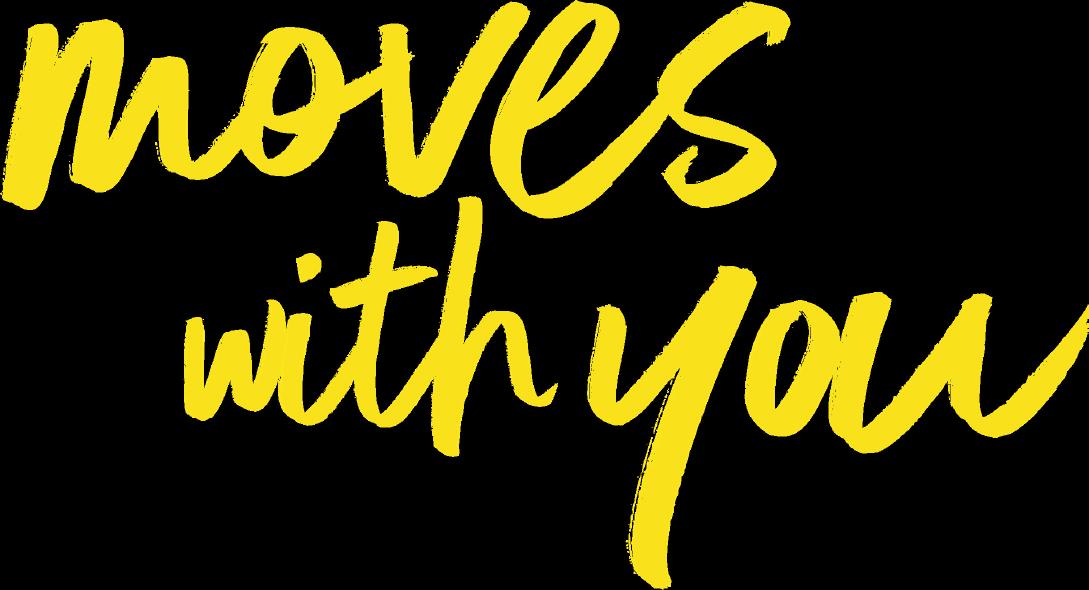
SYMTUZA® is a complete once-daily prescription medicine used to treat HIV in certain adults. Ask your healthcare provider if SYMTUZA® is right for you.
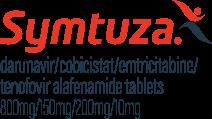
Learn more at www.symtuza.com

Helen is a real SYMTUZA ® patient.
has been compensated
Helen
by Janssen.
Helen
– REAL SYMTUZA® PATIENT & GARDEN LOVER
What is SYMTUZA® used for?
SYMTUZA® is a prescription medicine that is used without other antiretroviral medicines to treat Human Immunodeficiency Virus-1 (HIV-1) infection in adults and children who weigh at least 88 pounds (40 kg) who:
• have not received anti-HIV-1 medicines in the past, or • when their healthcare provider determines that they meet certain requirements
HIV-1 is the virus that causes AIDS (Acquired Immune Deficiency Syndrome). It is not known if SYMTUZA® is safe and effective in children weighing less than 88 pounds (40 kg).
Take SYMTUZA® one time a day with food. Take SYMTUZA® exactly as your healthcare provider tells you. Do not change your dose or stop taking SYMTUZA® without talking to your healthcare provider. If you have difficulty swallowing, the tablet may be split using a tablet-cutter. After splitting the tablet, the entire dose (both halves) should then be taken right away. Do not miss a dose of SYMTUZA® When your SYMTUZA® supply starts to run low, get more from your healthcare provider or pharmacy. This is very important because the amount of virus in your blood may increase if the medicine is stopped for even a short time. The virus may develop resistance to SYMTUZA® and become harder to treat.
What are the most serious risks with SYMTUZA®?

SYMTUZA® can cause serious side effects including: worsening of hepatitis B virus (HBV) infection. Your healthcare provider will test you for HBV before starting treatment with SYMTUZA® If you have HBV infection and take SYMTUZA®, your HBV may get worse (flare-up) if you stop taking SYMTUZA®. If you stop taking SYMTUZA®, your healthcare provider will need to check your health often and do blood tests regularly for several months to check your HBV infection or give you a medicine to treat your HBV infection. Tell your healthcare provider about any new or unusual symptoms you may have after you stop taking SYMTUZA®
What are the important warnings?
• SYMTUZA® may cause severe liver problems that can lead to death. Tell your healthcare provider right away if you get these symptoms: skin or the white part of your eyes turn yellow, dark “tea-colored” urine, light-colored stools, loss of appetite for several days or longer, nausea, vomiting, or stomach area pain
• SYMTUZA® may cause severe or life-threatening skin reactions or rashes. Stop taking SYMTUZA® and call your healthcare provider right away if you develop any skin changes with the following symptoms: fever, tiredness, muscle or joint pain, blisters or skin lesions, mouth sores or ulcers, and/ or red or inflamed eyes like “pink eye” (conjunctivitis)
• SYMTUZA® can cause new or worse kidney problems, including kidney failure
What should I tell my healthcare provider?
Before taking SYMTUZA®, tell your healthcare provider about all of your medical conditions, including if you:
• have liver problems (including hepatitis B or hepatitis C)
• have kidney problems
• are allergic to sulfa (sulfonamide)
• have diabetes
• have hemophilia
• are pregnant or plan to become pregnant. SYMTUZA® should not be used in pregnant women. It is not known if SYMTUZA® will harm your unborn baby
• are breastfeeding or plan to breastfeed. You should not breastfeed if you have HIV-1 because of the risk of passing HIV to your baby
Do not breastfeed if you take SYMTUZA® .
Tell your healthcare provider about all the medicines you take, including prescription and over-the-counter medicines, topical creams, vitamins, and herbal supplements. Some medicines interact with SYMTUZA®. Keep a list of your medicines to show your healthcare provider and pharmacist. Do not start taking a new medicine without telling your healthcare provider.
Who should not take SYMTUZA®?
• Do not take SYMTUZA® with any of the following medicines: alfuzosin, carbamazepine, colchicine (if you have liver or kidney problems), dronedarone, elbasvir and grazoprevir, ergot-containing medicines (such as: dihydroergotamine, ergotamine tartrate, methylergonovine), ivabradine, lomitapide, lovastatin or a product that contains lovastatin, lurasidone, midazolam (when taken by mouth), naloxegol, phenobarbital, phenytoin, pimozide, ranolazine, rifampin, sildenafil when used for pulmonary arterial hypertension (PAH), simvastatin or a product that contains simvastatin, St. John’s wort (Hypericumperforatum) or a product that contains St. John’s wort, or triazolam
• Serious problems can happen if you take any of these medicines with SYMTUZA®. This is not a complete list of medicines. Therefore, tell your healthcare provider about all medicines you take
What are the possible side effects of SYMTUZA®?
SYMTUZA® may cause serious side effects including:
• Immune system changes (Immune Reconstitution Syndrome) can happen in people taking HIV-1 medicines
• Too much lactic acid in your blood (lactic acidosis) which is a serious but rare medical emergency that can lead to death. Tell your healthcare provider right away if you get these symptoms: weakness or being more tired than usual, unusual muscle pain, being short of breath or fast breathing, stomach pain with nausea and vomiting, cold or blue hands and feet, feel dizzy or lightheaded, or a fast or abnormal heartbeat
• Diabetes and high blood sugar
• Changes in body fat can happen in people taking HIV-1 medications
• Increased bleeding in people with hemophilia, which can happen when taking protease inhibitors
The most common side effects are:
• Diarrhea, nausea, headache, gas, rash, fatigue, stomach problems
These are not all of the possible side effects of SYMTUZA®. Tell your healthcare provider if you have any side effect that bothers you or that does not go away.
What important facts should I know?
This information is not complete. To get more information:
• Talk to your healthcare provider or pharmacist
• Visit www.SYMTUZA.com to read over the FDA-approved product labeling and patient information
Please read above Important Brief Summary, including Important Warnings for SYMTUZA®, and discuss any questions you have with your doctor.
You may report side effects to the FDA at 1-800-FDA-1088 or to Janssen Products, LP at 1-800-JANSSEN (1-800-526-7736). cp-60855v9
©
Therapeutics,
LP 2023 07/23 cp-400865v1
Janssen
Division of Janssen Products,
ZERO HOUR™: How Black Women Will Help End the HIV Epidemic
Location: archives, M4 LeveL, Marriott Marquis
track: bLack WoMen & hiv
LeveL: beginner
Presenters:
dr david MaLebranch
dr chauncey Watson
This live-to-tape recording for the Gilead global HIV podcast ZERO HOUR™ will be a conversation designed to elevate the voices and perspectives of Black women in the HIV response. The conversation will focus on addressing the impact of HIV in Black women across their lifespan and will incorporate both global and US perspectives to highlight the power of women working together to center their needs in efforts to end the HIV epidemic. Attendees will learn key facts about HIV prevention and treatment in women and gain insight into using one’s voice and platform to advocate for women-centered HIV care.
Participants will learn:
• Current perspectives on HIV prevention and treatment for women (note: no brands or products will be mentioned)
• Why women need to be at the center of the HIV response in the US and globally
• How to use one’s voice and platform to advocate for women-centered HIV care
HIV prevention campaign focused on Black women which resulted in the Black Women’s Prevention Green Book. This highly interactive workshop will include opportunities for in-depth discussion about the development of the green book, provide participants access, and allow for discussion on how this resource can be effectively replicated for Black women in other regions of the US, especially in the south.
Integrating hepatitis and HIV: Shaping Syndemic Policies and Services
Location: congress, M4 LeveL, Marriott Marquis track: ending the ePideMic
LeveL: interMediate
Presenters:
stePhanie hengst, the aids institute, orLando, FL naoMi gasPard, the aids institute, Washington, dc
Hepatitis B (HBV) is the most common liver infection in the world and while many people may not experience symptoms, this disease can result in preventable cancer or death. The ongoing opioid epidemic has also fueled the increasing rates of HBV, hepatitis C, and HIV. Despite the availability of a vaccine, the CDC estimates that 850,000 Americans are currently living with chronic HBV infection, with rates as high as 2.4 million due to underreporting. To address the syndemic nature of hepatitis and HIV epidemics, it is imperative to build upon existing health system infrastructures and consolidated services for better health outcomes.
The AIDS Institute will delve into the findings from a small project examining HBV vaccine uptake among HIV clinic users across Florida, and experts including a provider from the field will engage audience members in a discussion of opportunities, challenges, and best practices to shape syndemic policy solutions.
Self-Care as Activism With the Black Women’s Prevention Green Book
Location: Mt vernon square, M3 LeveL, Marriott Marquis
track: bLack WoMen & hiv
LeveL: interMediate
Presenters:
hanna tesseMa, bLack WoMen’s Learning institute, Washington, dc
Lisa Frederick, bLack WoMen’s Learning institute, neW york, ny
caPric WaLker shaW, university oF LouisviLLe 550 cLinic, LouisviLLe, ky
This highly interactive session will allow participants the opportunity to discuss and learn about the development of the Black Women’s Prevention Green Book in Louisville, Kentucky. While the number of PrEP users has grown over time, PrEP use has been inconsistent across sexes, age groups, and geographic regions. The Black Women’s Learning Institute & the University of Louisville’s 550 PrEP Program took a community-based approach by engaging Black women locally to participate in listening sessions to share their experiences and views on the development of an
Collaborating with Social Media Influencers to Stop HIV Together
Location: Mint, M4 LeveL, Marriott Marquis track: ending the ePideMic LeveL: interMediate
Presenters:
eMiLy LiLo, centers For disease controL and Prevention, atLanta, ga kevin hernandez, Fhi 360, neW york, ny shea van horn, Fhi 360, Washington, dc barry brandon, For aLL huMans, FL
Jo stryker, centers For disease controL and Prevention, atLanta, ga
HIV disproportionately impacts certain groups more than others, and research indicates those same groups have higher levels of mistrust of government and the medical system. Government agencies and
86 FRIDAY SEP 8 2023 UNITED STATES CONFERENCE ON HIV/AIDS
SESSION 7 WORKSHOPS
organizations aiming to engage these populations must consider unconventional strategies. CDC’s national Let’s Stop HIV Together (Together) campaign uses evidence-based strategies to reduce HIV stigma and promote HIV testing, prevention, and treatment among priority groups. Social media influencers have become trusted spokespeople, often connecting with people who may not listen to traditional news or information sources, and together wanted to build an evidence-base for working with them. Acknowledging the myriad of factors that could impact government agencies engaging influencers, we were cautious and thorough, aligning activations to our other paid and organic outreach strategies to rigorously evaluate impact. In this workshop, we will share our experiences developing guidance for hiring influencers and influencer agencies, vetting influencers, and developing content to maximize efforts.
Black Women & The Glass Cliff
Location: shaW baLLrooM a, LeveL 2, courtyard Marriott track: racisM and race
LeveL: beginner
Presenters:
LatangeLa Foster, MPa, aids aLabaMa, inc., birMinghaM, aL
Latoya MeLton, LMsW, university oF aLabaMa at birMinghaM (uab), birMinghaM, aL
tonya Jackson, MsW, aids aLabaMa, inc., birMinghaM, aL
This workshop will focus on the leadership challenges faced by Black women. In particular, the focus will be on the phenomenon known as the glass cliff. Women are often offered leadership positions or granted more authority following a crisis or a disaster. Women are charged with taking the helm, but only after the ship is sinking. Although this perceived opportunity is clearly a set-up, what happens when the same women are also faced with racism? The glass cliff quickly becomes more dangerous and can lead to career devastation. For Black women, this phenomenon can also feed a stereotypical narrative of ineptitude and ineffective leadership. The end result is continued racism, discrimination, lack of representation, and a failed attempt at service provision to the most marginalized communities.
ESCALATE Case Studies: Field Stories in Stigma
Reduction
Location: horne, LeveL 2, courtyard Marriott track: stigMa Prioritizing PLWh
LeveL: beginner
Presenters:
John a guidry, trx deveLoPMent soLutions, LLc, neW york, ny Joie a otting, trx deveLoPMent soLutions, LLc, neW york, ny terreLL Parker, nMac, Washington, dc
The workshop will present three case studies of “Stigma Reduction Teams” (SRTs) that have participated in ESCALATE (Ending Stigma through Collaboration and Lifting All To Empowerment), the Ryan White HIV/AIDS Program’s (RWHAP’s) national HIV stigma reduction project. The case
studies will shed light on several factors involved in stigma reduction: knowledge about stigma, understanding when or which strategic actions are appropriate to address stigma, how to enlist allies, forces that work against stigma reduction, and resources needed to address stigma. At the end of the workshop, attendees will have a concrete sense of the human, social, organizational, and cultural landscape of HIV stigma and the challenges and opportunities we have to address it.
TWIST: A CDC Supported Intervention Co-Authored by Transgender Women
Location: shaW, M2 LeveL, Marriott Marquis track: bLack WoMen & hiv
LeveL: interMediate
Presenters:
dana WiLLiaMs, the coMMunity WeLLness ProJect, st. Louis, Mo tatyana Moaton, Phd, san Francisco coMMunity WeLLness, atLanta, ga tori cooPer, Ma, huMan rights caMPaign, atLanta, ga kathLeen ruth, Phd, cicateLLi associates inc., atLanta, ga
This workshop will provide an overview of TWIST, an innovative HIV prevention intervention, designed by transgender women for transgender women. The workshop will provide implementation strategies, demonstrate facilitation skills needed to effectively implement TWIST, and discuss lessons learned for dissemination. TWIST was developed in partnership with the Centers for Disease Control and Prevention (CDC), CAI Global, and the Community Wellness Project. The intervention consists of four three-hour educational and skills-building sessions designed to address specific needs and issues faced by transgender women living with or at increased chance for getting HIV. TWIST supports participants’ gender affirmation, helps to increase social support and self-efficacy to set goals, identify characteristics of healthy and unhealthy relationships, identify behaviors that can lower the chances of getting HIV, and cope with stress. The sessions provide an opportunity for transgender women to build sisterhood and increase their knowledge and skills to improve their health and well-being.
Healing Hope: Binational Storytelling Led By Women Living With HIV
Location: shaW baLLrooM b, LeveL 2, courtyard Marriott track: stigMa Prioritizing PLWh
LeveL: beginner
Presenters:
rhea van brockLin, christie’s PLace, san diego, ca nicoLette ibarra, christie’s PLace, san diego, ca
“Healing Hope” is a unique storytelling project piloted by Christie’s Place with women living with HIV (WLWH) in San Diego, CA, and Tijuana, MX. This bilingual compilation of stories amplifies the voices and experiences of the WLWH, informs policy to achieve justice and equity in prevention services for communities of color, and encourages a cultural shift in harmful narratives that enable HIV-related stigma to persist. Healing Hope offer
87 FRIDAY #2023USCHA SEP 8
SESSION 7 WORKSHOPS
testimonies of love and resilience that brings hope to newly diagnosed women and long-term survivors. Workshop participants will learn the process used to collect and translate stories from WLWH and produce a tool that brings forth change through conversations about HIV in the community. They will also hear first-hand from women who shared their story in the book and practice a simple method of beginning storytelling with a fun and impactful activity that will produce a unique story they can bring home.
Beyond Diversity: A Data-Driven Approach to Equity, Inclusion and Belonging
Location: chinatoWn, M3 LeveL, Marriot Marquis
track: racisM and race
LeveL: advanced
Presenters:
dr tyLer terMeer, san Francisco aids Foundation, san Francisco, ca
Mazdak Mazarei, san Francisco aids Foundation, san Francisco, ca
Much has been said about the importance of having an HIV workforce that reflects the demographics and experiences of the folx most impacted by HIV, including Black, Latinx and Indigenous communities. But how can organizations move beyond simply hiring diverse staff to create environments where employees from historically marginalized communities feel a sense of belonging and get the support they need to succeed and grow as leaders? How can we work to avoid replicating the same systems of oppression that our clients face with staff at our own agencies? In this interactive workshop, we will discuss concrete, data-driven strategies that AIDS Service Organizations of all sizes can take to improve engagement, retention and a sense of belonging among their BIPOC staff.
Black Women in HIV: The Challenge to Being Effective Leaders
Location: treasury, M4 LeveL, Marriott Marquis
track: bLack WoMen & hiv
LeveL: beginner
Presenters:
Moderator: aLFred Forbes, a.L. Forbes consuLting, boston, Ma
dr orisha boWers, Ph d., orixa heaLing arts WeLLness and sPirituaL centre, MeMPhis, tn taMMy Morris, the aLiveness ProJect oF northWest indiana, haMMond, in chrystaL turner, north Jersey coMMunity research initiative, neWark, nJ JasMine tasaki, Wecare tn, MeMPhis, tn
A panel of diverse intergenerational Black women from around the country will participate in a dialogue about their lived experience as HIV leaders. They will share their reality about the internal and external expectations and demands placed on Black women leaders, which can be overwhelming. Participants are invited to come and hear about the good, bad, and ugly of being the ‘clean-up” women. Participating leaders will have the opportunity to share their personal journey and survival tips to manage the ups and downs of leadership in a non-profit community-based organization.
Retention in Care For Cisgender and Transgender Black women
Location: siLver Linden, 2nd FLoor LeveL/Mezzanine, Marriott Marquis track: bLack WoMen & hiv
LeveL: interMediate
Presenters:
charLes coLLins, centers For disease controL and Prevention, atLanta, ga caroLyn Wright, centers For disease controL and Prevention, atLanta, ga
Information from published studies on retention in HIV care by cisgender and transgender Black women will be presented and how they drop out of care will be compared between demographic groups. An exercise will take place where the audience will be asked “why would cisgender and transgender Black women drop out of HIV care?” and will identify and discuss the social determinants that may undermine HIV care for Black women. After this exercise, 17 evidence-based approaches to retention in HIV care will be presented. For each there will be discussion on whether that approach could be implemented under real-world conditions and how social determinants might also be addressed during program implementation. The workshop ends with a summary of those approaches to retention in care for cisgender and transgender Black women that have potential for successful implementation while reducing health inequalities.
New Policy Guidelines: Infant Feeding for PLWH in the USA
Location: Marquis saLon 14, M2 LeveL, Marriott Marquis track: PubLic PoLicy
LeveL: interMediate
Presenter:
Martha caMeron, internationaL coMMunity oF WoMen Living With hiv north aMerica, Washington, dc
For the first time ever, the United States guidelines do not specifically recommend that women and other birthing parents refrain from breastfeeding with HIV, and they provide more clearly worded guidance on the rates of transmission if the birthing parent has an undetectable viral load and is taking ART (less than 1 percent). While the previous guidelines stated that women and birthing parents should receive patient-centered and evidence-based counseling (and ultimately be supported in their infant-feeding decisions), their statement that “breastfeeding is not recommended for individuals with HIV in the United States” frequently superseded all other recommendations among providers. The current infant-feeding guideline updates stress that “open communication that involves the parent in shared decision-making provides an opportunity for providers to understand their patients’ values and infant feeding preferences, thus allowing individuals who choose to breastfeed, and their infants, to receive appropriate care and support.”
88 FRIDAY SEP 8 2023 UNITED STATES CONFERENCE ON HIV/AIDS
7 WORKSHOPS
SESSION
A Long Way to Home: Housing Justice to End HIV
Location: Ledroit Park, M3 LeveL, Marriott Marquis
track: ete PathWay
Presenters:
Moderator: daFina Ward, southern aids coaLition, bLuFFton, sc ceciLia gentiLi, transgender equaLity consuLting, neW york, ny trasWeLL Livingston, aids services oF daLLas, daLLas, tx cLover barnes, hiv/aids, hePatitis, std and tb adMinistration (hahstas), Washington, dc
This workshop will explore the intersection of housing and HIV in Black communities. Participants will learn about innovative housing programs that have been successful in supporting people living with HIV and ending the epidemic. The workshop will also address the specific challenges faced by Black individuals and communities in accessing safe and affordable housing, and the importance of addressing these issues in the context of HIV prevention and care. Through interactive discussions, attendees will gain a deeper understanding of the impact of housing instability and homelessness on HIV outcomes, and how funding programs can support innovative housing solutions.
6:30 pm - 7:30 pm AFFINITY
Various Locations
HOPWA Unspent Funding: Local Advocacy and Coordination
Location: LincoLn, LeveL 2, courtyard Marriott track: hud housing PathWay
Presenters: Lauren banks, Mdiv, nationaL hiv/aids housing coaLition, Washington, dc
The Housing Opportunities for Persons with AIDS (HOPWA) program is the only federal program dedicated to providing housing to low-income people with HIV and their families. Every year, several HOPWA grantees do not spend all their grant allocations, despite 1 in 4 people living with HIV needing housing resources and support. If this unspent funding sits long enough, it’s lost to the local community, lost to the HOPWA program, and ultimately returned to the Treasury! Come to this session to find out which HOPWA jurisdictions are “slow spenders” with funding at risk, and what strategies are available to help grantees get back on track.
89 FRIDAY #2023USCHA SEP 8
SESSION
SESSION 7 WORKSHOPS
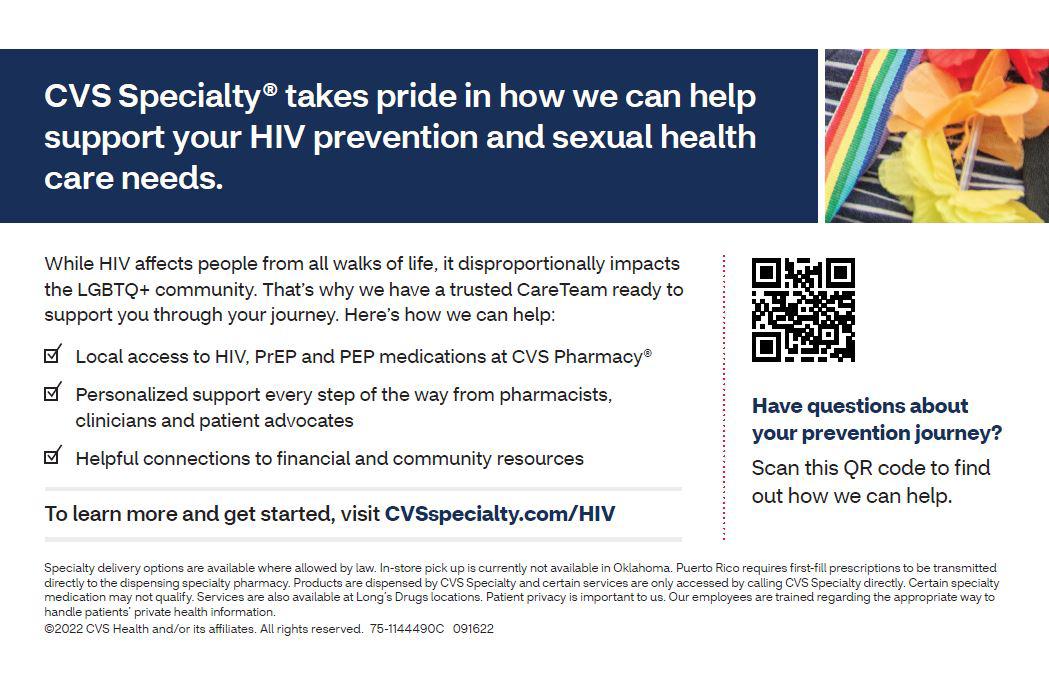
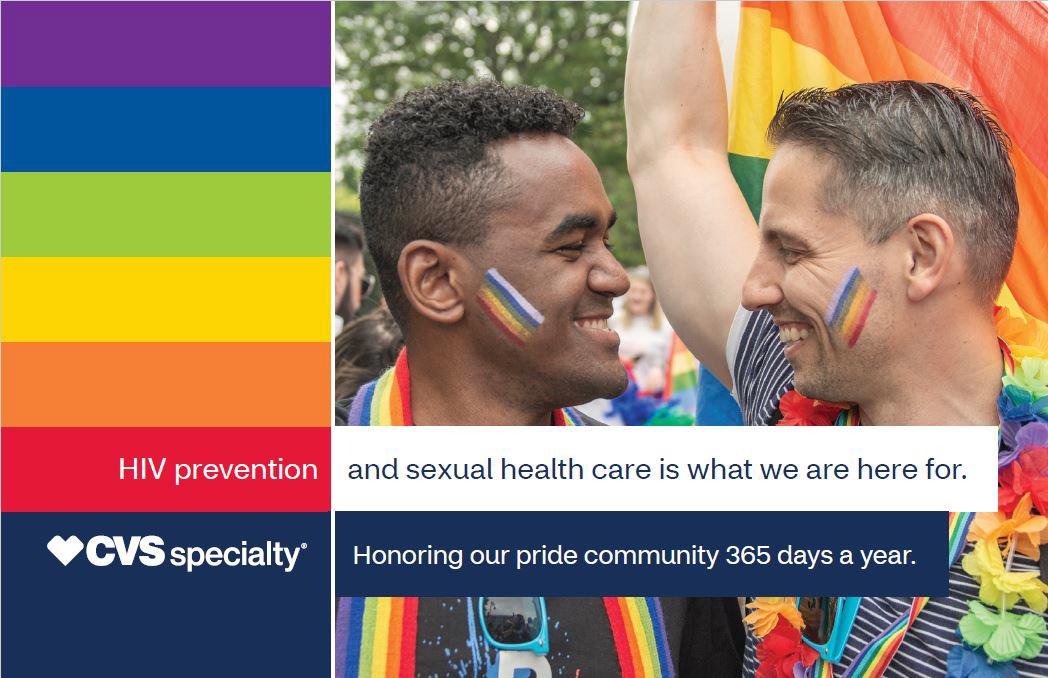
SCHEDULE AT A GLANCE SATURDAY
7:00 am
7:30 am AM Praise
Location: archives, M4 LeveL, Marriott Marquis
9:00 am11:00 am
Session 8 Workshops
Utilizing Psychedelics to Treat HIV-Related PTSD: Prevalence, Safety, and Considerations
Location: Howard, Level 2, Courtyard Marriott
“HIV Possible” Centering Faith Based Resources and Direct Service WOC
Location: Congress, M4 Level, Marriott Marquis
At the Intersection: Substance Use, HIV, and Telling Intersectional Stories
Location: Chinatown, M3 Level, Marriott Marquis
Language Justice in the HIV Movement
Location: Union Station, M3 Level, Marriott Marquis
VIHDAS EN + (+LIVES)
Location: Horne, Level 2, Courtyard Marriott
Advocacy for HIV Programs: Housing and More!
Location: Mint, M4 Level, Marriott Marquis
For Us By Us: The Forgotten Black Women in HIV
Location: Treasury, M4 Level, Marriott Marquis
Closing Plenary 11:30 am1:00 pm
Sanctifying the Rainbow: Black MSM and Faith-Based Sexual Exclusion
Location: Archives, M4 Level, Marriott Marquis
USPSTF and PrEP: Challenges and Opportunities For PrEP Expansion
Location: Mt. Vernon Square, M3 Level, Marriott Marquis
Together We Can: EHE Strategies to Support HIV Efforts For and With Black Cis and Trans Women
Location: Capitol, M4 Level, Marriott Marquis
Centering Blackness in HIV Vaccine Research
Location: Shaw, M4 Level, Marriott Marquis
The Mother of Sex Work: Histories and intersections with HIV/AIDS
Location: Lincoln, Level 2, Courtyard Marriott
Black Advocacy & Policy: Leading the Fight to Eliminate Viral Hepatitis
Location: LeDroit Park, M3 Level, Marriott Marquis
Federal Plenary: Efforts to End the HIV Epidemic Among Black Women
Location: Marquis Ballroom 6-10, M2 Level, Marriott Marquis
91 #2023USCHA
SEP 9 All times are Eastern
-
All times Atlantic Standard Time (AST). See app for full Institute and Workshop descriptions
7:00 am - 7:30 am
AM Praise
AM Praise
Location: archives, M4 LeveL, Marriott Marquis
9:00 am - 11:00 am
Session 8: Workshops
Utilizing Psychedelics to Treat HIV-Related PTSD: Prevalence, Safety, and Considerations
Location: hoWard, LeveL 2, courtyard Marriott track: trauMa-inForMed care
LeveL: advanced
Presenter:
azuL deLgrasso, Ph d candidate, caLiFornia institute oF integraL studies, denver, co
This workshop will delve into the use of psychedelics to treat PTSD in people living with HIV (PLWH). PLWHs have a higher prevalence of PTSD, which the COVID-19 pandemic has exacerbated. Psychedelic treatments present an opportunity to better manage mental health and improve quality of life. We’ll discuss how psychedelic therapies can help alleviate symptoms associated with HIV/AIDS, including evidence-based research on safety and efficacy from clinical studies conducted around the world. Protocols for practitioners using psychedelics, as well as safety considerations and best practices for treating HIV-related PTSD, are also included. Our goal is to equip attendees with knowledge about the potential benefits of psychedelic therapies in managing PTSD in PLWH and integrating them into effective mental health treatment plans. Attendees will also receive essential info on safety considerations and protocols for best practices when utilizing psychedelics in HIV-related PTSD therapies.
“HIV Possible” Centering Faith Based Resources and Direct Service WOC
Location: congress, M4 LeveL, Marriott Marquis
track: bLack WoMen & hiv
LeveL: advanced
Presenter:
shaWn tinsLey, the Fresh connection grouP PLLc., hoLLyWood, FL
“HIV Possible”: Centering Faith Based Resources as a Form of Support and Direct Service for Black Women Living with HIV will identify effective strategies for engaging faith-based organizations and the challenges
we face with stigma-related issues. We want to address the barriers and negative biases related to (PWH) People living with HIV. In addition, we want to educate the community and dispel the myths surrounding HIV/AIDS to foster open dialogue, increase safe spaces, and create opportunities for testing, prevention, and access to care within faith-based communities.
At the Intersection: Substance use, HIV, and Telling Intersectional Stories
Location: chinatoWn, M3 LeveL, Marriott Marquis
track: ending the ePideMic
LeveL: beginner
Presenters:
Judith LaveLLe, nationaL institute on drug abuse, Washington, dc heather boerner, nationaL institute on drug abuse, Pittsburgh, Pa MicheLLe saMPLin-saLgado, red soFa designs, MiaMi, FL ken r. WiLLiaMs, red soFa designs, atLanta, ga
Data shows the HIV epidemic and the drug overdose and addiction crises are inextricably linked. Yet, pervasive stigma and institutional silos mean many opportunities to optimize HIV services for people who use drugs go unrealized. Since its debut in 2021, the At the Intersection web video series—a collaboration between the National Institute on Drug Abuse and HIV.gov—has highlighted the ways in which evidence-based harm reduction and holistic care is necessary to end the HIV epidemic for people who use drugs. By pairing community voices with cutting-edge research, the series showcases successes and opportunities for innovation. In doing so, these videos demystify harm reduction services and the experience of substance use and substance use disorders. In this workshop, the series creators share their strategies for highlighting stories at the intersection of HIV and substance use, as well as general insights on creating platforms for intersectional stories to be told.
WEDNESDAY SEP 6 92 SATURDAY
92 2023 UNITED STATES CONFERENCE ON HIV/AIDS SESSION 8 WORKSHOPS
Language Justice in the HIV Movement
Location: union station, M3 LeveL, Marriott Marquis track: racisM and race
LeveL: interMediate
Presenters:
LeronaLd reid, coLibrí acadeMy For hiv and Language Justice, Laguna beach, ca danieL garza, coLibrí acadeMy For hiv and Language Justice, Laguna beach, ca, nicoLe santaMarina, eL/La Para transLatinas & advisor For coLibrí acadeMy For hiv and Language Justice, san Francisco, ca rita McdanieL, coLibrí acadeMy For hiv and Language Justice, durhaM, nc gLoria deLgadiLLo, coLibrí acadeMy For hiv and Language Justice, brookLyn, ny aLLison corbett, coLibrí acadeMy For hiv and Language Justice, brookLyn, ny
In this bilingual (Spanish/English) panel discussion hosted by the Colibrí Academy for HIV and Language Justice, participants will learn why expanding Language Justice infrastructure is needed both for successful prevention and treatment efforts, and to open more paths toward leadership for people living with HIV (PLHIV). Participants will hear diverse perspectives and real-life stories from Poz influencers and organizers, as well as language justice workers who have partnered with them through the Colibrí Academy, now in its second year.
VIHDAS EN + (+LIVES)
Location: horne, LeveL 2, courtyard Marriott track: stigMa Prioritizing PLWh
LeveL: interMediate
Presenter:
Jorge odir Miranda cortez, iMPacto Lgbt, arLington, va
Today, HIV has been transformed from a death sentence into a manageable chronic condition, no longer the fear, stigma, discrimination, ignorance, and rejection it once was. We will work to enhance participants’ skills as leaders, for example, how to discuss their diagnosis and normalize such discussions with their loved ones (family, friends, etc.).
Advocacy for HIV Programs: Housing and More!
Location: Mint, M4 LeveL, Marriott Marquis track: structuraL interventions PathWay
Presenters:
Lauren banks, nationaL hiv/aids housing coaLition, Washington, dc Junior reid, nationaL hiv/aids housing coaLition, charLotte, nc Elections matter. Whether it’s a local or national policy, knowing how to advocate for our collective HIV issues is one of the most important tools we have as people living with HIV/AIDS and as allies and advocates. In this session we will learn some basics on how to find out who your elected officials are, how to contact them, how to craft your message, and the best ways to communicate with your elected officials to get results.
(And winning IS possible!) In this session, we will highlight the need for housing and present data and messaging for housing advocates to use at the local, state, and national level so we can end the HIV epidemic and ensure all people have a safe, affordable place to call home.
For Us By Us: The Forgotten Black Women in HIV
Location: treasury, M4 LeveL, Marriott Marquis
track: bLack WoMen & hiv
LeveL: advanced
Presenters: shaLonda PeLLaM, MPh, hands united, Latino coMMission on aids, charLotte, nc kendra FenneLL, MPh, hands united, Latino coMMission on aids, greensboro, nc shayLa knighton-bLack, MPh, hands united, Latino coMMission on aids, taLLahassee, FL
Racial identity can be defined as one’s membership of a particular racial group (APA Dictionary of Psychology, 2023). In healthcare, there is a multitude of research for racial groups concerning certain health disparities. In the field of HIV care, identities are explored in masses and are funded for research, trials, and projects. However, there is a singular identity that does not have sufficient recognition in HIV: African American women. In this field, the statistics for African Americans surpass those of Hispanic/Latino individuals, Asian Americans, and other races. What about African American women specifically? Furthermore, how many African American women are working in this field in decision-making positions? This facilitated presentation will explore the challenges and successes of African American women living with and working in the HIV field. This presentation will also propose strategies to encourage African American women to advance their positions in the HIV workforce.
USPSTF and PrEP: Challenges and Opportunities for PrEP Expansion
Location: Mt vernon square, M3 LeveL, Marriott Marquis track: bioMedicaL hiv Prevention
LeveL: interMediate
Presenters:
nick arMstrong, the aids institute, Washington, dc racheL kLein, the aids institute, Washington, dc
In 2019, the US Preventive Services Task Force gave PrEP a grade “A” recommendation, requiring most Affordable Care Act (ACA) covered private insurance plans to cover PrEP and associated ancillary services without out-of-pocket costs. But many PrEP users continue to face unexpected bills when they get a prescription or refill, and insurers, labs, and providers have said there are challenges getting free PrEP. Getting this right is a crucial step to achieving the nation’s HIV prevention goals. This workshop will give PrEP users, and providers, the information they need to advocate for themselves, their clients, and their community, including the regulatory history research on PrEP coverage compliance in 2023 ACA Marketplace plans, a deep dive into the consequences of Braidwood v. Becerra, and firsthand accounts from PrEP providers navigating the system.
WEDNESDAY SEP 6 SATURDAY
93 #2023USCHA SESSION 8 WORKSHOPS
Together We Can: EHE Strategies to Support HIV Efforts For and With Black Cis and Trans Women
Location: caPitoL, M4 LeveL, Marriott Marquis
track: bLack WoMen & hiv
LeveL: interMediate
Presenters:
robyn nebLett FanFair, Md, MPh, centers For disease controL and Prevention/ division oF hiv Prevention, atLanta, ga
Jerris raiFord, Phd, Ma, centers For disease controL and Prevention/division oF hiv Prevention, atLanta, ga
steFanie anderson, MPh centers For disease controL and Prevention/division oF hiv Prevention, atLanta, ga
Liz dinenno, Phd, centers For disease controL and Prevention/division oF hiv Prevention, atLanta, ga
tai FeW, M. div, denver Prevention training center, denver, co
zaMi tinashe hyeMingWay, MsW, denver Prevention training center, denver, co
June giPson, Phd, My brother’s keePer (Mbk), Jackson, Ms
tyFFanie WaLton, ba, Michigan dePartMent oF heaLth & huMan services, Lansing, Mi
kyra sanders, MsW, Michigan dePartMent oF heaLth & huMan services, Lansing, Mi
This interactive session will focus on celebrating, centralizing, and serving Black cisgender and transgender women as part of the CDC’s Division of HIV Prevention’s efforts to scale up HIV prevention and care efforts across all four EHE pillars: Diagnose, Treat, Prevent, and Respond. The session will include new resources, insightful case studies, and collaborative discussion that invite attendees to share their own homegrown efforts and innovative strategies. Participants will leave equipped with practical tools, strategies, and peer connections to strengthen their HIV efforts in their communities, while leveraging the unique strengths and opportunities of Black women in the work,
Black Advocacy & Policy: Leading the Fight to Eliminate Viral Hepatitis
Location: Ledroit Park, M3 LeveL, Marriott Marquis
track: hePatitis PathWay
LeveL: interMediate
Presenter:
naoMi gasPard, the aids institute, Washington, dc
Viral hepatitis elimination is not possible without acknowledging how the disease disparately impacts Black communities, who represent 12% of the U.S. population and account for 23% of people living with hepatitis C virus (HCV) and 2.6 times more likely to die from hepatitis B virus (HBV) than white people. Compared to other racial groups, they are less likely to be tested for HCV and less likely to be linked to care after diagnosis. This workshop will examine lessons learned from Black activists in the viral hepatitis and harm reduction community whose unwavering advocacy addresses barriers to advancing hepatitis elimination including mass incarceration, treatment access among public and private insurers,
discrimination, and other systemic health inequities. You will hear from leaders who advocate for racial equity by leading and providing policy analysis, education, and best practices to empower disparately impacted communities to mobilize and engage elected officials to advance hepatitis services from prevention to cure.
Centering Blackness in HIV Vaccine Research
Location: shaW, M4 LeveL, Marriott Marquis track: racisM and race
LeveL: interMediate
Presenters:
abrahaM Johnson, MPh, treatMent action grouP, neW york, ny brady Maiden, southern aids coaLition, PoWder sPrings, ga briana WiLLis, bLack aids institute, Los angeLes, ca
Intentional inclusion that focuses on needs of Black people and other racial/ethnic minority groups in HIV vaccine research will bring us closer to ending the HIV epidemic. As the toolbox of HIV prevention options expands, an efficacious HIV vaccine remains a critical need. Development of an HIV vaccine will provide another option for people who experience pill fatigue from PrEP, along with complexities of navigating a fragile, racist healthcare system. However, due to historical trauma and misinformation, Black communities are late adopters of biomedical interventions and understandably skeptical of vaccines and vaccine research, as highlighted during the COVID-19 pandemic. Despite being disproportionately impacted by HIV, Black communities are underrepresented in HIV vaccine trials. To increase vaccine research advocacy among Black communities, the HIV Vaccine Trials Network funds Treatment Action Group, Black AIDS Institute, and Southern AIDS Coalition to develop community programs focused on increasing awareness and advocacy for HIV vaccines.
The Mother of Sex Work: Histories and intersections with HIV/AIDS
Location: LincoLn, LeveL 2, courtyard Marriott track: PubLic PoLicy
LeveL: interMediate
Presenters:
PJ starr, bPPP and MoraL high ground Productions, neW york, ny n’JaiLa rhee, neW Jersey red uMbreLLa aLLiance, neWark, nJ the incredibLe edibLe, akynos, the bLack sex Worker coLLective, neW york, ny erika sMith, best Practices PoLicy ProJect, Washington, dc
In 1979 Carol Leigh invented the term “sex work” and launched a new way to discuss erotic labor as a human rights issue and to speak about the health and rights questions surrounding engagement in sexual exchange and HIV/AIDS in the United States. In the years that followed and as the HIV/AIDS pandemic affected the world, the term “sex work” became an essential pillar in HIV prevention and then in treatment and care. This workshop led by sex workers honors the legacy of Carol Leigh in the wake
WEDNESDAY SEP 6 94 SATURDAY
94 2023 UNITED STATES CONFERENCE ON HIV/AIDS
8 WORKSHOPS
SESSION
of her passing in November 2022. We are hosting this during the USCHA to link Carol’s legacy and our work on HIV, the struggles that sex workers currently face in the United States, and the towering figure Carol Leigh was as a member of ACT UP and much more.”
Sanctifying the Rainbow: Black MSM and FaithBased Sexual Exclusion
Location: archives, M4 LeveL, Marriott Marquis
track: Faith PathWay
LeveL: beginner
Presenter:
dontá Morrison, Phd
The Black church is an important community resource focused on bettering and protecting the lives of Black people. However, many Black Christian
11:30 am - 1:00 pm
Closing Plenary
men who have sex with men (MSM) who are, or seek to be, actively involved in the traditional Black church struggle to find acceptance. Many experience mental traumas rooted in scriptural misinterpretation and intergenerational teachings that shame and denounce their sexual identity. The lack of affirmation can interrupt how they navigate life and interact personally, professionally, and sexually. As an attempt to be accepted, some will put on a façade of heterosexualism in effort to appease the church and avoid stigma, discrimination, marginalization, and homophobic rejection.
This workshop will dissect the impact of biblical use and misuse when it comes to education about the fluidity of human sexuality. Through dialogue and researched data, it provides a template to strengthen the Black church’s role as leaders in equality by becoming a place where persons of all sexual orientations could coexist and flourish, learn how to live and love to the fullest which would position the Black church as a social conduit that breaks down barriers and builds bridges.
Federal Plenary Lunch: Efforts to End the HIV Epidemic Among Black Women


Location: Marquis baLLrooMs 6-10, M2 LeveL, Marriott Marquis
The Federal Plenary will include speakers from HHS that will update our movement on efforts to end the HIV epidemic among Black Women. Join us to hear from this dynamic panel of Black women leaders in the Federal government.
sPeakers:
kaye hayes, hhs
dr robyn nebLett FanFair, cdc
Ms yeMisi odusanya, hrsa
dr. Mary roary, saMhsa
dr. Janine cLayton, nih
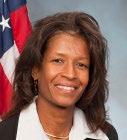

JeMine bryon, dePuty assistant secretary For the oFFice oF sPeciaL needs
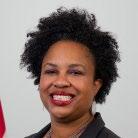

dr naMandJe buMPus, Fda
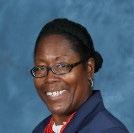
WEDNESDAY SEP 6 SATURDAY
Neblett-Fanfair Hayes Odusanya
95 #2023USCHA SESSION 8 / PLENARY
Roary Bumpus Clayton Byron


Gilead is proud to support USCHA 2023
more information,
visit www.Gilead.com
For
please
Connect and feed
What to expect:
- Attend live engaging presentations covering the latest in HIV/AIDS care and related co-morbidities from speakers like Demetre Daskalakis (Division of HIV/AIDS Prevention at CDC), Dallas Ducar (TransHealth), Dalmacio Dennis Flores (University of Pennsylvania), Dafina Ward (Southerns AIDS Coalition), Shannon Zenk (NINR) and MANY MORE!
- Examine the connections between LGBTQ+ rights, social determinants of health, racism and trauma related to quality of life, HIV prevention and treatment in health care locally, nationally and globally.
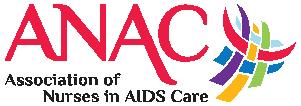
REGISTER NOW! New Orleans | Oct. 26-28, 2023 (pre-conference activities Oct. 25) ANAC annual conference At tendees are eligible to receive up to 18 contact hours of nursing cont inuing professional development! For more informat ion, visit nursesinaidscare.org/conference. nursesinaidscare org ANAC is happy to support USCHA and are a proud partner of NMAC. We hope you all enjoy #2023USCHA!
your
soul.
We hope to see you in New Orleans!
POSTER SESSIONS
Trauma-Informed Care
Collective Resiliency: Support and Young Black SGLM Living With HIV
Presenter: carter oseLett, aids Foundation chicago
Casa Zulma: Trauma-informed Integrated Program For Transwomen in Los Angeles
Presenter: Jury candeLario, Pait, sPeciaL service For grouPs
Who Cares About Us?: HIV/Mental Health in Older Transgender Women
PreSenTer: Dr. WiLL cobbS, Jr., PuerTo rican cuLTuraL cenTer
Best Practices in Telehealth
Integrating Telehealth Services With a Non-Clinical CBO Testing Operation
Presenter: oMi singh gMhc
Piloting e-Consent for South Carolina’s Data-to-Care Program
Presenter: ryan kruis, MedicaL university oF south caroLina, nationaL , nationaL
teLeheaLth center oF exceLLence
Implementation of South Carolina’s Lowcountry TelePrEP Initiative
Presenter: ryan kruis, MedicaL university oF south caroLina, nationaL
Low Health Literacy Patient Portal: Ryan White
Bergen-Passaic SPNS Initiative
Presenter: MiLagros izquierdo, the city oF Paterson
Biomedical HIV Prevention
A TeleHealth Programmatic Model For HIV PreExposure Prophylaxis
Presenter: kurt koehLer, hosPitaL oF the university oF PennsyLvania
Examining the Benefits of Offering PrEP at Syringe Service Programs
Presenter: tayLor saboL, aids united
September 7 & 8 1:30 -2:00 PM
Poster Sessions are located in M3 Level Foyer
Childcare: Leading HIV Pre-Exposure Prophylaxis Barrier Among High-Risk Georgia Communities
Presenter: MoLLy hirsh, augusta university/university oF georgia MedicaL PartnershiP
Black Women & HIV
Barriers to the Use of PrEP Among Cis-Gender Black Women
Presenter: shayLa knighton-bLack, FLorida a&M university
HIV Prevention Interventions For Black Transgender Women
Presenter: nicoLe crePaz, centers For disease controL and Prevention
Black Women Impacted By HIV Obtaining Self-Care & Stress Management
Presenter: sheLise Wongus, PubLic heaLth ManageMent corPoration (PhMc)
Ending the Epidemic
Analysis of Viral Load Trends in Shelby County, Tennessee
PreSenTer: minH Doan, SHeLby counTy HeaLTH DeParTmenT
Implementing HIV Self-Testing in 6 California Counties: Outcomes for Youth
Presenter: aLLison hargreaves, caLiFornia dePartMent oF PubLic heaLth, oFFice oF aids
Self-Management Strategies for Antiretroviral Therapy Adherence Among Women With HIV
Presenter: aaLiyah gray, FLorida internationaL university FLorida internationaL university
Developing Podcasts For EHE Priority Populations in DC and Maryland
PreSenTer: HaLLi oLSen, cicaTeLLi aSSociaTeS inc
What Are the Necessary Components for Effective Community-Based Groups?
Presenter: JiMMy nash, MPh, equitas heaLth, coLuMbus, oh
2023 UNITED STATES CONFERENCE ON HIV/AIDS
98
POSTER SESSIONS
Public Policy
Connecticut’s Getting to Zero and the Black Women Left Behind
Presenter: ceciL tengatenga, uconn heaLth center
How Advocates Passed Medicaid Expansion in North Carolina
PreSenTer: JuDiTH monTenegro, LaTino commiSSion on aiDS
Racism and Race
Towards Antiracism Praxis in HIV Care: Developing Antiracism Curriculum
Presenter: Monica hahn, university oF caLiFornia, san Francisco
Building DEI in Global HIV Prevention and Treatment Research
Presenter: MicheLLe haber, Fhi 360
The Impact of Racial Violence on Black and Latino MSM Improving HIV and Aging Services Through Collaborative, Community-informed, Peer Learning
Presenter: orLando harris, university oF caLiFornia san Francisco
HUD’s Outreach on HIV Housing Discrimination
Presenter: Lisa steinhauer, housing and urban deveLoPMent
September 7 & 8 1:30 -2:00 PM
Poster Sessions are located in M3 Level Foyer
Stigma Prioritizing PLWH
Improving HIV and Aging Services Through Collaborative, Community-informed, Peer Learning
Presenter: Jb deL rosario, training and heaLth equity coLLaborative
PATH2Wellness: Reimagining a Healthy Aging Program for Older PLWH
Presenter: erin burk-Leaver, coLorado heaLth netWork
STIgma - The Connection Between HIV and Reproductive Health
Presenter: Mackenzie FLynn, aids united
Treatment Research & Information
Targeting HIV-1 Accessory Protein Nef to Achieve Remission
PreSenTer: SaTeeSH aPTe, immgenuiTy, inc
Partnerships With Communities Impacted By HIV Strengthen Research Design
PreSenTer: DanieLLe aLcéna-STiner, univerSiTy of rocHeSTer ScHooL of nurSing
Still We Rise: Forging a Women-Centered HIV Research Paradigm
Presenter: brian MinaLga, Fred hutchinson cancer center
#2023USCHA
99






Transfer your prescription to a pharmacy that cares! Avita is your LGBTQ+ friendly pharmacy. AAHIVP Certified Pharmacy Teams Financial Assistance Support Free Delivery of PrEP & HIV Meds OneClick Refills Be tiful
GILEAD and the GILEAD Logo are trademarks of Gilead Sciences, Inc. © 2022 Gilead Sciences, Inc. All rights reserved. US-UNBC-0555 07/22 Everyone’s story is different. Stories bring us together in the fight to end HIV. See how at HelpStopTheVirus.com
SESIONES EN ESPAÑOL
Resumen de las sesiones en español
6 de septiembre
Institutos 1: 8:00 - 11:00
Institutos 1: 8:00 - 11:00
¿Soy un factor de riesgo? Como abordar el estigma, los determinantes sociales y las intervenciones para la comunidad transexual.
Salón: Marquis Salon 12, Nivel M2, Marriott Marquis
ELEVATE Y ESCALATE en español: Una carta de amor a las mujeres afrolatinas
Salón: Union Station, nivel M3, Marriott Marquis
Institutos 2: 8:00 - 11:00
Institutos 2: 8:00 - 11:00
Implementación de la Justicia del Lenguaje para el Enrolamiento de Hispanos en la Investigación de VIH/SIDA
Salón: Union Station, Nnivel M3, Marriott Marquis
Desvelando el binario: La verdad sin arrugas del binario
Salón: Marquis Salon 12, Nivel M2, Marriott Marquis
Almuerzo plenario: 11:30 - 13:30
Almuerzo plenario: 11:30 - 13:30
Almuerzo plenario: 11:30 - 13:30 - 13:30
Almuerzo Plenario de Apertura: Una carta de amor a las mujeres negras
Salón: Marquis Ballroom, Nivel M2 Marriott Marquis
Almuerzo plenario: 11:30 - 13:30 Talleres
Sesión 1 Talleres: 13:45 - 15:45
La Vivienda es Salud/ Housing is Health (Sesión Bilingüe/ Bilingual Session)
Salón: Union Station, Nivel M3, Marriott Marquis
Las identidades interseccionales como aelementos del racismo sistémico y la prevención del VIH
Salón: Marquis Salon 12, Nivel M2, Marriott Marquis
Talleres Sesión 2: 16:00 - 18:00
La Alineación: Cómo identificar el agotamiento energético
Salón: Lincoln, Nivel 2, Courtyard Marriott
Desvelando el binario: La verdad sin arrugas del binario
Salón: Marquis Salon 12, Nivel M2, Marriott Marquis
Convertir la discriminación en motivación
Salón: Union Station, nivelM3, Marriott Marquis
Recepción de bienvenida
Salón: Marquis Ballroom, Nivel 2, Marriott Marquis
Salón: Marquis Ballroom, Nivel M2 Marriott Marquis
Sesión 3 Talleres: 14:00 - 16:00
Sesión de escucha del Consejo Asesor Presidencial sobre el VIH/SIDA (PACHA)
Salón: Union Station, Nivel M3, Marriott Marquis
Decir la verdad: Conversaciones sobre el reclutamiento de mujeres negras en la investigación del VIH
Salón: Marquis Salon 12, Nivel M2, Marriott Marquis
Sesión 4 Talleres: 16:15 - 18:15
Ella/Her: La prevención nos pertenece
Salón: Union Station, Nivel M3, Marriott Marquis
Utilizar un enfoque de equidad en la salud para abordar las inequidades sanitarias basadas en la raza
Salón: Marquis Salon 12, Nivel M2, Marriott Marquis
2023 UNITED STATES CONFERENCE ON HIV/AIDS
7 de septiembre
Confiamos en ella: Ella es gloriosa –Una celebración de las mujeres negras (Patrocinado por Gilead)
Sesión 1: 13:45
15:45
2:
-
Talleres Sesión
16:00 - 18:00
Reception: 18:30 - 21:30
Sesión 3: 14:00
16:00
Sesión 4: 16:15
18:15 102
Talleres
-
Talleres
-
SESIONES EN ESPAÑOL
8 de septiembre
Sesión 5 Talleres: 9:00 - 11:00
Talleres Sesión 5: 8:00 - 11:00
Disparidades en salud mental y atención de la salud entre la población LGBT+ latina
Salón: Mint, Nivel M4, Marriott Marquis
Todo está en mí: Intersecciones críticas de la justicia sexual y reproductiva en la prevención del VIH
Salón: Marquis Salon 12, Nivel M2, Marriott Marquis
9 de septiembre
Sesión 8 Talleres: 9:00 - 11:00
Talleres Sesión 8: 9:00 - 11:00
Justicia lingüística en el movimiento contra el VIH
Salón: Union Station, Nivel M3, Marriott Marquis
Almuerzo plenario: 11:30 - 13:30
Almuerzo plenario: 11:30 - 13:00
Almuerzo plenario: 11:30 - 13:30
Almuerzo Plenario Federal: Esfuerzos para acabar con la epidemia de VIH entre las mujeres negras
Salón: Marquis Ballrooms 6-10, Nivel M2 Marriott Marquis
Salón: Marquis Ballroom, Nivel M2 Marriott Marquis
Almuerzo plenario: 11:30 - 13:30 Talleres Sesión
Sesión 6 Talleres: 14:00 - 16:00
Proteger nuestros cuidados: Ataques políticos contra la sanidad y la salud pública
Salón: Union Station, Nivel M3, Marriott Marquis
Panorama actual y oportunidades para los esfuerzos federales en materia de VIH y envejecimiento: Mesa redonda
Salón: Marquis Salon 12, Nivel M2, Marriott Marquis
Sesión 7 Talleres: 16:15 - 18:15
¡Nosotros también tenemos sexo ¡ Los hombres gays mayores y las intervenciones biomédicas
Salón: Union Station, Nivel M3, Marriott Marquis
103 #2023USCHA
Deseo, placer e intimidad: Una experiencia en tres actos (patrocinado por ViiV Healthcare)
6: 14:00 - 16:00
Talleres Sesión 7: 16:15 - 18:15
SESIONES EN ESPAÑOL
6 de septiembre
Institutos 1: 8:00 - 11:00
Institutos 1: 8:00 - 11:00
¿Soy un factor de riesgo? Cómo bordar el estigma, los determinantes sociales y las intervenciones para la comunidad transexual
saLón: Marquis saLon 12, niveL M2, Marriott Marquis teMa: estigMa Prioridad a Las P vvs
niveL: PrinciPiante
Presentadores:
MicheLLe coLLins-ogLe, Md, FaaFP, FPids, aahiv, MonteFiore adoLescent and youth sexuaL heaLth cLinic, bronx, ny






Este instituto interactivo tratará la historia de la medicalización y el estigma en las comunidades transexuales y explorará los determinantes sociales de la salud y objetivos de intervenciones para priorizar las terapias de prevención con el fin de mejorar la salud sexual y los resultados del VIH.
Almuerzo plenaria de apertura: 11:30 - 13:30
ELEVATE Y ESCALATE in español: Una carta de amor a las mujeres afrolatinas


saLón: union station, niveL M3, Marriott Marquis track: track en esPañoL niveL: interMedio
Presentadores: cora treLLes cartagena, MPh, nMac, Washington dc araceLis quiñones, Lcoa, nueva york, ny
ELEVATE y ESCALATE en español, para potenciar el liderazgo y reducir el estigma del VIH. Únase a nosotros para impulsar la participación de mujeres afrolatinas en estos programas. El tema de USCHA 2023: “Una carta de amor para las mujeres negras” resalta la importancia de esta intersección. Explora cómo las mujeres afrolatinas se identifican con su etnicidad latina y su raza negra, moldeadas por la diáspora africana en las comunidades latinx. Nuestra presentación se enfoca en las mujeres afrolatinas, destacando la intersección de la raza y la latinidad, y su papel fundamental en la prevención y tratamiento del VIH. No te pierdas este evento revelador.
Almuerzo Plenaria de apertura: Una carta de amor a las mujeres negras
Salón: Marquis Salons 1-10, Nivel M2, Marriott Marquis cariño a todas las mujeres negras de nuestro movimiento a través del intercambio de historias, honrando a aquellas que hemos perdido y presentando a las líderes actuales en primera línea. También queremos dar voz a la próxima generación que está lista para tomar la iniciativa y acabar con la epidemia del VIH.
oración: rev dra shonda Jones, directora eJecutiva de PrograMas acadéMicos de La escueLa de estudios
ProFesionaLes de La universidad Wake Forest
Presentadores: gabrieLLa sPencer y toni neWMan, nMac
invitada esPeciaL: congresista Maxine Waters, Los angeLes, ca

oradores: danieLLe caMPbeLL, san diego, ca kiM canady, nueva york, ny ingrid FLoyd, nueva york, ny Marnina MiLLer, houston, tx
dra tatyana Moaton, chicago, iL
MeLanie reese, baLtiMore, Md


beverLy ross, chicago, iL
Linda h scruggs, ribbon, Largo, Md

2023 UNITED STATES CONFERENCE ON HIV/AIDS
Scruggs Miller
Moaton Waters Negron Reese
Keller Campbell Floyd Canady 104
Ross Cameron
SESIONES EN ESPAÑOL
Sesión 1 Talleres: 13:45 - 15:45
La vivienda es salud/ Housing is Health (Sesión Bilingüe/Bilingual Session)
saLón: union station, niveL M3, Marriott Marquis vía: acabar con La ePideMia
niveL: interMedio
Presentadores: cora cartegena, nMac, Washington, dc
coMisión asesora de nMac sobre Los constituyentes Latinx
La presentación tiene como objetivo explorar las barreras específicas que enfrentan las personas Latinx que viven con VIH en el acceso a una vivienda estable y segura. La vivienda juega un papel crucial en la salud y la calidad de vida de las personas afectadas por el VIH, y la comunidad Latinx puede enfrentar desafíos únicos debido a factores culturales, lingüísticos y estructurales.
En esta sesión, no solo destacaremos las barreras particulares que dificultan el acceso a la vivienda para personas Latinx con VIH, sino que también proporcionaremos herramientas y pautas generales sobre cómo presentar un resumen para una presentación en conferencias utilizando el tema de vivienda como un determinante clave de atención médica para personas Latinx que viven con VIH. Esperamos inspirar a les asistentes a participar en discusiones académicas y comunitarias y contribuir a crear conciencia sobre el vínculo crítico entre la vivienda y la atención médica para esta población.
Las identidades interseccionales como artefactos del racismo sistémico y la prevención del VIH
saLón: Marquis saLon 12, niveL M2, Marriott Marquis
teMa: racisMo y raza
niveL: interMedio
Presentadores:
danieLLe caMPbeLL, universidad de caLiFornia, san diego, FacuLtad de Medicina, Los ángeLes, ca
MichaeL chanceLy, PreP4aLL, atLanta, ga
abrahaM Johnson, treatMent action grouP, atLanta, ga
raniyah coPeLand, equity & iMPact soLutions, Los ángeLes, ca
riko boone, treatMent action grouP, atLanta, ga
John Meade, Jr., avac, nueva york, ny
stacy sMaLLWood, universidad georgia southern, statesboro, ga
Justin c sMith, centros de saLud Positive iMPact, atLanta ga
kenyon FarroW, PreP4aLL, atLanta, ga
JaMiLa k stockMan, universidad de caLiFornia, san diego, Los ángeLes, ca
Leisha MckinLey-beach, acadeMia negra de saLud PúbLica
En Estados Unidos, la salud de la población negra sigue estando inextricablemente vinculada a los sistemas de poder y opresión basados en la raza. Como consecuencia, la población negra se ha visto históricamente afectada por resultados adversos en materia de salud sexual, incluido el VIH. Datos recientes de los Centros para el Control y la Prevención de Enfermedades demuestran que la población negra representa aproximadamente el 13% de la población pero más del 40% de los diagnósticos de VIH. Diez años después de la aprobación reglamentaria por parte de la Administración de Alimentos y Medicamentos, las herramientas biomédicas de prevención del VIH siguen estando drásticamente infrautilizadas en las comunidades negras, y a más del 90% de las personas que pueden beneficiarse de la PrEP aún no se les ha recetado. Los organizadores de la Cumbre sobre la PrEP en la América Negra (PIBA, por sus siglas en inglés), un acontecimiento histórico convocado por un grupo de activistas, defensores, líderes y profesionales de la salud pública negros, tenían como objetivo describir y abordar estos factores sociales y estructurales que afectan al VIH y otras desigualdades relacionadas con la salud sexual que afectan a las comunidades negras.
105 #2023USCHA
Sesión 1 Talleres: 13:45 - 15:45














































































































































































































































































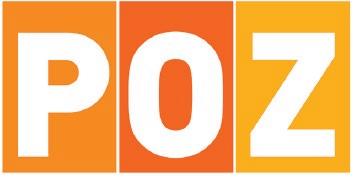
EMPOWERING THE HIV COMMUNITY SINCE 1994 POZ.COM

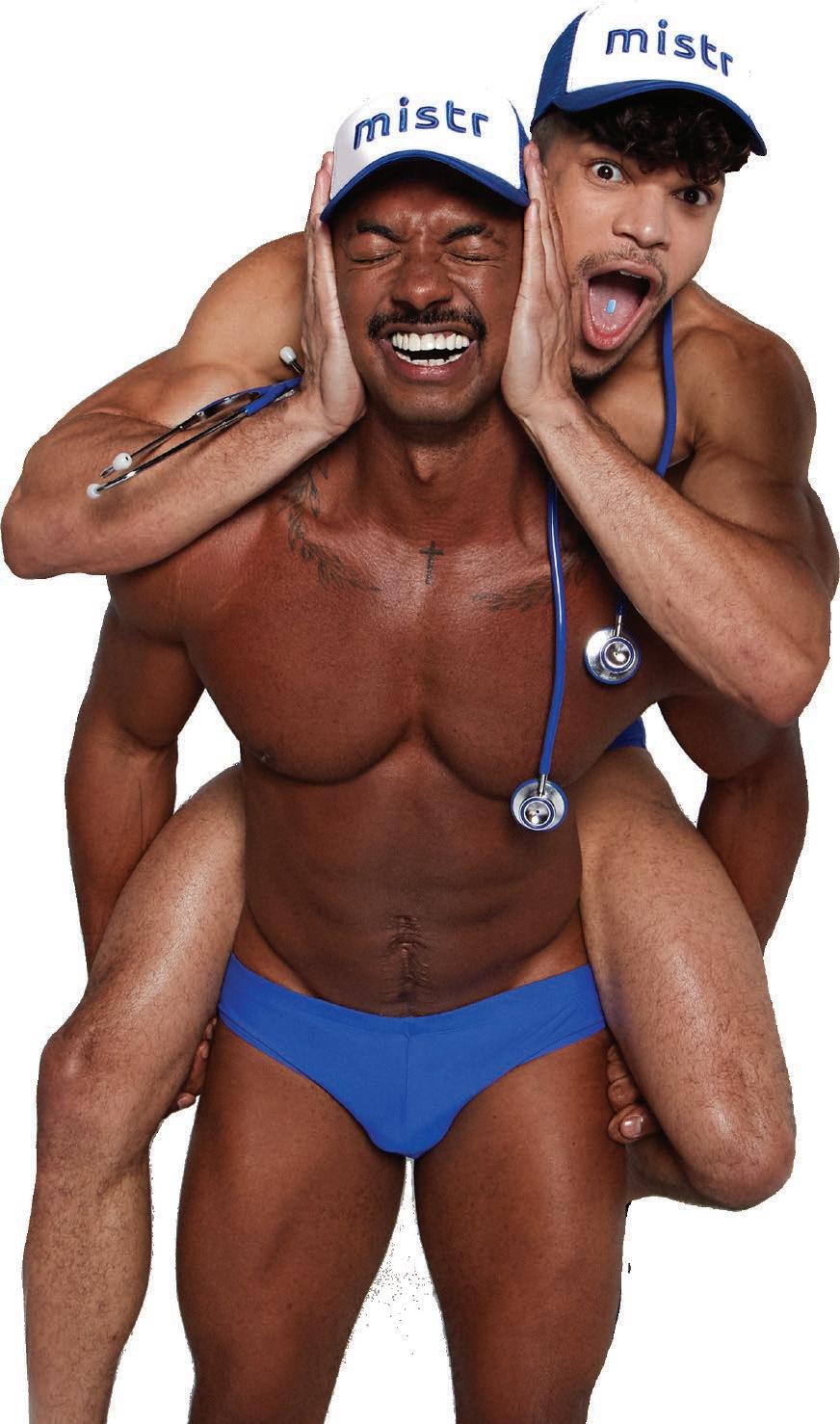


FREE ONLINE PrEP ... and STI testing too. mistr.com MISTR is proud to partner with NMAC and support their continued fight for a world free of HIV/AIDS! As the largest telemedicine provider of free online PrEP, STI testing and long-term HIV care in all 50 states, D.C. and Puerto Rico, we share the values of NMAC and all it represents. Gay owned and operated, MISTR has brought together a network of the best doctors, pharmacists and problem solvers to make PrEP and HIV care available to all who need it – 100% free. No doctor’s office, no paperwork and free delivery.
SESIONES EN ESPAÑOL
Sesión 2 Talleres: 16:00 - 18:00
La Alineación: Cómo identificar el agotamiento energético
LocaLización: LincoLn, niveL 2, courtyard Marriott
track: en esPañoL
niveL: PrinciPiante
Presentadores:
danieL g garza , LiLMesican Productions inc, Laguna beach ca
Al finalizar el taller, los asistentes serán capaces de identificar los obstáculos o barreras que pueden causar agotamiento. Los asistentes dispondrán de herramientas que podrán utilizar cuando surjan dichos bloques o barreras. El conocimiento de estas herramientas ayudará a los asistentes a superarlos con los pacientes/clientes.
Comunidad Ciencia del Sur: Investigación sobre el VIH y diversidad de género
saLón: Marquis saLon 12, niveL M2L, Marriott Marquis
teMa: Prevención bioMédica deL vih
niveL: PrinciPiante
Presentadores:
Marnina MiLLer, southern aids coaLition, houston, tx brady Maiden, coaLición deL sur contra eL sida, Washington, dc
De la eliminación al reconocimiento, la exclusión de las mujeres negras cis, los hombres trans y las comunidades no binarias ha obstaculizado la capacidad de proporcionar intervenciones y tratamientos eficaces en la investigación sobre el VIH, especialmente en el Sur. El Sur ha sido durante mucho tiempo el epicentro de la epidemia de VIH en Estados Unidos. Destacaremos los devastadores efectos que la exclusión intencionada de poblaciones específicas de la investigación tiene sobre la capacidad de acabar con la epidemia del VIH. En este taller basado en el debate, exploraremos abiertamente los desafíos únicos a los que se enfrentan estas comunidades y cómo su exclusión contribuye a perpetuar el estigma del VIH y afecta a los resultados en todo el proceso de atención del VIH. Además, este taller creará un espacio para que los participantes compartan sus experiencias personales en relación con los esfuerzos de captación de vacunas y las interacciones con los proveedores de atención sanitaria.
Convertir la discriminación en motivación
saLón: union station, niveL M3, Marriott Marquis
track: en esPañoL
niveL: PrinciPiante
Presentadores:
eLia chino FL as, inc houston, tx
Durante años, la comunidad LGBTQ+ ha permanecido incomprendida. Durante años, la comunidad LGBTQ+ se ha enfrentado a la discriminación y el estigma, que es un problema que necesita mucha atención por parte de todo el mundo. La discriminación y el estigma afectan mental y emocionalmente a la comunidad LGBTQ+.
7 de septiembre
Institutos 2: 8:00 h - 11:00 h
Cómo desvelar el binario: La verdad sin arrugas del binario
saLón: Marquis saLon 12, niveL M2, Marriott Marquis
teMa: estigMa y Prioridad Para Las Personas que viven con eL vih
niveL: PrinciPiante
Presentadores: nMac tgnc caP
Este instituto se centrará en las mejores prácticas a la hora de trabajar con/ para personas indígenas negras de color, trans no binarias y de género no conforme. Nuestro objetivo será proporcionar a los participantes un instituto enriquecido con educación y entretenimiento, con una presentación para dar a todos un campo de juego nivelado de la educación en torno a la terminología y el conocimiento básico de las experiencias
TN/GNC. Después de la presentación, tenemos previsto celebrar una mesa redonda intergeneracional con personas TN/GNC BIPOC para dar a los asistentes la oportunidad de compartir sus experiencias con la insensibilidad trans, el triunfo y la alegría trans.
2023 UNITED STATES CONFERENCE ON HIV/AIDS
Talleres Sesión 2: 16:00 - 18:00
108
Institutos 2: 8:00 - 11:00
SESIONES EN ESPAÑOL
Implementación de la Justicia del Lenguaje para el Enrolamiento de Hispanos en la Investigación de VIH/SIDA
saLón: union station, niveL M3, Marriott Marquis track: track en esPañoL
niveL: interMedio
Presentadores:
Pedro goicochea, oFicina de coordinación de redes contra eL vih/sida (hanc), seattLe, Wa
raFaeL gonzáLez, red de ensayos de vacunas contra eL vih (hvtn), seattLe, Wa aLison cardinaL, universidad de Washington, tacoMa, Wa
Los hispanos que viven en los EUA son el segundo grupo más afectado
Almuerzo plenario: 11:30 - 13:30
por la epidemia del VIH/SIDA. A pesar de ello, su representación en los estudios de investigación de VIH es reducida. El acceso a servicios de lenguaje juntamente con la justicia del lenguaje son de crítica importancia para afrontar esta situación. La justicia del lenguaje enfatiza que las barreras sistémicas del lenguaje y las diferencias culturales podrían tener un impacto negativo para enrolar miembros de esta comunidad en los estudios de investigación sobre VIH. La implementación de un plan integral de acceso a servicios de idioma que proporcione materiales en español y que asegure la disponibilidad de personal bilingüe, podrían reducir las barreras a la participación y contribuiría a fortalecer la confianza, generando alianzas con las comunidades hispanas para hacer frente a las barreras culturales existentes. En resumen, la implementación de servicios de acceso al lenguaje en el contexto de la justicia del lenguaje puede conducir a procesos de investigación más equitativos que reflejen mejor las necesidades y experiencias de las diversas poblaciones recalcando en la mejora de las condiciones de salud de las comunidades hispanas.
Confiamos en ella: Ella es gloriosa - Una celebración de la feminidad negra
Salón: Marquis Ballrooms, nivel M2, Marriott Marquis
Presentado por Gilead Sciences
Bienvenidos a la inspiradora sesión plenaria de Gilead, “Confiamos en ella: Ella es gloriosa - Una celebración de la feminidad negra”. A lo largo de la historia, las mujeres negras han estado a la vanguardia de los movimientos sociales, incluido el VIH, impulsando el progreso de la sociedad, aunque a menudo se las haya pasado por alto. Este almuerzo plenario sirve para celebrar y honrar el excepcional liderazgo de las mujeres negras y sus continuas contribuciones a sus familias, comunidades y a la sociedad. A través de historias y actuaciones, honraremos su liderazgo, amplificaremos sus voces y recibiremos inspiración de su legado para ayudar a inspirar un futuro más inclusivo, en el que se celebre a las mujeres negras por su liderazgo y se les dé prioridad en nuestro trabajo colectivo para ayudar a poner fin a la epidemia del VIH para todos, en todas partes.
109 #2023USCHA
SESIONES EN ESPAÑOL
Sesión 3: 9:00 - 11:00
Sesión de escucha del Consejo Asesor Presidencial sobre el VIH/SIDA (PACHA)
saLón: union station, niveL M3, Marriott Marquis
teMa: Poner Fin a La ePideMia - PróxiMos Pasos
niveL: interMedio
Presentadores:
b kaye hayes, MPa, u s dePartMent oF heaLth and huMan services (hhs), Washington, dc
MarLene Mcneese, conseJo asesor PresidenciaL sobre eL vih/sida, houston, tx gregg aLton, Jd, gLobaL, san Francisco, ca
Jen kates, Phd, gLobaL, Washington, dc
raFaeLé narváez, estigMa y disParidades, Fort LauderdaLe, FL
John saPero, MiL, acabar con La ePideMia de vih en ee uu y La estrategia nacionaL contra eL vih/sida, Phoenix, az
Justin sMith, Ms, MPh, estigMa y disParidades, caMbridge, Ma
El Consejo Asesor Presidencial sobre el VIH/SIDA (PACHA) ofrece asesoramiento, información y recomendaciones al Secretario de Salud y Servicios Humanos (HHS) en relación con los programas, las políticas y la investigación para promover el diagnóstico, el tratamiento, la prevención y servicios de atención de calidad y eficaces contra el VIH. Esto incluye asesoramiento, información y recomendaciones sobre el desarrollo y la aplicación de la iniciativa “Poner fin a la epidemia de VIH en Estados Unidos” (EHE) y la Estrategia Nacional contra el VIH/SIDA (NHAS).
Sesión de participación comunitaria PACHA-to-the-People: Dado que escuchar a la comunidad es crucial para el trabajo de PACHA, esta sesión de USCHA está dedicada a escuchar a los participantes de la conferencia sobre lo que están experimentando en su trabajo sobre el VIH en todo el país. Las sesiones de participación comunitaria de PACHA-to-the-People contribuyen a informar el trabajo de PACHA, incluido el desarrollo de recomendaciones para la consideración de la Administración.
Decir la verdad: Conversaciones sobre el reclutamiento de mujeres negras en la investigación del VIH
saLón: Marquis saLon 12, niveL M2, Marriott Marquis track: MuJeres negras y vih
niveL: PrinciPiante
Presentadores:
danieLLe M caMPbeLL, LcsW, universidad de caLiFornia san diego, división de enFerMedades inFecciosas y saLud PúbLica gLobaL, Los ángeLes, ca
kiyoMi tsuyuki, Phd, MPh, universidad de caLiFornia san diego, san diego, ca Myiesha PheLPs
Wanda London, autora de eL abc deL vih/sida
keith horvath, Md, asociación de FacuLtades de Medicina de estados unidos (aaMc), Washington, dc
JaMiLa k stockMan, MPh, Phd, universidad de caLiFornia san diego, división de enFerMedades inFecciosas y saLud PúbLica gLobaL, san diego, ca
Las mujeres negras, aunque están sobrerrepresentadas en los diagnósticos de VIH entre las mujeres en los EE. UU., han estado sistemáticamente subrepresentadas en la investigación sobre el VIH. Factores sociales y estructurales como los prejuicios sexuales no científicos, los criterios restrictivos de inclusión y exclusión, el racismo y otros, han impedido la participación sostenida de las mujeres negras en la investigación sobre el VIH. La falta de participación sostenida en la investigación limita las oportunidades de las mujeres negras de beneficiarse de los avances científicos derivados de dicha investigación y limita aún más la generalización de los resultados de la investigación a este grupo desproporcionadamente afectado. Además, los estudios de investigación sobre el VIH centrados en las mujeres negras, como LinkPositively: A Technology-Delivered Peer Navigation and Social Networking (LinkPositively: navegación entre iguales y redes sociales a través de la tecnología).
2023 UNITED STATES CONFERENCE ON HIV/AIDS
110
Talleres Sesión 3: 9:00 - 11:00
SESIONES EN ESPAÑOL
Sesión 4: 14:00 - 16:00
Ella/Her: La prevención nos pertenece
saLón: union station, niveL M3, Marriott Marquis
teMa: Prevención bioMédica deL vih
niveL: PrinciPiante
Presentadores:
rita McdanieL, red de acción contra eL sida de caroLina deL norte, durhaM, caroLina deL norte
aLeida esPinaL, Latinos in the south, charLotte, nc
A menudo se ignora a las mujeres negras y latinas en la prevención del VIH y la educación sobre salud sexual, así que estamos poniendo de pie y alzando la voz. Estamos recuperando nuestro poder centrándonos en las mujeres negras y latinas, educando a nuestra comunidad y preparando a las mujeres para que mantengan conversaciones honestas con sus proveedores de atención de salud sobre la PrEP y la PEP para la prevención del VIH. Para mí. Para ella. La prevención nos pertenece.
El proyecto Ella/Her, una colaboración de NC AIDS Action Network, Latinos in la coalición South y Southern AIDS Coalition, se centró en motivar, inspirar y empoderar a las mujeres negras y latinas de Carolina del Norte para que tomen el control de su salud sexual. Cuando priorizamos nuestra salud sexual, el placer y la libertad, no sólo nos estamos defendiendo a nosotras mismas, sino también a nuestra comunidad. Únase a nosotros para hablar sobre cómo estamos centrando a las mujeres negras y latinas en los esfuerzos de prevención, empoderándolas para que hablen con su proveedor sobre su salud sexual y educando a los proveedores.
Utilizar un enfoque de equidad sanitaria para abordar las desigualdades sanitarias basadas en la raza
saLón: Marquis saLon 12, niveL M2, Marriott Marquis vía: acabar con La ePideMia
niveL: interMedio
Presentadores:
Louise square, dePartaMento de saLud deL estado de nueva york/instituto deL sida, nueva york, ny richard cotroneo, dePartaMento de saLud deL estado de nueva york/instituto deL sida, nueva york, ny
Este taller guiará a los participantes a través de un proceso de 12 pasos para mejorar la capacidad de una organización comunitaria o clínica de aplicar una perspectiva de equidad sanitaria a su trabajo. Se prestará atención al impacto histórico y actual del racismo estructural y a los problemas sistémicos que están en la raíz de las desigualdades sanitarias actuales. Los participantes recibirán un folleto sobre este proceso de 12 pasos y participarán en debates y en la planificación individual de cada paso. El proceso se centra en los datos, ofrece orientación sobre las aportaciones de la comunidad, establece prioridades, aborda los determinantes sociales de la salud y utiliza procesos de mejora de la calidad para probar nuevos modelos utilizando los datos como guía. Se trata de un taller práctico para participantes en posición de tomar decisiones operativas que ayuden a una organización a enfrentar las inequidades sanitarias. Este taller apoyará la capacidad de una organización para ser verdaderamente representativa de las necesidades de las personas de las comunidades negra y parda, confiar en ellas y responder a ellas.
111 #2023USCHA
Talleres
Sesión 4: 14:00 - 16:00
SESIONES EN ESPAÑOL
8 de septiembre
Sesión 5: 16:15 - 18:15
Disparidades en salud mental y atención sanitaria entre la población LGBT+ latina
LocaLización: Mint, niveL 2, Marriott Marquis track: track en esPañoL
niveL: interMedio
Presentadores:
WiLFred Labiosa, Waves ahead, san Juan, Pr Moises agosto, nMac, Washington, dc ricardo JiMénez, centro cuLturaL de Puerto rico, san Juan, Pr aLexandra bonnet, Jsi, boston, Ma rodoLFo vega, Jsi, boston, Ma
Este panel basado en datos se centrará en la salud mental y la atención a la salud de los adultos mayores hispanoamericanos LGBT+ en la tercera edad. El panel está compuesto por WAVES AHEAD, Inc, un proveedor de servicios con sede en San Juan, PR, Vida Sida, un proveedor con sede en Chicago, JSI, una agencia de consultoría de salud pública y NMAC. El taller se abrirá con una presentación de dos estudios de evaluación de necesidades realizados por Waves Ahead, Inc. con adultos mayores LGBT + en Puerto Rico. Un estudio describe las necesidades de salud de los
adultos mayores LGBT + que viven con el VIH y el segundo se centra en las necesidades de salud mental de la población LGBT + de edad avanzada en Puerto Rico. Tras la presentación de los resultados, tres proveedores de servicios hablarán de su relevancia para las intervenciones de prevención y tratamiento.
Todo está en mí: Intersecciones críticas de la justicia sexual y reproductiva en la prevención del VIH
saLón: Marquis saLon 12, niveL 2, Marriott Marquis
teMa: Poner Fin a La ePideMia - PróxiMos Pasos
niveL: interMedio
Presentadores:
Moderador: dazon dixon diaLLo, sisterLove, inc., atLanta, ga
Marnina MiLLer, southern aids coaLition, houston, tx vaty Poitevien, housing Works, nueva york, ny danieLLe caMPbeLL, universidad de caLiFornia, san diego, La JoLLa, ca
Este taller profundizará en las experiencias interseccionales de las mujeres negras y el impacto de la opresión sistémica en la prevención, la atención y el tratamiento del VIH. Los participantes escucharán acerca de los retos específicos a los que se enfrentan las mujeres negras, tales como la transfobia, los derechos reproductivos y el acceso a los servicios sanitarios. A través de discusiones interactivas, los asistentes comprenderán mejor cómo estos problemas están interconectados y contribuyen a las disparidades en los resultados del VIH.
Almuerzo plenario: 11:30 - 13:30
Deseo, placer e intimidad: Una experiencia en tres actos (patrocinado por ViiV Healthcare)
Presentado por ViiV Healthcare
Salón: Marquis Ballroom, nivel 2, Marriott Marquis
Acompáñenos en la sesión plenaria de ViiV Healthcare, un dinámico espectáculo en vivo que explora el deseo, la intimidad y el placer a través del arte de talentos galardonados y asociados de la comunidad. Destacando el compromiso de larga data de ViiV con las mujeres negras, el Salón S proporcionará una plataforma para aquellos que están trabajando con nosotros para cambiar la narrativa en torno a las mujeres y el VIH, replantear el riesgo y honrar a los líderes que hacen avanzar el trabajo.
2023 UNITED STATES CONFERENCE ON HIV/AIDS
112
Talleres Sesión 5: 16:15 - 18:15
SESIONES EN ESPAÑOL
Sesión 6: 14:00 - 16:00
Proteger nuestros sistemas de salud: Ataques políticos contra la atención sanitaria y la salud pública
saLón: union station, niveL M3, Marriott Marquis
teMa: PoLíticas PúbLicas
niveL: interMedio
Presentadores:
nick arMstrong, instituto deL sida, Washington, dc stePhanie hengst, instituto deL sida, Washington, dc racheL kLein, instituto deL sida, Washington, dc
El sistema de salud estadounidense es fragmentado, disfuncional e innegablemente costoso. Para las personas seropositivas o con riesgo de contraer el VIH, hay que añadir la estigmatización y la discriminación a la lista de obstáculos que deben sortear en este sistema fracturado. Recientemente, los tribunales y las legislaturas estatales han convertido en un arma la política sanitaria para socavar los derechos de las personas LGBTQ+ y de las mujeres, eliminando el acceso a la atención de salud reproductiva, de afirmación de género y preventiva. Al mismo tiempo, el Congreso está promoviendo medidas de austeridad que amenazan con recortar la financiación federal de los programas de salud pública que atienden a las personas que viven con VIH o que corren el riesgo de contraerlo. Este taller ofrecerá un análisis político en detalle del panorama sanitario y explorará las actuales amenazas políticas a la financiación de los programas de salud pública en todo el país. El taller explorará las complejas amenazas que se ciernen sobre la atención sanitaria y los programas de la red de seguridad que tratan de proteger a las personas para que no caigan en el olvido
Panorama actual y oportunidades para los esfuerzos federales acerca del VIH y eel nvejecimiento: Mesa redonda
Presentado Por Los institutos nacionaLes de saLud
saLón Marquis 12, niveL 2, Marriott Marquis teMa: investigación e inForMación sobre trataMientos
niveL: PrinciPiante
El objetivo de esta sesión federal-comunitaria es convocar a un grupo multisectorial de investigadores, miembros de la comunidad y socios federales para: (1) identificar y aprovechar las colaboraciones integradoras entre las agencias federales, la comunidad del VIH y los investigadores/ clínicos; y (2) facilitar un marco para priorizar la investigación interdisciplinaria y las estrategias de implementación para abordar las necesidades de las personas que envejecen con el VIH.
Sesión 7: 16:15 - 18:15
Nosotros también tenemos sexo Los hombres gays mayores y las intervenciones biomédicas
saLón: union station, niveL M3, Marriott Marquis
teMa: Prevención bioMédica deL vih
niveL: PrinciPiante
Presentadores:
Moises agosto, nMac, Washington, dc russeLL caMPbeLL, centro oncoLógico Fred hutchinson, seattLe, Wa daMon L. Jacobs, Práctica Privada, nueva york, ny rodney Mccoy, us heLPing us, Washington, dc
Los profesionales de la prevención y el tratamiento del VIH están empezando a abordar el tema del VIH y el envejecimiento. Esto supone una oportunidad para abordar los problemas de salud sexual a los que se enfrentan muchos adultos mayores. Al mismo tiempo, el aumento de la popularidad de la PrEP nos brinda la oportunidad de explorar la actividad sexual y la prevención de formas que nunca habríamos creído posibles. Sin embargo, la mayoría de las campañas de PrEP de los últimos años no están dirigidas a los hombres mayores. ¿Dónde están las campañas para hombres mayores? ¿Qué dice la ausencia de hombres mayores sobre nuestra capacidad y voluntad de abordar los problemas a los que se enfrentan los hombres gays de edad que también quieren tener, y tienen, una vida sexual sana? La mesa redonda “¡Nosotros también tenemos sexo! ofrecerá a los participantes la oportunidad de explorar un sinfín de cuestiones, como la necesidad de campañas de PrEP, el acceso a DoxyPEP y las iniciativas de salud sexual positiva culturalmente apropiadas dirigidas específicamente a los hombres gays de más edad.
113 #2023USCHA
Talleres Sesión 6: 14:00 - 16:00
Talleres Sesión 7: 16:15 - 18:15
SESIONES EN ESPAÑOL
9 de septiembre
Sesión 8: 9:00 - 11:00
Talleres Sesión 8: 9:00 - 11:00
Justicia lingüística en el movimiento contra el VIH
saLón: union station, niveL M3, Marriott Marquis teMa: racisMo y raza
niveL: interMedio
Presentadores:
LeronaLd reid, acadeMia coLibrí Para eL vih y La Justicia Lingüística, Laguna beach, ca danieL garza, acadeMia coLibrí Para eL vih y La Justicia Lingüística, Laguna beach, ca, nicoLe santaMarina, eL/La Para transLatinas y asesora de La acadeMia coLibrí Para eL vih y La Justicia Lingüística, san Francisco, ca rita McdanieL, acadeMia coLibrí Para eL vih y La Justicia Lingüística, durhaM, nc gLoria deLgadiLLo, acadeMia coLibrí Para eL vih y La Justicia Lingüística, brookLyn, ny aLLison corbett, acadeMia coLibrí Para eL vih y La Justicia Lingüística, brookLyn, ny
En esta mesa redonda bilingüe (español/inglés) organizada por la Academia Colibrí para el VIH y la Justicia Lingüística, los participantes aprenderán por qué es necesario ampliar la infraestructura de la Justicia Lingüística, tanto para el éxito de los esfuerzos de prevención y tratamiento, como para abrir más caminos hacia el liderazgo de las personas que viven con el VIH (PVVS). Los participantes escucharán diferenteßs perspectivas e historias de la vida real de influyentes y organizadores de Poz, así como de trabajadores de la justicia lingüística que se han asociado con ellos a través de la Academia Colibrí, ahora en su segundo año.
Almuerzo plenario de clausura: 11:30 - 13:00
Pleno Federal: Esfuerzos para acabar con la epidemia de VIH entre las mujeres negras
Salón: Marquis Ballrooms 6-10, nivel 2, Marriott Marquis
La sesión plenaria federal incluirá ponentes del HHS que pondrán al día a nuestro movimiento sobre los esfuerzos para acabar con la epidemia del VIH entre las mujeres negras. Únase a nosotros para escuchar a este dinámico panel de mujeres negras líderes en el gobierno federal.
oradores:
dra kaye hayes, hhs
dra robyn nebLett FanFair, cdc sra yeMisi odusanya, hrsa

dra. Mary roary, saMhsa

dra. Janine cLayton, nih




JeMine bryon, dePuty assistant secretary For the oFFice oF sPeciaL needs naMandJe buMPus

2023 UNITED STATES CONFERENCE ON HIV/AIDS
Neblett-Fanfair Hayes Odusanya
114
Roary Bumpus Clayton Byron
100,000
HIV service providers have received training and other support from CAI in the last five years
98.2% of participants in National HIV Classroom Learning Center trainings last year felt confident applying what they’d learned to their work
CAI helps thousands of health care and social service organizations nationwide improve the quality of their services.

We help strengthen both prevention and treatment for HIV/AIDS, and we help providers and jurisdictions address the full range of issues people with HIV face.
Visit us at booth 614 caiglobal.org
www.nmac.org NMACCommunity NMACCommunity commnmac NMACHIV


September 12-15, 2024 | New Orleans, LA












 Director of Conferences
Kim Ferrell
Tara Barnes
NMAC
Director of Conferences
Kim Ferrell
Tara Barnes
NMAC
















































































































































































































































































































































































